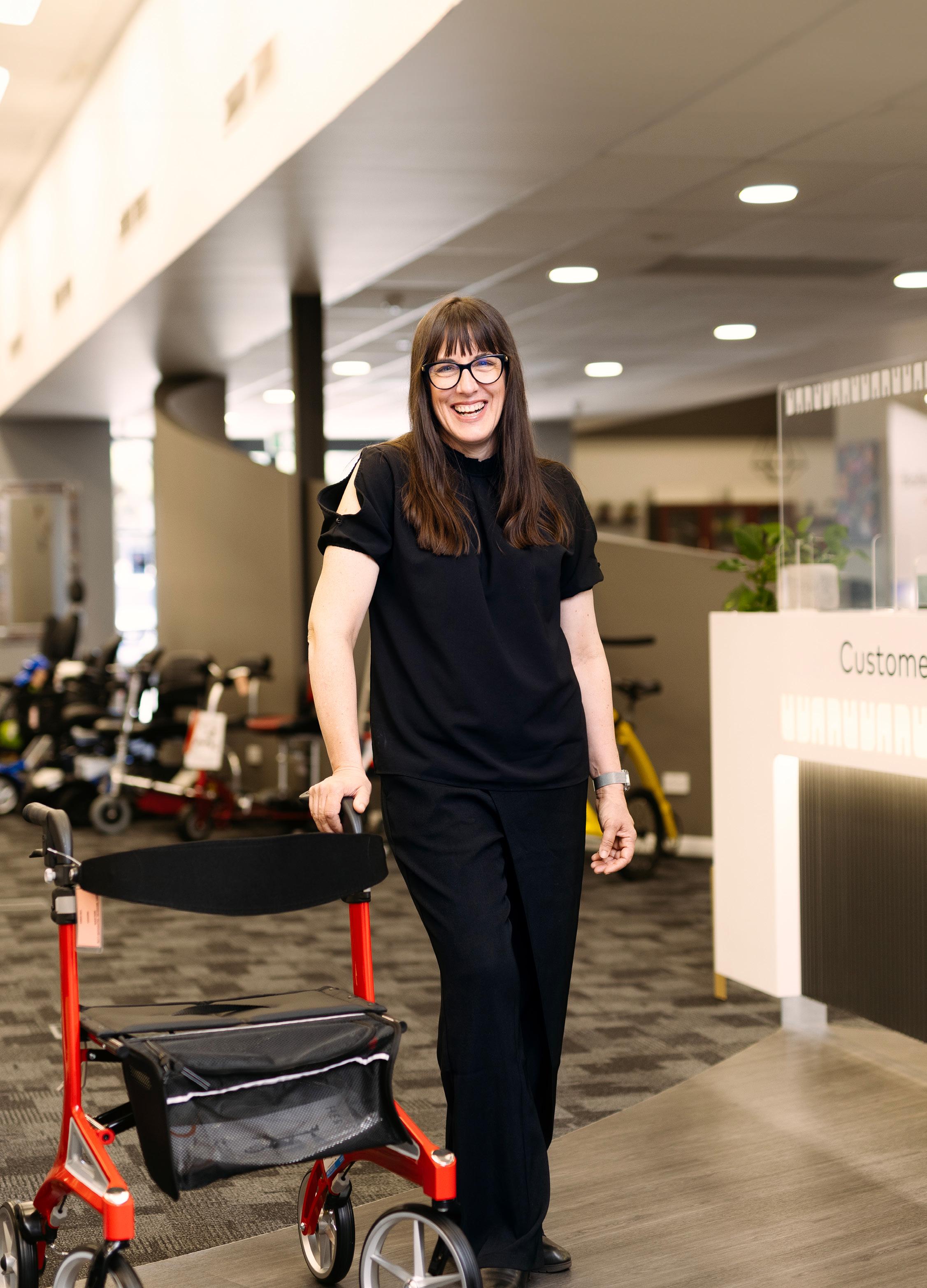

$9.95 AUD / $11.50 NZ April/May 2024 | Volume 34 Issue 2 linkonline.com.au In this issue: The latest news on Assistive Technology / A mission of love for the Gatto family / Tim & Judy Sharp’s journey with autism / ATSA Sydney & Brisbane Expo Seminar Guide / Happenings & MORE Australia’s largest AT and equipment online database NED INTRODUCING

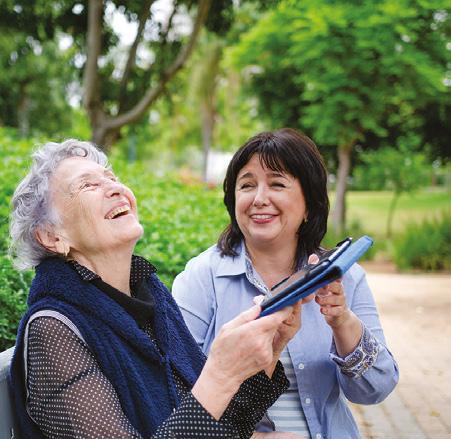


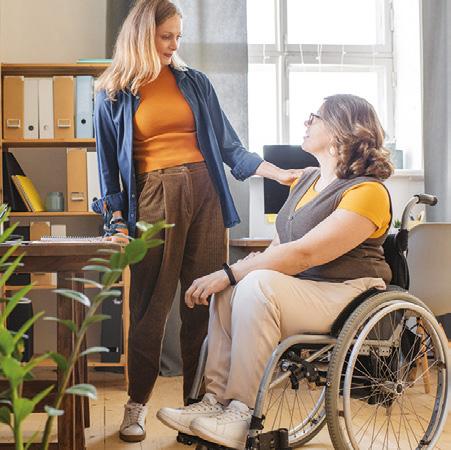


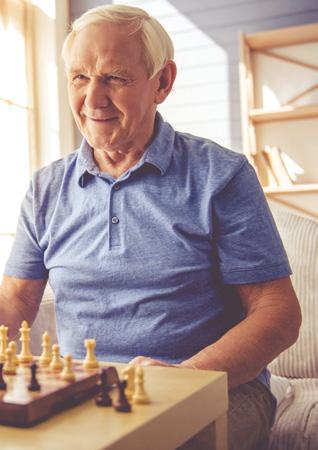
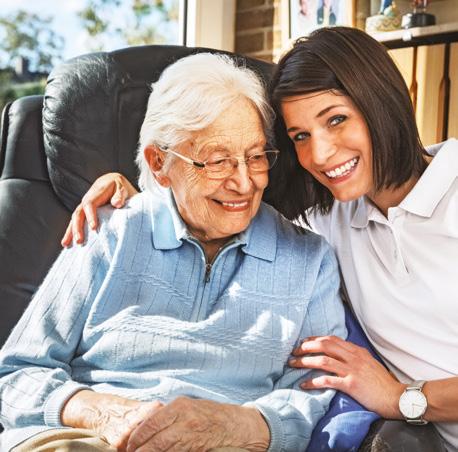
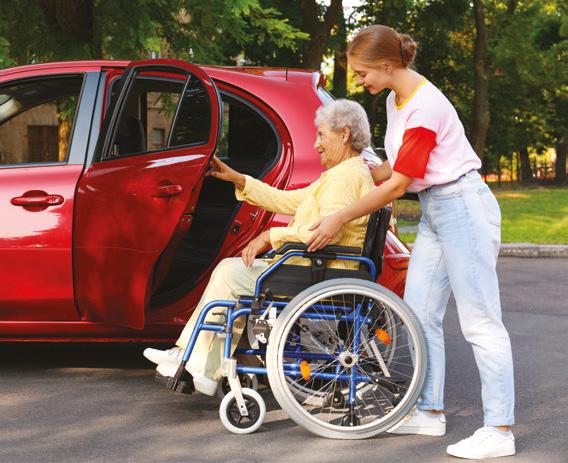
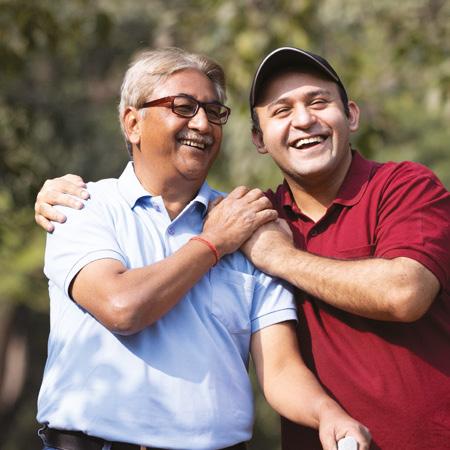


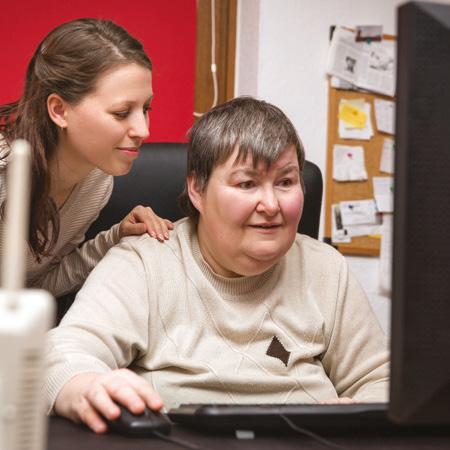
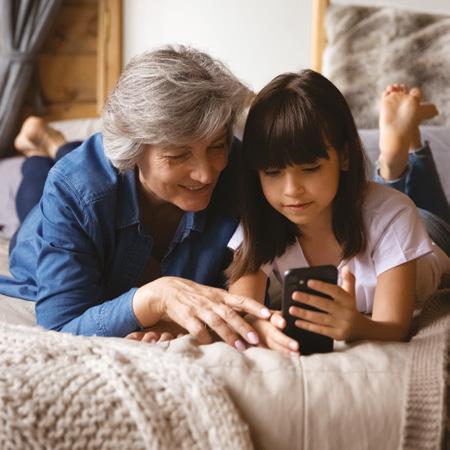





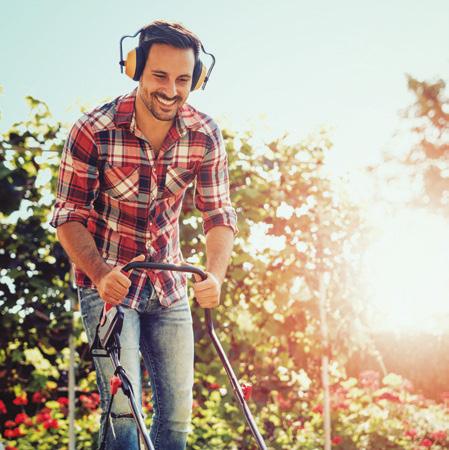
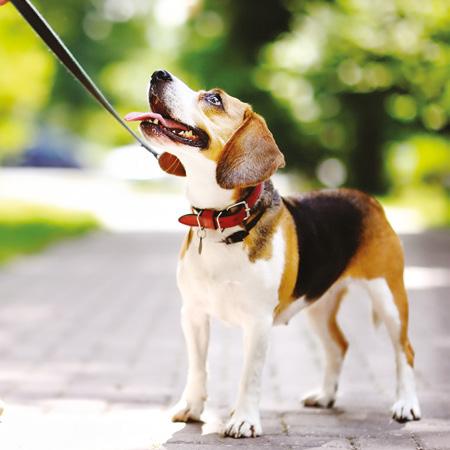





08
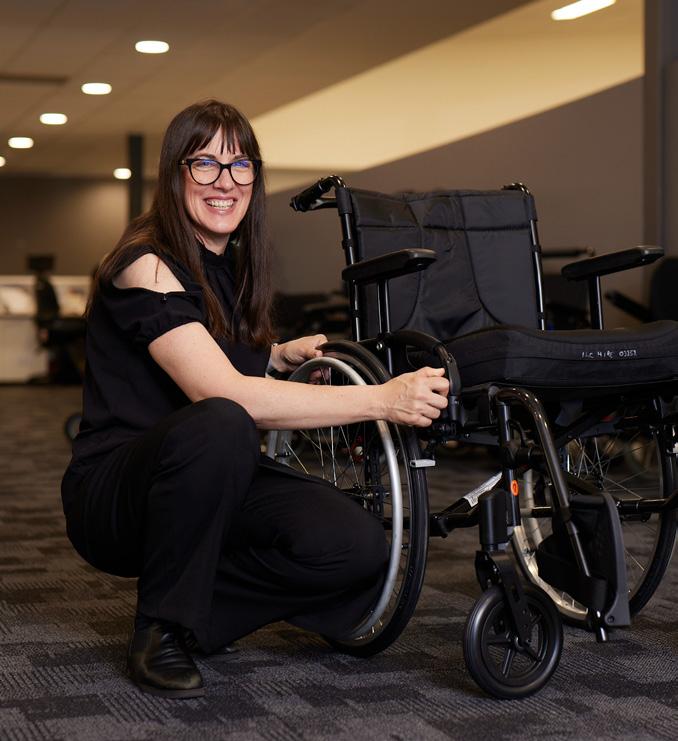
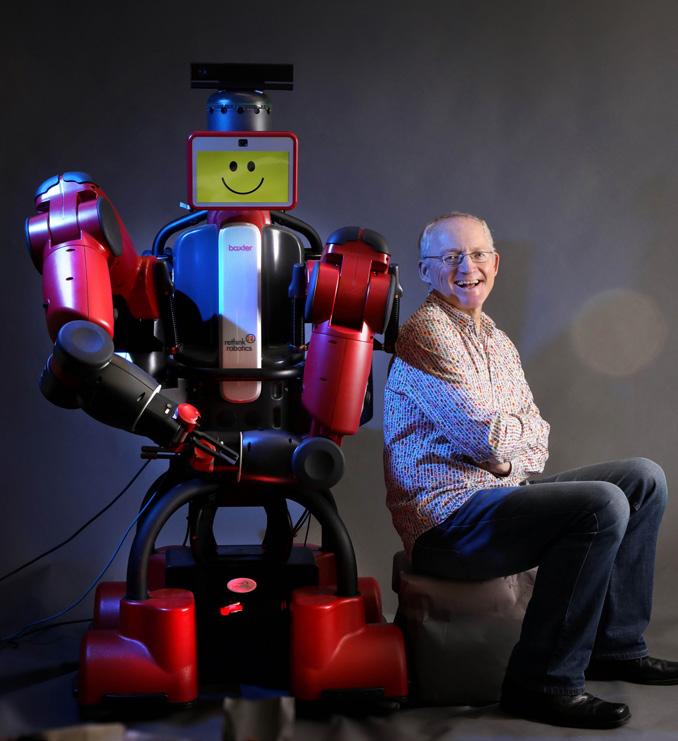




04-06
From the Editor
08-09
Cover Story – Launch of largest AT online database
12
Using robots in autism therapy
16-17
Meet the Gatto’s - a family of changemakers
28-41
Assistive Technology Feature
58-61
Artificial Intelligence – the opportunities and challenges
62-63
Meet artist Tim Sharp creator of the Laser Beak Man
62-73
Autism Feature
80-82 Happenings
70 60
Inside
12
4 April/May 2024
34
16


1300 789 845 www.atsaindependentlivingexpo.com.au Organised by Media Partners Australia’s foremost assistive technology event BY THE INDUSTRY FOR THE INDUSTRY SYDNEY 22-23 MAY 2024 SYDNEY SHOWGROUND BRISBANE 29-30 MAY 2024 BRISBANE CONVENTION & EXHIBITION CENTRE AWARDS DINNER 29 MAY 2024 BRISBANE TOWN HALL
Publisher
Simon Cooper
Editor
Kymberly Martin kymberly@intermedia.com.au
Advertising
Michelle Stevens
mstevens@intermedia.com.au
0419 822 717
Design
Sarah Vella
Prepress
Tony Willson
Production Manager
Jacqui Cooper
Subscribe
To subscribe visit www.intermedia.com.au
P: 1800 651 422 or
E: subscriptions@intermedia.com.au www.linkonline.com.au
Link is published six times a year by Interpoint Events Pty Ltd.
ABN: 9810 451 2469
A: 41 Bridge Road, Glebe NSW 2037
P: +61 2 9660 2113
F: +61 2 9660 4419
Reprints from Link are permitted only with the permission of the publisher. In all cases, reprints must be acknowledged as follows:
‘Reprinted with permission from Link Magazine’, and must include the author’s byline.
The opinions expressed in this publication are those of the authors and do not necessarily represent those of the publisher.
The Intermedia Group takes its Corporate and Social Responsibilities seriously and is committed to reducing its impact on the environment. We continuously strive to improve our environmental performance and to initiate additional CSR based projects and activities.
As part of our company policy we ensure that the products and services used in the manufacture of this magazine are sourced from environmentally responsible suppliers. This magazine has been printed on paper produced from sustainably sourced wood and pulp fibre and is accredited under PEFC chain of custody.
PEFC certified wood and paper products come from environmentally appropriate, socially beneficial and economically viable management of forests.
From the Editor

In this issue we cover three areas of critical importance to the disability sector, Autism, Assistive Technology and Artificial Intelligence. And while AI systems are still in the early stages of development, they show promise when it comes to early diagnosis of ASD. Our interview with Professor Toby Walsh on page 12 reveals peoples’ responses to robots and how this can relate positively to their social attention or interaction with others.
As Link went to press, Curtin University announced it will research how digital services can be made more inclusive and accessible following Covid. More than half of the Australians with disability are said to use assistive or mainstream digital technology to participate in daily life. It goes without saying the people with disability - certainly at the start of the pandemic, were not at the receiving end of much helpful information.
Our story on pages 16-17 is from Melbourne grandparents Cheryl and Mick Gatto and their efforts behind their charity Equal Access for Autism that began when they discovered their grandson was missing out on what most kids enjoyed, that is access to social activities.
Still on autism, Judy Sharp tells Link about her emotional and sometimes fraught journey with her son Tim, who will be familiar to many as the creator of the Laser Beak Man. Go to pages 62-63.
We also have the seminar program guide for the ATSA Sydney and Brisbane Expos that will take place in May. It will have an impressive list of local and international speakers, including many first-time presenters, along with Australia’s largest group of assistive technology exhibitors.
Kymberly Martin/Editor - kymberly@intermedia.com.au
Advertising booking date: April 19, 2024
Advertising Material deadline: April 24, 2024
Publication date: June 1, 2024
For
proposal, contact the Editor: kymberly@intermedia.com.au
For

Stevens 0419 822 717 mstevens@intermedia.com.au
6 linkonline.com.au JUNE/JULY
• Home Modifications & Housing • Automotive Services • Therapy/Assistance/Companion Animals
2024
article
advertising, contact the Advertising
Michelle
NEXT ISSUE Like us on Facebook /linkdisabilitymagazine
Manager:
April/May 2024

Develop your skills with virtual reality
Imagine stepping into a world where you can do anything! Visit different locations, try new activities and learn new skills. Virtual reality is a fun mix of education, gaming, and exploration.
Learn how Endeavour Foundation can support you to achieve your goals and thrive at endeavour.com.au.
EF2862.LM.0422
The evolution of NED – the national equipment database
How Indigo’s vision of ‘fair, equal and easy access to assistive technology, products and equipment for all’ helped lead to the development of Australia’s largest assistive technology (AT) products and equipment online database – NED.
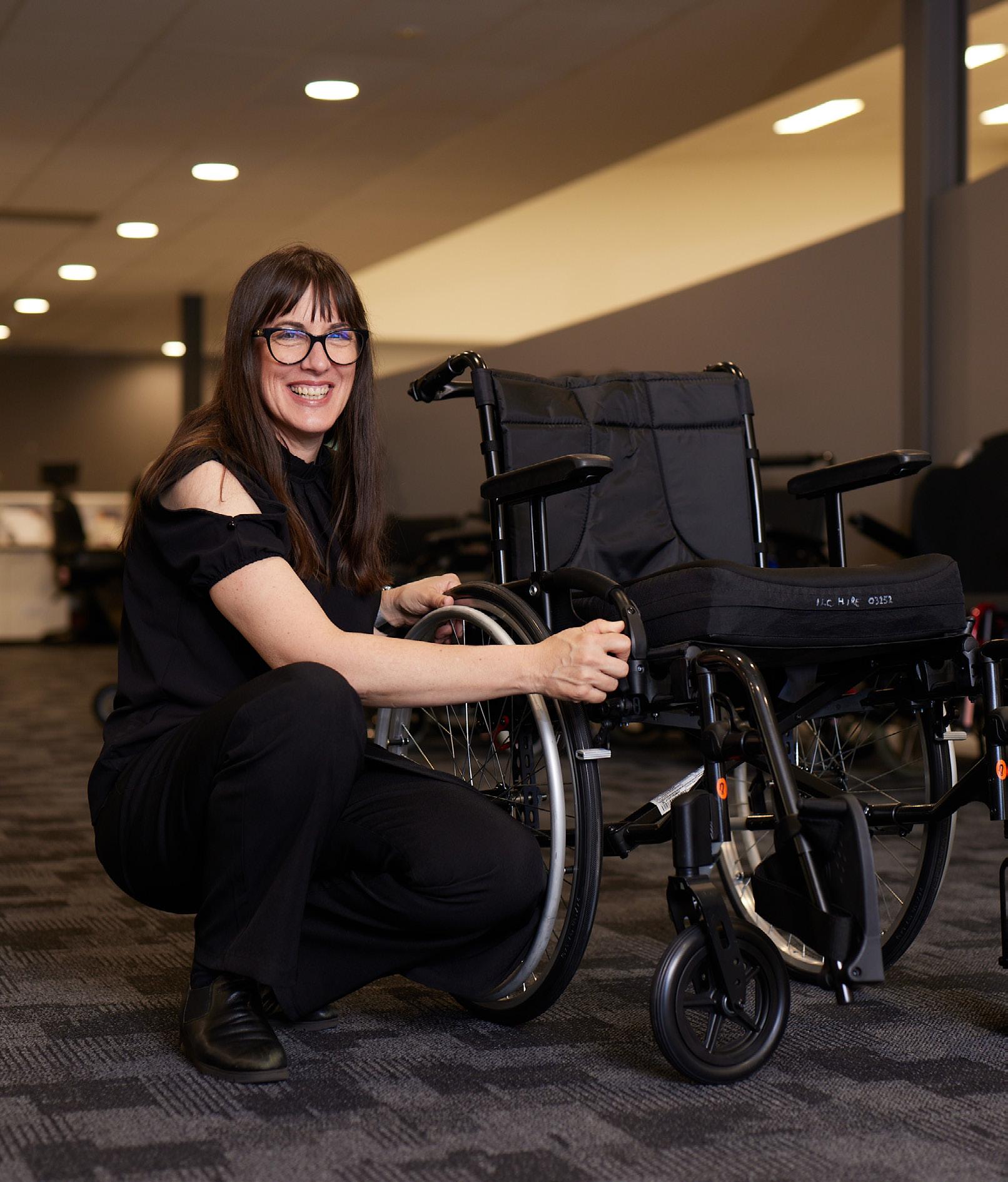
With just a few clicks of a mouse and in a matter of minutes, Sacha Marchant can sift through over 25,000 pieces
of assistive technology, products and equipment on one Australian website to find exactly the right product she needs. She’s using NED - the National
Equipment Database, one of the most powerful databases in the health sector. Whether it’s a walking frame or a mobility scooter, a jar opener or a gardening stool, she can compare the specifications and benefits of each product to ensure the best fit for her needs. But it’s taken her over 20 years of experience and a lot of hard work to get here.
Sacha is Indigo’s marketplace and e-commerce team manager and has developed and managed NED over the last two decades. Before working at Indigo, she did her firstyear occupational therapy practice placement at the Independent Living Centre. In those days, all AT products were written on a card which was photocopied and given to clients. Once qualified, Sacha worked as an occupational therapist (OT) across all departments of a hospital for the first three years of her career. She then spent seven years working in the community as an OT, carrying out home visits. “I would prescribe assistive products and equipment daily, from a small helpful kitchen aid to complex home modifications or bathroom renovations to help people get around their home more easily,” she said.
How NED was born
It was in this role that Sacha saw the need for AT equipment and products and how crucial it was to have one central database for all AT. She said the challenge before NED was to access good information to be able to compare products to ensure the best fit for clients. “Even now, if you look at product or equipment websites, different suppliers will give different specifications. Some have more
Link to... Cover Story
SachaMarchant
8 April/May 2024
information than others, so you need to visit many places to get the full picture.” When she returned to the Independent Living Centre (now Indigo), after many years in the field, she started working with an independent database for AT. This made it easier to keep up to date, but it wasn’t online. Sacha worked with the team to migrate the database online and about 17 years ago it transitioned to a national online system through the integration of all states’ individual databases.
“All the Independent Living Centres collaborated to run that database for a few years; and with changes in the funding landscape it was agreed that Indigo would take ownership of the National Equipment Database. We then migrated it to a platform that includes e-commerce, as clients had indicated a desire buy online. We bridged the gap between information and purchase,” she said.
“NED is a free and impartial resource, providing expert information and advice about AT to you or your allied health professional.”
“No other suppliers’ websites will have everyone’s products in one place. With NED, you can filter and drill down to see just the products that suit your personal circumstances, needs, and specifications. You will see all the products’ critical dimensions in one spot, to make the right choice.”
“NED holds everything you need to know in one place. All the specifications are clear to see, for example the weight of a walking frame to suit your strength and body size. These are vital pieces of information to tailor the right advice and choice for you. Our inspiration in developing NED has always been the difference it can make in someone’s life and facilitating their increased inclusion and participation, which makes a better
community for everyone. AT removes barriers so everybody can contribute in a positive way and live their life to the full.”
NED is constantly evolving
Indigo has a team of health professionals who review products and provide product information and advice targeted to the needs of customers and health professionals.
“This is so that we cover the clinical reasoning as to why something is helpful. For example, with a wheelchair that needs manual adjustment, we will look at what strength and agility is needed to adjust it. We add that extra layer of clinical guidance that you can’t find on any other supplier site,” she said.
NED features a ‘pro forma invoice’ function which makes it easy when applying for funding and enables third party payment and approval processes. These can be sent directly to support team members such as family and support coordinators. In addition, a ‘request for quote’ function is available for complex items that are not suitable to buy online (such as scripted wheelchairs) or require specialised shipping.
And Sacha’s next personal challenge with NED?
That searching be seamless and faster. “We’re working to improve continuously, but it is so big with so many filters, making it extremely powerful so currently it can take some time to filter the exact products you need. It’s all about keeping it up to date, continuous improvement of functionality, and filtering so you can make good decisions around AT. We’re adding information videos to help your decision. Indigo staff are continuously reviewing the product selection to ensure availability and relevance. The industry has a constant cycle of products, so we review continually as to what products are out there, how they are used.”
Sacha enjoys researching and trialling equipment, figuring out how things work and the benefit they can provide to people. With her enquiring mind and strength of vision, who knows what’s next for NED!
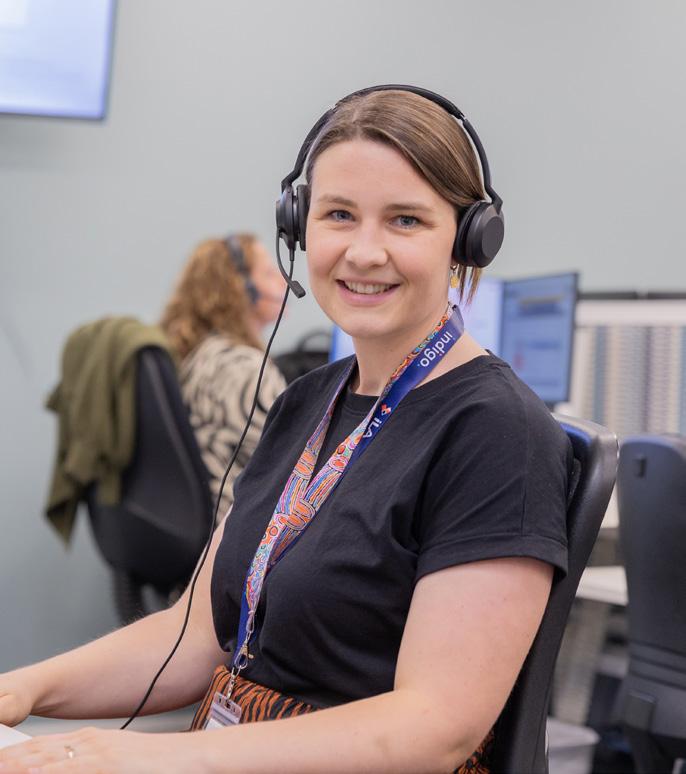
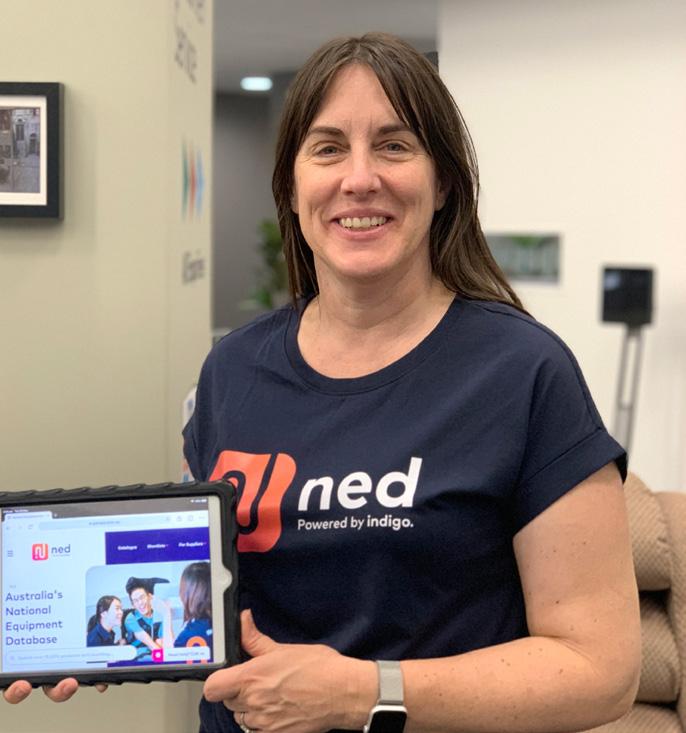
With NED, you can:
• Browse a one-stop-shop with over 25,000 assistive living products and equipment
• Get access to high quality and relevant suppliers
• Compare side by side, products from different suppliers to easily assess features and price
• Filter items by brand, price, measurements and more
• Safely click to buy selected items
• Be sure that products are suitable and safe
• Get support and advice from our team of Occupational Therapists and professional staff.
For all AT products and equipment browse the full range of products on NED today.
Go to: askned.com.au
COVER STORY linkonline.com.au 9
Indigo staff provide phone line support
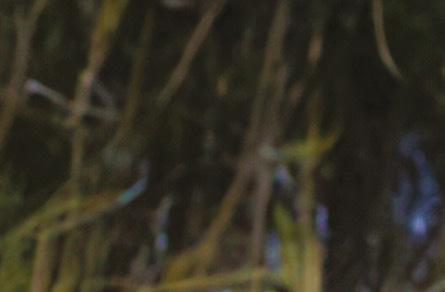


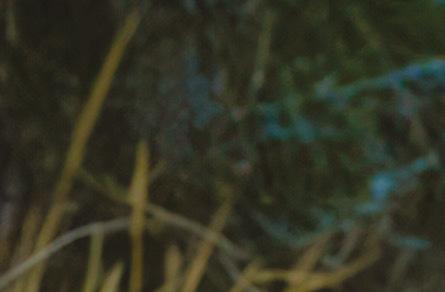

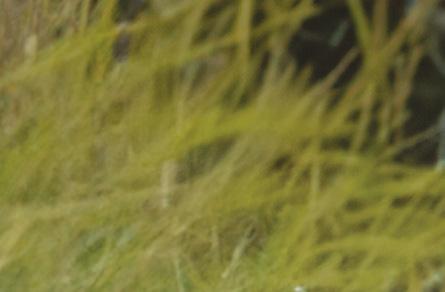



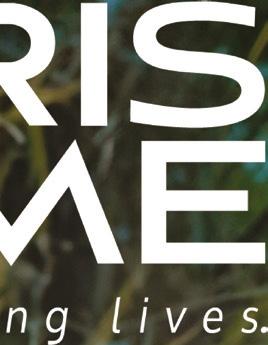

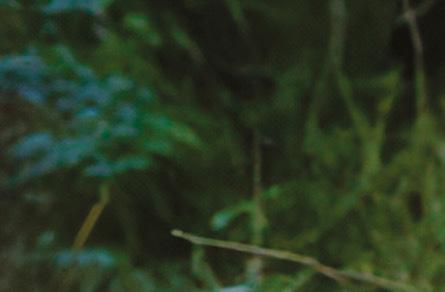
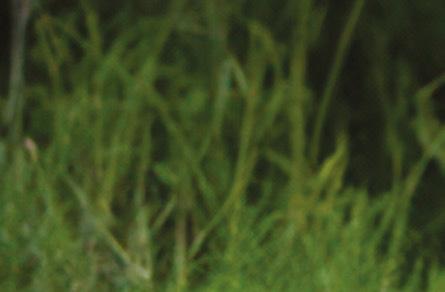



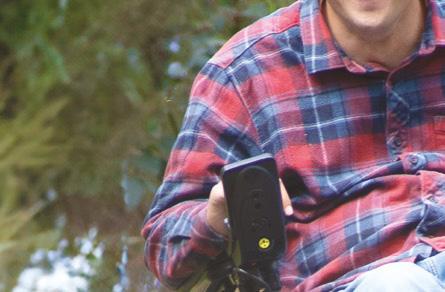

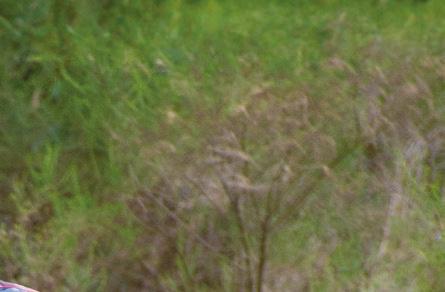
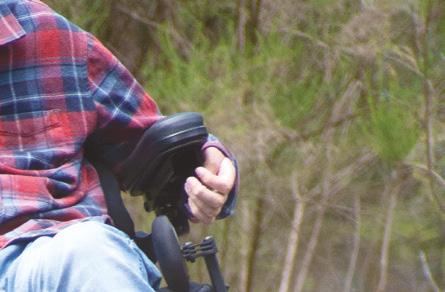


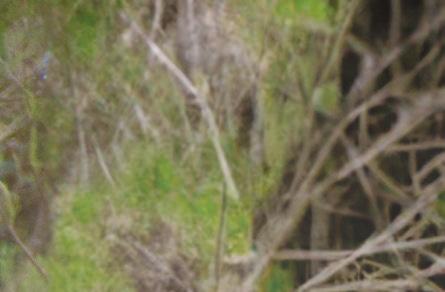
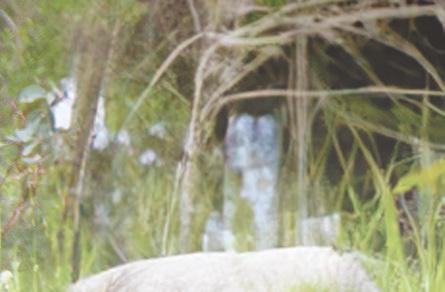
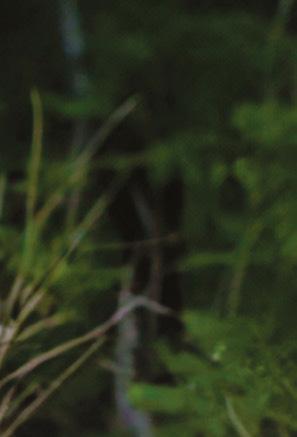





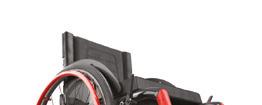

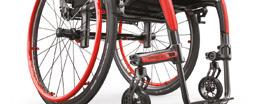






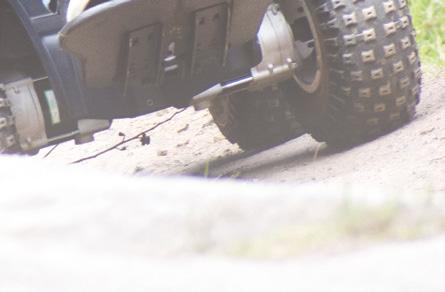








Discover Freedom and Independence


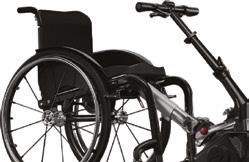

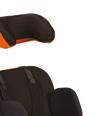

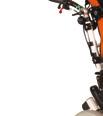
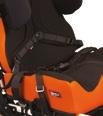








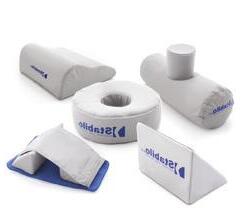




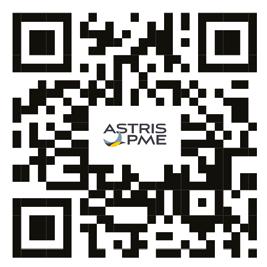

Explore the world of possibilities with Astris PME, Australia’s leaders in special needs equipment. Our Assistive Technology devices are designed for those seeking independence, offering tailored solutions for diverse needs. Partnering with therapists, we ensure the best outcomes for clients of all ages. Experience the difference with our extensive trial equipment range. Connect with our Specialist Consultants today for personalised support. Call us now and embrace a more independent lifestyle! 1300-131-884 | astris-pme.com.au Showrooms throughout NSW • ACT • VIC • QLD Rifton HTS New and improved features! HIRE & SERVICE AVAILABLE Manual Wheelchairs Outdoor Recreation Power Assist Alternate Seating Tilt-In-Space Wheelchairs Standers & Gait Trainers Wheelchair Seating Systems Powered Wheelchairs Positioning & Sleep Systems Trikes & Bikes

















































DEALERS THROUGHOUT AUSTRALIA AND NEW ZEALAND apexmobility.com.au 1300 212 192 24-Hour Positioning APEX Mobility supplies Australia and New Zealand’s largest range of specialised Assistive Technology equipment and supports for 24hr positioning, mobility and care. Contact us to be connected to your local dealer for a free trial!* Schuchmann Madita Fun Anatomic Sitt Starfish Pro Thomashilfen Hercules Prime 10AM12PM 8-10 AM 6-8 AM 9PM6AM 12-2 PM 2-4 PM 4-6 PM 6-9 PM Akces-Med Kukini Rifton Multistander Motion Composites Helio C2 StabiloBed Sleep System Careflex SmartSeat Pro II NEW NEW NEW NEW UPDATED UPDATED New Releases! * Conditions apply
AI and Robot technology
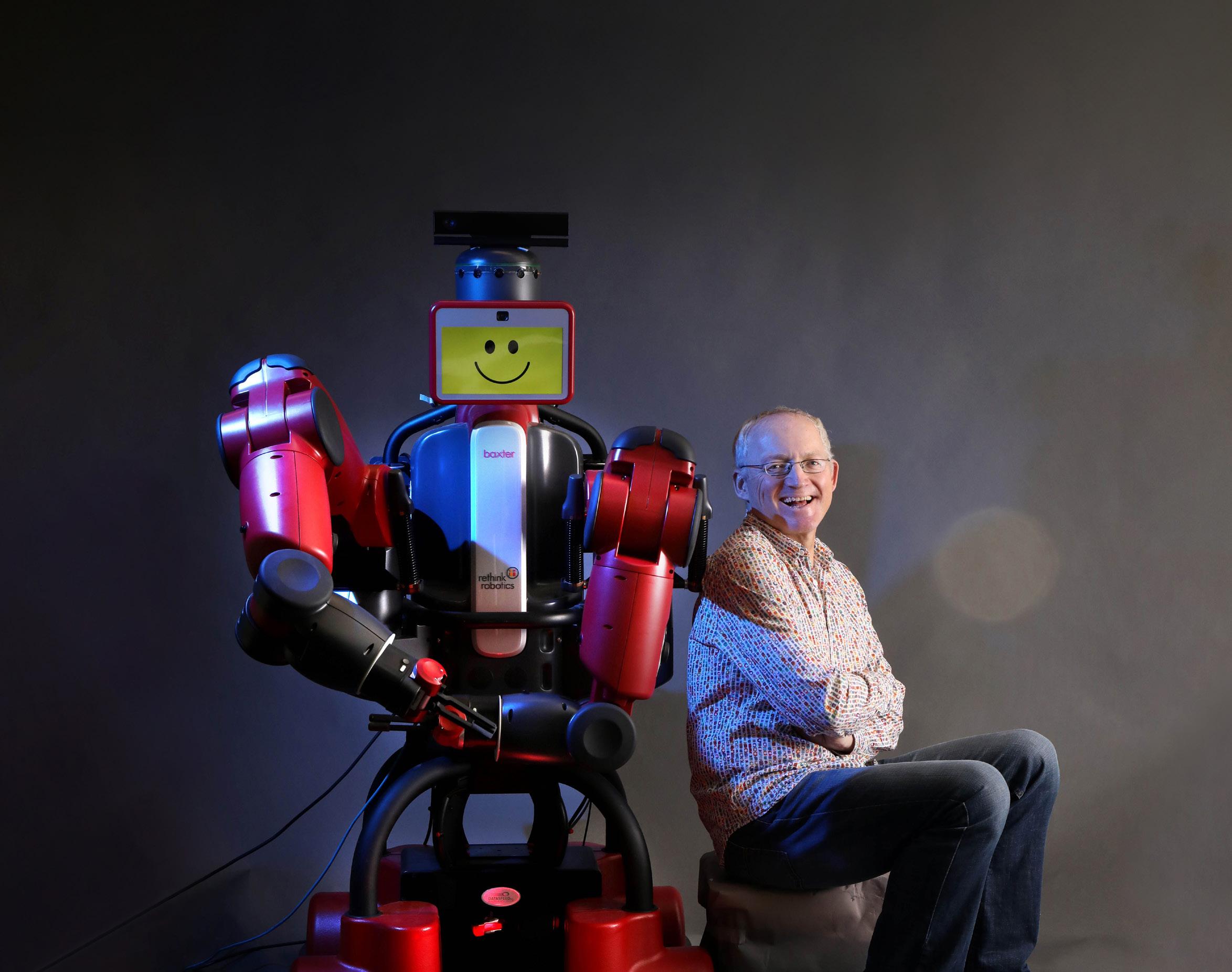
Use of artificial intelligence (AI) can improve emotional skills and is a potential area of development for robot assisted therapy, according to Toby Walsh, Professor of Artificial Technology at UNSW.
“Using robots to engage with people with autism so they can practice social skills they might otherwise struggle with can make them more responsive to feedback than being with a human, he told Kymberly Martin
“What has been discussed in these studies by using robot engineering is that robots are very predictable in what they do, and this can be helpful for people with autism, who are sometimes overwhelmed with human interaction.
“There is evidence that people with autism are less embarrassed to engage with a robot than a human. A robot is not judgmental about someone saying things or getting things wrong. The robot will just complete the exercise or assessment and move onto the next one. It has been shown that this approach can improve anxiety and confidence to deal in uncertain situations with humans.”
He said cartoons too can be a simplified and more abstract version of the real world and help people with autism become more confident with their social communications.
One of the most promising areas for AI is in medicine from diagnosis through to therapy. “Developing AI based tools for vision and audio can help in autism
diagnosis. AI can also assist in making an assessment together with the clinician which can be an expensive and time-consuming procedure given the current backlog of people waiting to be assessed.”
He said an example of this is in mammography where the gold standard now is not to do a ‘human with human assessment’ but use AI and a human which is shown to improve cancer detection that is more accurate than humans alone and is also faster.
“I expect the same benefits to come into the diagnosis of autism by using AI in getting a second opinion that is also less time consuming, reducing the diagnosis evaluation process.”
Read more on AI – Pages 58-61
Link to... News
12 April/May 2024
TobyWalshandBaxter
Elevate your voice today: join Knowable Me!
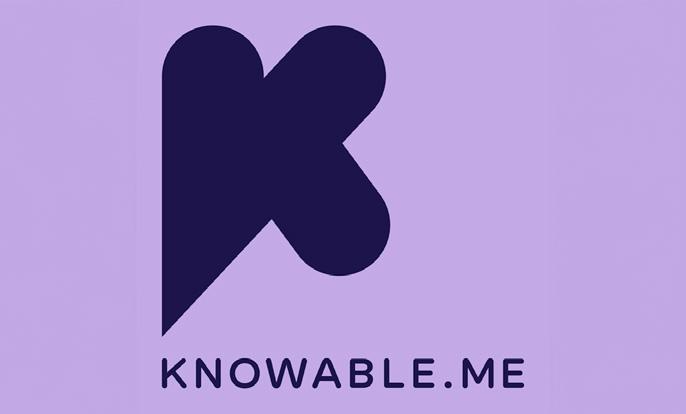
In the heart of Australia’s vibrant diversity are voices with experience and insight hidden by misconceptions and low expectations. Knowable Me was founded to bring light and focus to the needs and preferences of underrepresented voices.
Traditional market research has never valued the representation of people with disabilities. This isn’t just a gap; it’s a vast expanse of missed opportunities for our community. Disability is brushed
off as an outlier in the data if it’s mentioned at all.
By focusing on the perspectives of people with disability and their support networks, we are not just filling a void – we are crafting a new narrative where everyone’s voice is heard, valued, and acted upon.
I’m Kelly Schulz, and founder of Knowable Me. I also happen to be blind… with just enough vision to be dangerous! I’ve struggled to find the necessary data to inspire action and meaningful change throughout my career. Individually, our stories have weight, but often it’s just not enough. That’s why I’m inviting you to be a part of Knowable Me.
From surveys and user experience testing to mystery shopping and
product reviews, our paid market research programs are not merely data points but powerful stories waiting to be told.
This is where you come in
If you have a disability or unique needs, are a carer, or support people with disability, your experience matters. Your insights and your voice have the power to shape a world where accessibility isn’t an afterthought.
By joining Knowable Me, you’re not just sharing your perspective but amplifying our collective voices. It’s a small step toward a future where every individual has the opportunity to contribute, participate, and succeed.
Visit www.Knowable.Me to sign up and elevate your voice!
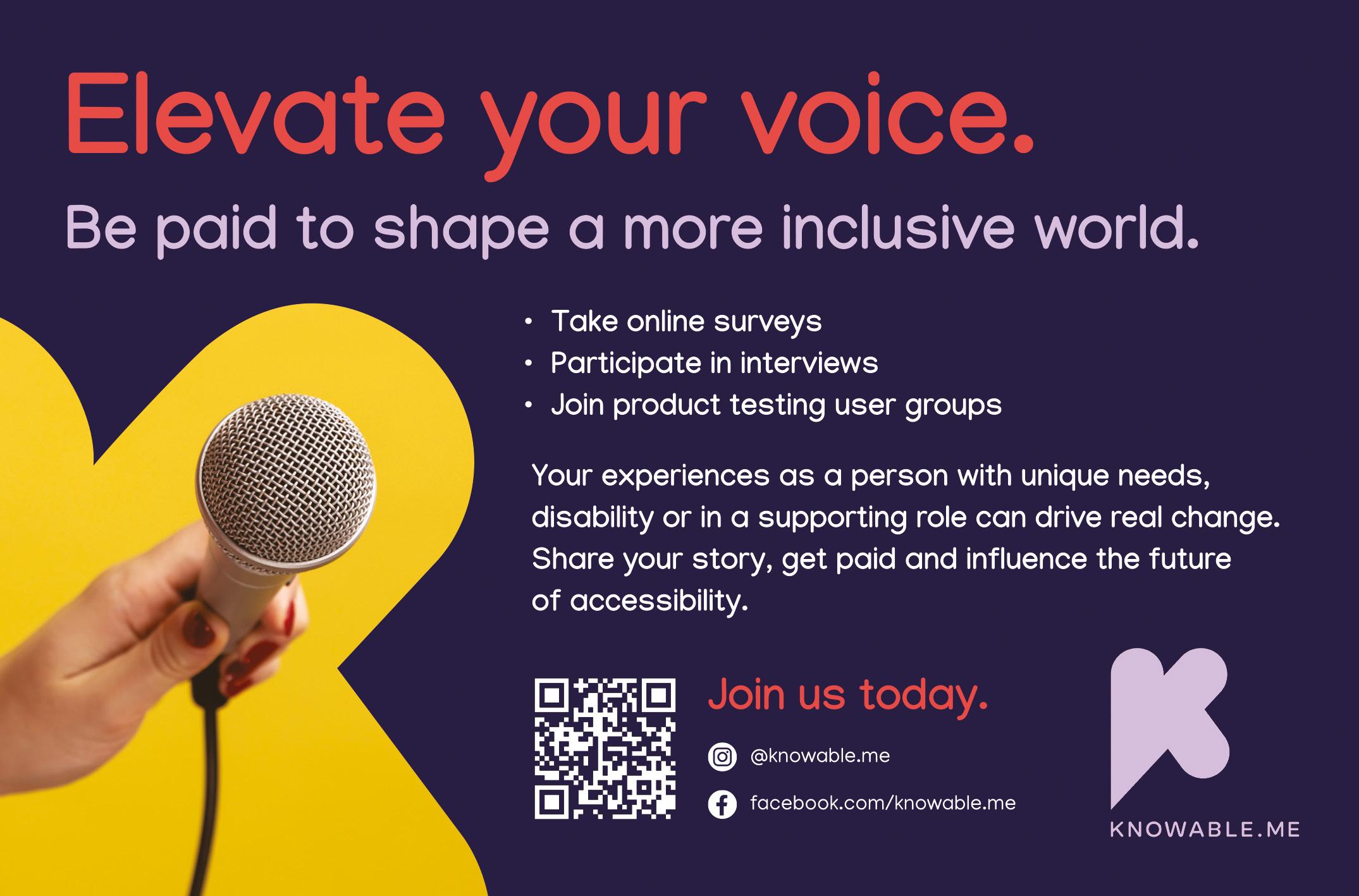
Link to... News linkonline.com.au 13
Not just a toy: puppetry and autistic teenagers
By Olivia Karaolis
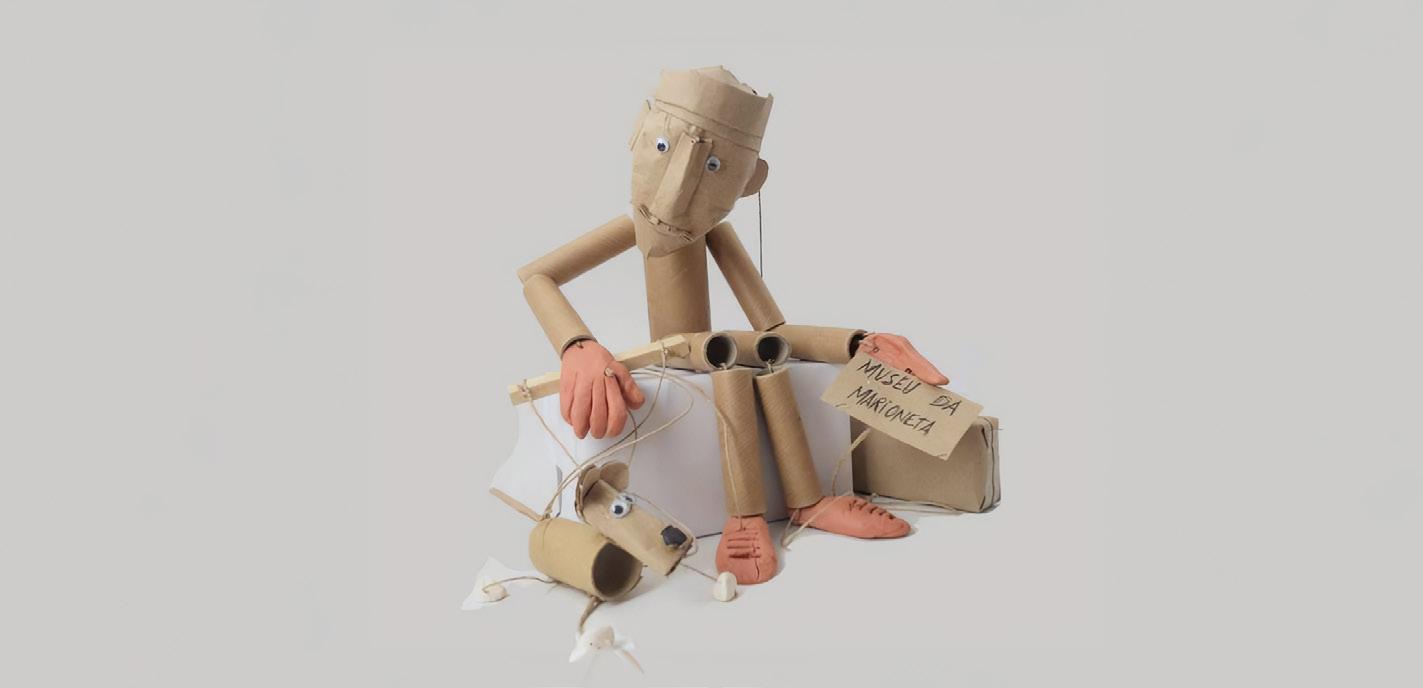
Anew study from the University of Sydney adds to our appreciation of the value of puppets for teenagers and in particular autistic teenagers. The benefits of puppetry for children in therapeutic and educational contexts are well established, with puppets shown to have improved children’s learning, their relationships with adults and other children, and their self-confidence and communication. Adding to this research is an emerging body of evidence that shows the many benefits of puppets for autistic children both as a form of early intervention and as a teaching strategy in the early years of schooling. The paper examined the research that describes the value of puppets for autistic teenagers and young people to see how the object of puppets could maintain relevance for older students in secondary school and as they transition out of school and how puppets can enhance the already established advantages seen in younger children. An online search was conducted of peer-reviewed journals through the university library, followed by an additional search using the same keywords on Google Scholar.
The review highlighted the possibilities of puppetry for many educational
purposes and the wellbeing of autistic adolescents. Puppets were found to support all forms of communication, including an increase in self-confidence using spoken language as well as young people’s use of gestures and drawings to express their thoughts and feelings. Puppets were also found to support adolescents to contribute to large and small group discussions in class or in conversations in therapy. The act of making a puppet created the ideal situation or the motivation for young people to initiate interactions with their teachers, peers, or therapists. They were found to be more willing to talk about their puppet creation, the feelings of their puppet and to invite others to participate in their puppet making process or their puppet play.
Unlimited possibilities
Teachers or therapists wanting to use puppets with teenagers may want to consider their previous assumptions about puppetry and position puppets as an art form and not a toy. The best approach is to introduce puppets as an artform and involve and engage individuals in the puppet making process. You may want to create puppets out of paper and masking tape or from found objects. You can
create shadow puppets, glove puppets or make puppets from cardboard boxes Anything can become a puppet and them manipulated to convey meaning. For teenagers with disabilities, this can be important as the puppet can be made from objects and materials that are a fit for their sensory preferences and personal interests. Think of household objects, bottles, lids, rods, rulers, gloves, socks, pens, erasers, balls and fabrics. If you can move it, then it can be a puppet.
Once the puppet is created, the possibilities for puppet play and interactions are unlimited. Participants can create their own characters, puppet worlds, scenarios, and role play. Puppets can be utilised to tackle difficult or sensitive topics such as racism, personal development, health and safety or gender identity. Puppets can be used to practice how to make sense of new or complex social situations; explore a range of texts including the works of Shakespeare or try new things with their occupational or physical therapist. Puppets can also be a source of calm. For many young people, the presence or feeling of a puppet can be soothing and the simple act of placing a puppet on their hand can provide the tactile feedback that their body needs to slow down and stop feeling overwhelmed.
Puppetry is very much underused by secondary teachers and therapist working with teenagers and we hope the ideas above will encourage you to include this artform in your own practice.
Dr Olivia Karaolis, lecturer, Special & Inclusive Education, University of Sydney.
Read more in the Autism Feature – Pages 62-73
Link to... Autism 14 April/May 2024
The Impact Institute’s My Future,
My Choice Disability Expos 2024
The Social Impact Disability Expo series has started strongly for 2024. A one-stop-shop for innovative programs, services, aids, disability equipment and technologies, attendees leave the expos with greater clarity and optimism for the future.
“People come to the expo understandably cautious about how to utilise their funding to enhance their lives in meaningful and practical ways,” My Future, My Choice Disability Expo, Impact Institute senior advisor Kathryn Carey said. “A governmentcommissioned review found that the transition to the NDIS has been complex and difficult to navigate. In addition, people’s needs have changed over time, and it can be challenging to keep up to date with the full breadth of support available,” she said.
More choice, more impact from Australia’s biggest disability expos My Future, My Choice
“We intentionally work with representatives from the local disability community to ensure that the expo offers real, meaningful solutions and increases inclusion for all people in their community.”
According to Carey, businesses are responding with better and more innovative offerings. “Now, more than ever, people with disability want the opportunity to be informed about products and services before signing up. Attendees can expect a vibrant, friendly atmosphere over the two-day event, with all-ages entertainment, live performances, speakers and demonstrations.
One recent expo attendee found it very inspirational to go to the stands. “Absolutely fantastic and informative.
I needed to talk face-to-face to people. Everyone I saw has gone beyond my expectations... and I am so appreciative of them for going that extra mile.”
For 2024, the expos will again be carried out in a Covid-safe way. The practices people have become familiar with, such as physical distancing, hand washing, extra cleaning and voluntary mask wearing will all form part of what you can expect to see at this year’s expos.
There is also a quiet time on the Saturday morning of the expos between 9am-10am. Entry is free for attendees.
Register online for fast access on the day and follow the expo Facebook pages for regular updates.



We’re thrilled to present the upcoming 2024 program of My Future, My Choice Disability Expos, brought to you by ImpactInstitute, taking place at different locations along Australia’s eastern seaboard. These Expos aim to unite disability product and service providers with attendees, whilst sparking creativity and empowering attendees for a brighter tomorrow.
We’re excited to present the Hunter Disability Expo next, on Friday 10th & Saturday 11th May 2024, from 9am - 3pm, at the Newcastle Entertainment Centre, Broadmeadow. Best of all, entry is FREE!
Exhibitor space is filling up fast, so don’t miss out – contact us today to secure your spot!
events@impactinstitute.com.au 02 9025 9380 FREE ENTRY 2024 EXPO CALENDER canberradisabilityexpo.com.au southwestdisabilityexpo.com.au melbournedisabilityexpo.com.au goldcoastdisabilityexpo.com.au sydneydisabilityexpo.com.au geelongdisabilityexpo.com.au hunterdisabilityexpo.com.au 2 & 3 AUGUST 23 & 24 FEBRUARY 1 & 2 NOVEMBER brisbanedisabilityexpo.com.au 10 & 11 MAY 6 & 7 SEPTEMBER 22 & 23 MARCH 22 & 23 NOVEMBER 7 & 8 JUNE
Link to... News linkonline.com.au 15
On a mission of love: EQUAL ACCESS FOR AUTISM
By Danielle Kutchel
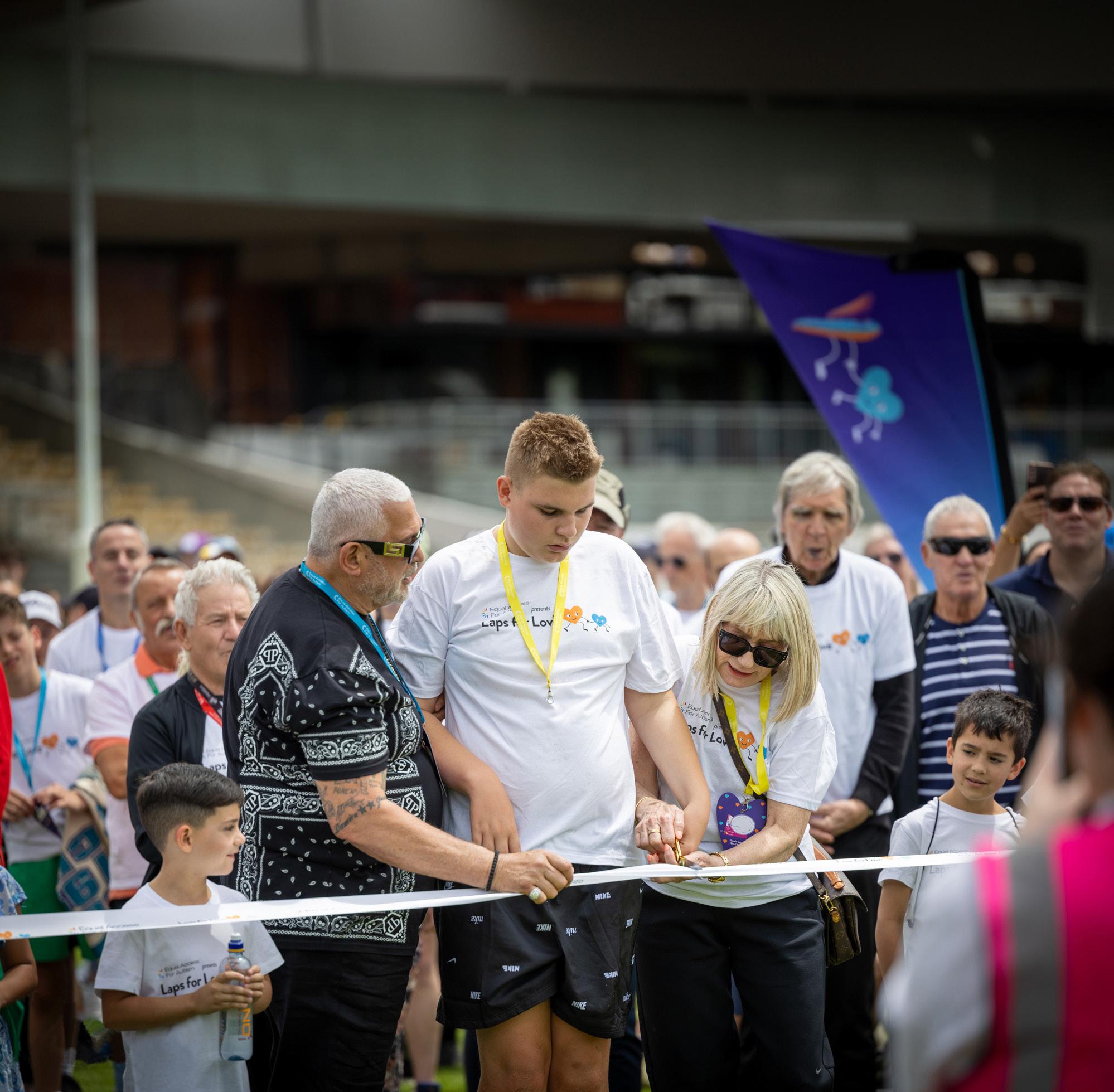
When Cheryl and Mick Gatto noticed there were some things missing from their grandson Dominic’s life, they decided to do what they could to fill those gaps.
They noticed that he didn’t have access to some of the fun, social activities that other kids enjoy, like swimming, rock climbing or even going to the park, that were not set up to cater to people with autism – people like Dominic.
“We had to stop going to parks, no parks at all, and was very difficult and emotionally upsetting for me and Dom,” Cheryl told Link . “His whole life, just by default, we were aware of the challenges and all the opportunities that are denied him, and it just kept growing.”
An idea began to take shape. With previous experience in philanthropy, the doting grandparents founded
Equal Access for Autism, a charity dedicated to providing access to safe recreational spaces and facilities for teenagers and young adults on the spectrum who are dependent on carers and family members.
They gathered friends who provided advice on how to set up, register and run a charity, and in 2022, created the not for profit tailored to Dominic’s needs, and the needs of those like him.
Link to... News/Interview
CherylandMickGattowithDominic
April/May 2024 16
Finding space
Equal Access for Autism is currently looking for an old warehouse or factory that it can refit to suit the sensory and social needs of teenagers and young adults on the spectrum. They plan to kit it out with play equipment like trampolines and climbing walls, with a focus on free play and safety. There will also be purpose-built therapy rooms and bathrooms, and hopefully a party room so attendees can celebrate their special events with friends.
“That’s primarily what our centres will be for those on the spectrum who need an advocate to enjoy themselves,” Cheryl said. “Mum and dad can come too, and we hope to have a café too. No one has to be embarrassed or ashamed or hide the fact that they have autism and can enjoy themselves.”
The couple have already raised $2 million, and hope that this year will be the year that they can get the safe space up and running. Ideally, they would love to have a centre set up in every region in Melbourne. Cheryl hopes the first one can be a prototype to showcase what works for autistic people and their families and carers.
“I just want it to happen. That would be my dream come true this year,” she said.
They’ve already amassed support from all quarters; the charity’s Instagram grid reads like a who’s who of Australian celebrity, with multiple household names pledging their support for the organisation and calling on their fans to support it, and not just with money, but with their voices too.
“It’s about creating awareness. Our belief is that if we create enough awareness, then that will help us make a difference.”
Each year in April, Autism Awareness Month, Equal Access for Autism holds a corporate fundraising event which attracts donors and sponsors from further afield in Australian society.
And, last year for the first time Equal Access for Autism created a fun run-
style event, called Laps for Love, for its network of families to enjoy some time outside in a tailored, safe environment.
Held in a fenced football field, the event was designed with autism front of mind in more ways than one. It was secure, so that those with a history of absconding couldn’t get out and into danger. It also featured climbing walls and bubble blowing, a First Nations art activity, a sensory room, a sensory Santa, food trucks and more.
The day was a firm hit, and Cheryl said the organisation will hold it in future. Around 800 people attended: parents, grandparents, and families. “They didn’t want to leave. Everyone said, ‘this is so good, nobody has ever done this before’”.
A family of changemakers
Through Equal Access for Autism, Cheryl and Mick are on a mission to raise greater awareness throughout society of what autism entails and how it can better catered to by authorities.
In particular, Cheryl wants to see greater consideration in public places for those with invisible disabilities.
“There’ll be a ramp for someone in a wheelchair, and that’s good and they think about them when they make buildings, but they don’t think about autistic people,” she said.
She believes amenities, especially those owned by a council or government, like local pools and sports ovals, could be doing more, whether by offering more sensory-friendly sessions, installing autism-friendly toilets, or by fencing off wide spaces.
“Autism is prevalent in our community, but people don’t see it,” she said.
Because of the lack of appropriate spaces, many people with autism choose not to go out at all and are denied an existence in society.
She encourages other families of autistic people to “be comfortable talking up about what their needs are”, so that they can be accommodated for
in government and council budgets. She said lived experience of disability makes a difference to the approach taken by Equal Access for Autism.
“It’s that lived experience, that investment of love and that makes the commitment to do what we’re doing.”
Cheryl and her husband invite others to talk about their own lived experience of autism, or share Dominic’s story, to continue the growth in awareness.
“[When people say] what can we do, I’ll say, talk about autism! Please tell them you know a family who has an autistic child.”
The charity is keeping the pair of changemakers going. “Sometimes we look at each other and say, thank God we’ve got this amazing purpose to our lives. I wish we could pass that on… to everybody… just an opportunity to get involved in something that’s close to your heart. We feel lucky that we have this and are able to do this for Dominic. It’s a privilege,” Cheryl said.
Read more in our Autism Feature
– Pages 62-73
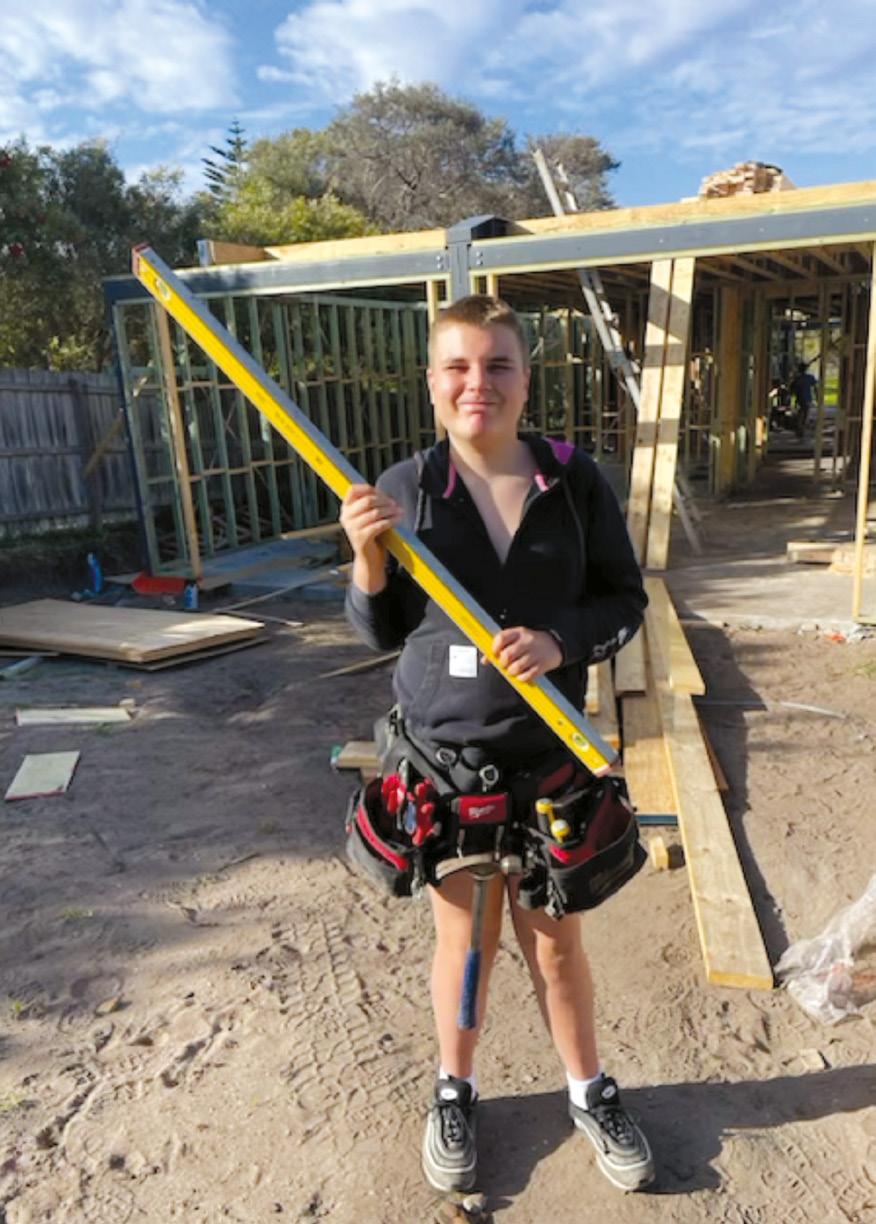
NEWS/INTERVIEW
linkonline.com.au 17
Dominic
Putting the focus on film – for 16 years
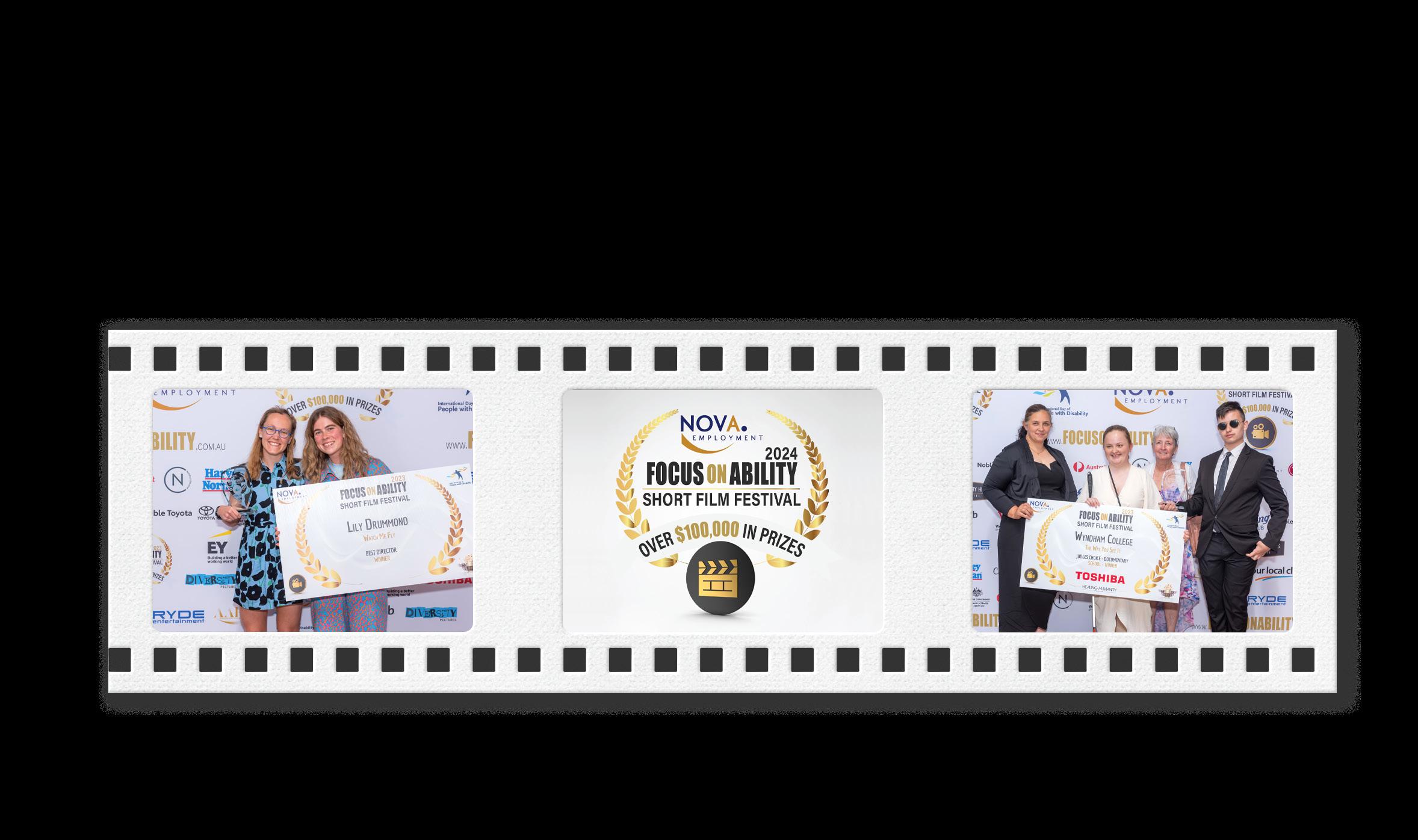
For the 16th consecutive year, NOVA Employment proudly presents the Focus on Ability Short Film Festival (FOA), inviting filmmakers worldwide to showcase the abilities of people with disabilities through the powerful medium of film.
In 2023, the festival reached new heights with a record-breaking 310 finalists from 17 countries. Now, as we gear up for the 2024 edition, it promises to be the most monumental yet. Thanks to our generous sponsors, who have contributed over $100,000 in cash and prizes, we’re encouraging filmmakers and individuals with disabilities to share their stories with the world.
Participation is simple: create a short film or documentary under five minutes in length, centred around a disability theme or featuring individuals with disabilities as main actors. Submissions close on July 12, 2024.
The inception of the festival in 2009 by NOVA Employment CEO Martin Wren
stemmed from a profound belief in the capabilities of people with disability. His vision was to use film as a tool to challenge stereotypes and showcase the diverse talents of individuals with disability on a global scale.
With your support, FOA aspires to catalyse change. Our ambition may seem lofty, but we’ve witnessed the transformative power of the Focus on Ability Short Film Festival firsthand. It serves as a potent catalyst for reshaping perceptions and fostering inclusivity.
The essence of the festival lies in urging filmmakers to shift the lens towards “Ability“ and craft compelling stories that resonate with audiences worldwide.
NOVA Employment, alongside industry luminary Paula Duncan, renowned for her achievements in Australian film and television, has tirelessly championed this cause, making the festival a reality.
The Focus on Ability Film Festival is inclusive of filmmakers at all levels of experience, with many first-time
entrants claiming top prizes. Past submissions have not only been educational but also deeply moving. Feedback from viewers attests to their capacity to challenge preconceptions and foster inclusion.
With an audience capacity exceeding 1.5 million and steadily growing, the festival offers unparalleled exposure for emerging filmmakers and provides a platform for individuals with disability to amplify their voices. Films undergo rigorous evaluation by a panel of esteemed judges and are also subject to an online voting process, with distinct prizes awarded across various categories.
Join us in celebrating the boundless potential and remarkable talents of individuals with disability through the art of filmmaking.
For comprehensive festival information and access to a database of over 3,800 films from previous years, visit www.focusonability.com.au
Link to... Employment
18 April/May 2024
Left: Anu Francis & Lily Drummond | Right: Wyndham College – 2023 Best School Documentary Winner
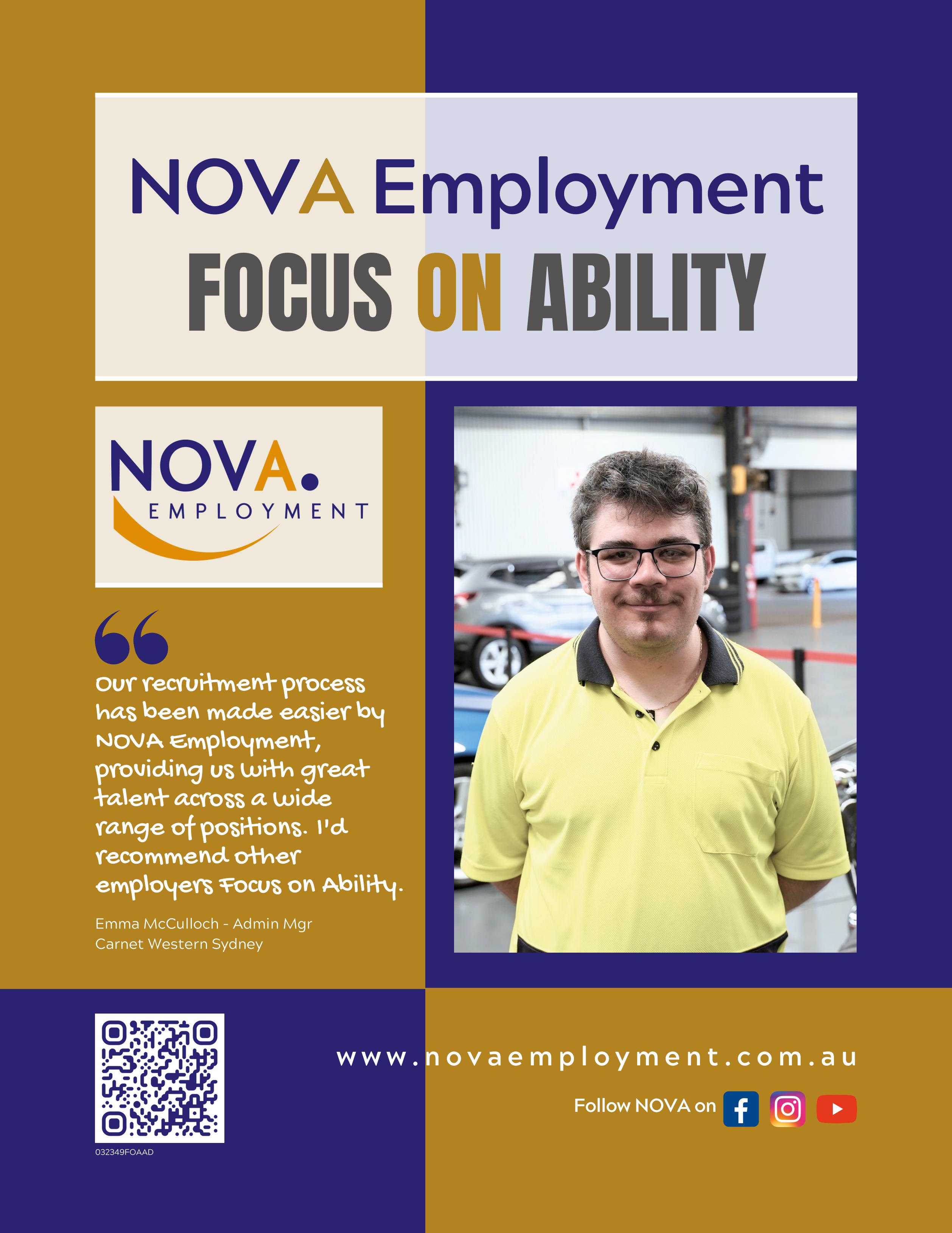
Ayat – a picture of confidence at her graduation
For Ayat Al Manshad, completing a Certificate II in Work Education is opening doors to new opportunities.
Ayat’s studies in her small, tight-knit class incorporated her passion for art and her creative talents.
“I really loved my teachers,” she said. “They were funny and the activities we did were also fun. My favourite thing to do was art.”
The genU Training Work Education course Ayat completed is carefully crafted to create an engaging and positive learning experience for school leavers living with cognitive impairment or intellectual disability. It is part of a group of foundation courses that support learners to build literacy, numeracy and vocational skills, and the confidence to take on new challenges.
Creating a tailored learning experience
Time away from work and study, or a previous negative classroom experience can discourage people from starting the studies that can help them take that next important step, according to educator and training manager, Katherine Saheed, who stresses the value of a flexible environment that can adapt to different learning and communication preferences.
“At genU training we have a strong focus on providing training to those that want to work in the disability and broader community services sector, and also to people living with a cognitive impairment or intellectual disability,” she said. “This specialisation allows us to offer a unique learning experience.
“We have small and supportive classes. It is a very hands-on and practical

approach that offers very engaging and tailored learning. We apply a high level of ‘reasonable adjustment’ – a vocational term that means we can change the way we teach and assess to meet each individual’s learning styles. As an example, we can ask questions verbally, or ask a student to act out a scenario if they struggle with writing.”
As part of her Work Education studies, Ayat participated in a creative, tactile self-reflection activity that examined how customers respond to body language and tone of voice. The stunning self-portrait she produced not only captured her infectious smile, but also what she had learned in the Customer Service unit of her course.
Extra support outside the classroom is key
For an enjoyable and successful study experience, additional help outside of the classroom can be crucial, according to Katherine.
“Learners who access our Success Coaching get support that can help remove those barriers to success that people face.
“Success Coaching includes help understanding timetables and with submitting assessments, as well as with managing time and priorities.
“The team can assist with writing resume and provide support and advice in planning those next exciting steps to other work, study and volunteering opportunities.”
For recent graduate Ayat, a positive and tailored learning experience has set the stage for her to eagerly embrace her next exciting chapter and for her future success.
To find out if you’re eligible for fee free training to build your literacy and numeracy skills, or to gain a career building qualification, talk to genU Training. Call 1300 582 687 to learn more.
Link to... Employment
April/May 2024 20
Ayat Al Manshad with her self-portrait
https://qrco.de/bemxmV Education for good. Take the next step in your learning journey. Build your reading, writing, maths and work skills with courses created for people with intellectual disability or cognitive impairment. Apply now! For more information Scan the QR Code or call 1300 582 687 *This training is delivered with Victorian and Commonwealth Government funding for eligible individuals. TOID 5553. 22555VIC Certificate I in Adult Literacy and Numeracy 22566VIC Certificate I in Work Education
Victorian Disability Worker Commission: protecting and promoting safety for people with disability

The Victorian disability sector is on a unique journey unlike any other state or territory – leading the way in better protections for people who use disability services and promoting a high-quality workforce.
To help achieve this, the Victorian Disability Worker Commission (VDWC) provides an independent, free, and confidential complaints service for anyone who has a concern about any disability worker in Victoria, regardless of if they are NDIS-funded or not.
If you feel something is wrong with the conduct of a disability worker or you’re unhappy with their services, the VDWC want to know. Whether you’re a person with disability, a family member or friend, carer or member of the community you have the right to make a complaint. The complaints service also doesn’t require the involvement of a service provider.
You can make a complaint about a disability worker’s respect for you and
your rights and support for your choice and control.
This includes aspects such as their:
• standard of work
• knowledge, skill, or judgement
• suitability to hold disability worker registration, or
• capacity to provide services safely.
Victorian Disability Worker
Commissioner Dan Stubbs is blind and understands the importance of feeling safe with a disability worker. This includes feeling safe to speak up if something is not quite right.
“We understand that it can feel difficult and uncomfortable to make a complaint, but we’re here for you. We have a trained and friendly team who will listen to your concerns, investigate, and take action if required,” he said. “Sharing a concern or making a complaint can help improve the standard of disability workers and quality of care for everyone.”
This was the case for Sophia*, a disability service user who made a complaint about her disability worker Tracey*, who didn’t develop a support plan when she started providing supports and services for Sophia. Tracey was counselled and provided with education about her obligations under the Code of Conduct, that requires all disability workers to provide supports and services in a safe and competent manner, with care and skill.
The VDWC receives wide-ranging complaints and can act accordingly. Solutions might include helping to establish better personal boundaries, revising support plans, or commencing investigations for more serious offences.
Under the Disability Service Safeguards Act 2018 (Vic), disability workers and employers must notify the VDWC if they believe that a disability worker has engaged in misconduct which puts the safety of people with disability at risk.
If you’re unsure whether your concern is something you can make a complaint about, you can always call the VDWC on 1800 497 132 to discuss. Visit www.vdwc.vic.gov.au/complaints-andnotifications for other ways you can make a complaint.
Let’s work together to make a safer, stronger, disability sector.
*This case study shows one of the types of matters the VDWC often respond to. Pseudonyms are used and some details have been changed to protect the anonymity of the participants.
Link to... Employment April/May 2024 22


https://www.vdwc.vic.gov.au/complaints-and-notifications/complaints we’re here for you. If a disability worker does something that doesn’t feel right, The Victorian Disability Worker Commission can deal with your concerns about a disability worker’s behaviour or quality of their work. Our complaints service is confidential, and we can take action if something isn’t right. Because people with disability deserve to feel safe. For more information about complaints, or if you have concerns about a disability worker, contact us: • Visit vdwc.vic.gov.au/complaints • Call 1800 497 132 • Meet us face to face • Via the National Relay Service, including for Auslan interpreters: call 1300 555 727 or SMS 0423 677 767 Scan the QR code for more information
“An equitable experience FOR EVERYONE”
How Telstra is helping all Australians get online – their own way
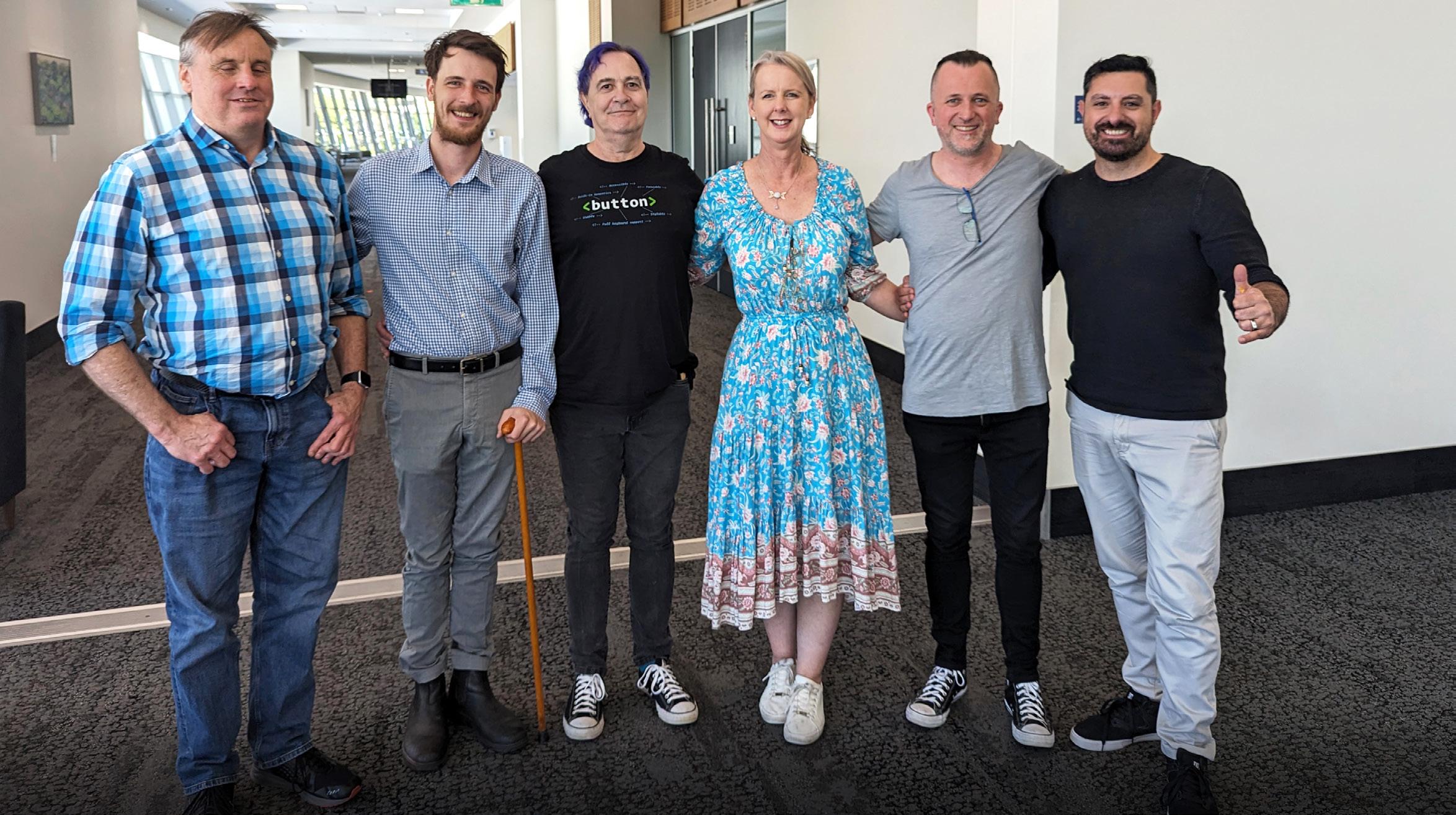
For 28-year-old accessibility specialist Jordan Morris, the reason Telstra is one of Australia’s most accessible companies is not just because it listens to its customers, but because of those who are doing the listening.
Since he joined Telstra in early 2022, Morris has been part of a 20-strong accessibility team, who oversee a thriving program of tech development, user testing, staff training and advocacy that have set new standards for corporate Australia. The team, which includes people living with blindness, deafness, mobility and neurological impairments, has become a paragon for the right way to “do” accessibility.
“This is the first time I’ve known a company that provides accessibility not just for its customers but for its employees, which creates such a powerful circle of reinforcement,” Morris said. “Unless you become a federal politician, I don’t think you could have such a positive impact on so many people.”
That impact includes training more than 1,000 staff with accessibility skills and tools, launching a hands-on user testing program with 50 participants with different abilities, and building a dedicated online hub for all customers who live with disability. In November, Telstra.com.au was named Australia’s most accessible corporate website
in the Centre for Accessibility’s 2023 Access Awards
For Morris and his colleagues, it all comes down to a commitment to inclusivity.
“Disability isn’t one-size-fits-all,” he said. “Everyone has different needs when it comes to accessing online information, the browsers, tools and devices they use. Accessibility must be about everyone, not just people in wheelchairs or those who can’t see or hear.”
Close collaboration and camaraderie
In the five years since Telstra appointed its first Head of Accessibility, Ben Pintos-Oliver, the team has run a
Link to... Assistive Technology
24
April/May 2024
Members of the Telstra Accessibility team pose together. From left to right: Sean Murphy, Jordan Morris, Laurence Lewis, Lorraine Greenaway, Brady March, Ben Pintos-Oliver.
sustained program of digital inclusion in close collaboration with the developers and designers who provide the “smarts” behind Telstra’s fastgrowing accessible services.
Today, visitors to Telstra’s Sydney offices are often bemused to find a huddle of coders, designers, and accessibility specialists crowded around a phone, testing whether a new tool or piece of code is cooperating with their assistive technology. “We love this on-the-fly testing,” PintosOliver said. “When it all goes according to plan, there will be a huge cheer that disturbs everyone on the office floor!”
“It’s long been believed that people with disabilities have grown tired of providing feedback because they’ve so rarely been heard in the past. But we want people to be active and tell us: ‘hey, this really worked for me; but this didn’t work so well.’”
– Ben Pintos-Oliver, Head of Digital Systems & Accessibility, Telstra
This camaraderie is what makes Telstra a special place to work, according to Marcus Helvig, an accessibility analyst living with autism, whose audits have proved priceless to the team. “After years of being told I’m different and feeling slow, being in an empathetic workplace that appreciates my skills, with managers who really value me, has made a massive difference in my life,” Helvig said.
“Our design team and the accessibility team are locked at the hip,” according to Telstra Accessibility Lead, Sean Murphy who is blind and who many
credit as the go-to guru of online accessibility in Australia. “When we’re building a new app or webpage, we have an extremely robust process for testing every feature. Nothing goes out without passing the latest version of the WCAG standards,” he said, referring to the global benchmark for online accessibility.
Customising accessibility
When it comes to digital access, everyone has their personal likes –not just with the device or browser they connect through, but with their preferred fonts and contrasts, tables versus infographics, the use of captions on videos. When you add audiodescriptions for blind readers, or captions for the hard of hearing, you’re also making life easier for people who just like these features anyway.
“Everyone has a different take on what makes a webpage too busy or too simple,” Murphy said. “We’ve done our utmost to build an equitable experience for everyone, whether they’re using a screen-reader, captions, an adaptive keyboard, or no assistive tech at all.”
For Jordan Morris, who’s lived with chronic pain and mobility challenges for 10 years since an appendix operation left him with irreversible nerve damage, having an “invisible disability” gives him a unique perspective on the range of disabilities people live with – often silently, without others knowing.
“There’s a huge range of ways that people interact with technology,” he said. “Many neurodiverse people want to be off-camera in meetings, but that same camera really helps Deaf people who need to lip-read or watch people’s body language. Some people want short, jargon-free text, while others want detailed technical information, so you always need to offer different layers of information that are easy to find.”
Complex challenges
Morris is proud of the lengths the team has gone to answer complex challenges on their website, which is a “safe
ASSISTIVE TECHNOLOGY
exit” function for victims of domestic violence to quickly leave the family assistance pages without a trace, or the concise HTML ‘alt texts’ that enable screen-readers and neurodiverse customers to interpret or “calm down” busy imagery.
“We’re not just targeting people in wheelchairs or the hard-of-hearing, but the person trying to do something on their phone while boarding a tram in bright sunshine,” he said. “Disability is never uniform. Making content accessible to lots of different audiences ultimately makes things easier for everyone.”
TOP TIPS FOR AN ACCESSIBLE WEBSITE
Here are some of the visible things that Telstra does to ensure its online content, language and layouts are as accessible as possible:
Our language
• We use simple language – we write how we speak
• We use shorter blocks of text
• We avoid using jargon where we can and explain it when we can’t
• We use heading levels so you can find the topic you’re looking for.
Our content
• We use images to support and break up content
• We describe our images
• We avoid the use of animations
• We audio describe and caption our video content.
Our layouts
• We use simple page layouts
• We use strong colour contrasts to make sure text is clear to read
• We manage the use of white space.
Read more about how Telstra is helping to connect more people to our website: www.telstra.com.au/accessibility-anddisability/online-accessibility
Read more about the 2023 Australian Access Awards: www.accessibility.org.au/awards
linkonline.com.au 25


Got a question about Telstra’s disability products or services? The Disability Enquiry Hotline provides specialist advice to customers with disability and their carers across Australia. Visit telstra.com.au/accessibility-and-disability for more information. Call 1800 068 424
Navigating configured with assistive technology

Navigating the selection process for configured assistive technology (AT) might seem daunting, especially if you’re new to these requirements and the process that comes with it. Additionally, innovations and advancements in recent years may mean that replacing a piece of configured AT necessitates a fresh approach, presenting a new decision-making process. Fortunately, numerous services and professionals specialise in streamlining the process of aligning AT solutions with users’ needs and goals in an efficient approach to achieve the desired outcomes.
Understanding configured assistive technology
Tailored AT, such as configured wheelchairs or hygiene systems, cater to a user’s unique needs and measurements when standard options fall short. These solutions offer varying levels of adjustability and foundational qualities and features to achieve desired outcomes based on the user’s
individual requirements. The extent of customisation and configuration potential in the right solution can unlock numerous opportunities for the user, depending on their specific needs.
Navigating the options: a strategic approach
Accessing trustworthy professional support and information sources is a key step. Therapists and providers of configured AT are integral members of the team required to guide users and their support network throughout this process. Begin by reflecting on any prior experiences with AT, identifying what was effective and what wasn’t, determining what should be retained, altered, or discarded.
An assessment with a prescribing therapist assists in defining goals and determining essential features in AT, commonly known as non-negotiable elements crucial for goal attainment. Subsequent discussions should focus on desirable features, addressing
potential challenges through prioritisation based on importance. Negotiations may be necessary, considering the trade-offs between features and potential drawbacks. Maintaining simplicity in the overall setup is equally vital, as unnecessary complexity can lead to increased maintenance requirements or misuse.
Suppliers contribute by sharing their expertise on the AT items. Utilise time with the supplier, often during a trial, to understand the item’s potential, functions, and limitations. Actively engaging in this step facilitates wellinformed decision-making and assists in justifying the choice to funding bodies, complemented by assessment findings and outcomes achieved while using AT.
Successful integration of configured AT relies on a collaborative process centred around the user and their support network. In the assessment and trial stages, advocate not only the fundamental/non-negotiable requirements of the AT but also the distinctive features that can enhance its integration into daily life, tailored to the user’s individuality. Having a knowledgeable and experienced therapist and supplier on the team will guide well-informed decisions when identifying the most suitable AT.
Lastly, anticipate receiving education and training from both therapist and supplier, starting at the time of delivery and continuing through follow-up sessions. For configured AT items, acquiring proficiency in the proper setup, usage, and maintenance is crucial.
For more information or support on the APEX Mobility range and to be put in contact with one of our distributers around Australia, contact the team at APEX Mobility on: 1300 212 192 or email: sales@apexmobility.com.au
Link to... Assistive Technology 28 April/May 2024
Pushing the boundaries of personal mobility
From home to the workplace, from beach to trail, the Omeo is changing lives!
With thoughtful, intelligent, Kiwi design, Omeo Technology is taking personal mobility to the next level. Pairing innovative technology and cool design, to give you new levels of freedom, independence, and connections with the community and your environment.
The Omeo is the world’s only mobility device that can be controlled by body movement - like you are the joystick! The Active Seat Control is integrated with the absolute best of self-balancing technology. This makes the experience effortless and intuitive, freeing up your hands.
The Omeo allows for safe, unobstructed transfer on and off the machine. With its zero-degree turning
circle, and additional joystick control, it allows you to navigate tight indoor spaces with ease.
Explore the freedom of outdoors, tackle uneven terrain, sand, and inclines, all while remaining level in your seat.
With a battery life up to 50km, you can spend the day exploring and engaging in the community, no longer on the sideline.
Omeo Technology has a dedicated team of specialised agents across Australia that work with you personally, organise trials and make sure the Omeo is the right fit for you. Your agent will provide ongoing guidance, so you can make the most of your Omeo journey.

The award winning Omeo is changing lives!

The Omeo is your passport to an exciting new world of mobility, freedom, and independence. Bring back the joy of movement in your life, as your Omeo creates a relationship between mind, body, and balance, allowing more opportunities to engage with loved ones and the wider community.
Cool design, innovative technology and seat steering control driven by selfbalancing technology. The Omeo is Kiwi made and designed for both indoors and outdoors, giving new levels of freedom and independence to customers globally.
Contact us for further information and to organise a trial with an Agent near you. Don’t forget to check us out on social media and at the ATSA Brisbane expo in May!






omeotechnology.com
service@omeotechnology.com
Link to... Assistive Technology
linkonline.com.au 29
Accessible Telecoms – closing the information gap

Are you looking for communication devices to suit your needs? Are you thinking about purchasing a new phone and want to know what’s new, or which features and options might help to improve your access to telecommunications?
With so many assistive technology (AT) options to choose from it can be overwhelming to choose the right one for you.
Accessible Telecoms is a free service, funded by the Commonwealth of Australia, which aims to close the information gap surrounding the accessibility features of telecommunications equipment available here.
An initiative by the Australian Communications Consumer Action Network (ACCAN), this service is specifically designed to cater to individuals with disabilities, seniors, their families and caregivers, as well as service providers and advocates. However, Accessible Telecoms welcomes anyone seeking assistance.
At the heart of the Accessible Telecoms Project is ACCAN’s Inclusion Team, overseeing its development with insights from a dedicated advisory committee of disability experts. Their contributions shape the product listings, accessibility features, and user-friendliness of the website, among other key aspects.
The online platform serves as a selfhelp resource, listing the accessibility features of phones, tablets, accessories, and apps that facilitate communication. You have the option to search for specific models or devices, accessing detailed specifications, or tailor your search based on individual accessibility requirements, simplifying your quest for suitable solutions.
Whether you’re exploring ways to enhance the accessibility of your existing device or thinking about something new, our Accessible Telecoms team is here to offer personalised guidance. With industry expertise and lived experience with disabilities, our team can help you maximise the potential of your current
devices or steer you toward new options that align perfectly with your needs. We can also help connect you to local or online training resources to add to your tech skill set.
Experience a world of easier communication with Accessible Telecoms:
• Home phones equipped with loud ringers, adjustable volume, or large buttons
• Phones and equipment compatible with your hearing aids and other devices
• Browse mounting solutions for wheelchairs, vehicles and the home
• Control accessories like eye gaze tools, switch buttons, prosthetics, and more
• Apps for media captioning, voice-totext, screen zoom and enhancement
• If staying in touch with your service providers poses challenges, consult us about alternative contact options or specialist helplines dedicated to accessibility and priority assistance
• Curious to test a device before making a purchase? Reach out to us for assistance in locating local providers with trial options
• Gain new skills with technology by using our training search or seeking advice from our team on available training options.
Accessible Telecoms is eager to address your unique requirements. Our dedicated team stands ready to answer your questions and direct you to optimal solutions. Don’t delay —connect with us today!
• Helpline: 1800 442 300
• Text: 0438 454 413
• Email: accessible.telecoms@accan.org.au
• Website: www.accessibletelecoms.org.au (featuring Device Search and Livechat support)
Link to... Assistive Technology 30 April/May 2024


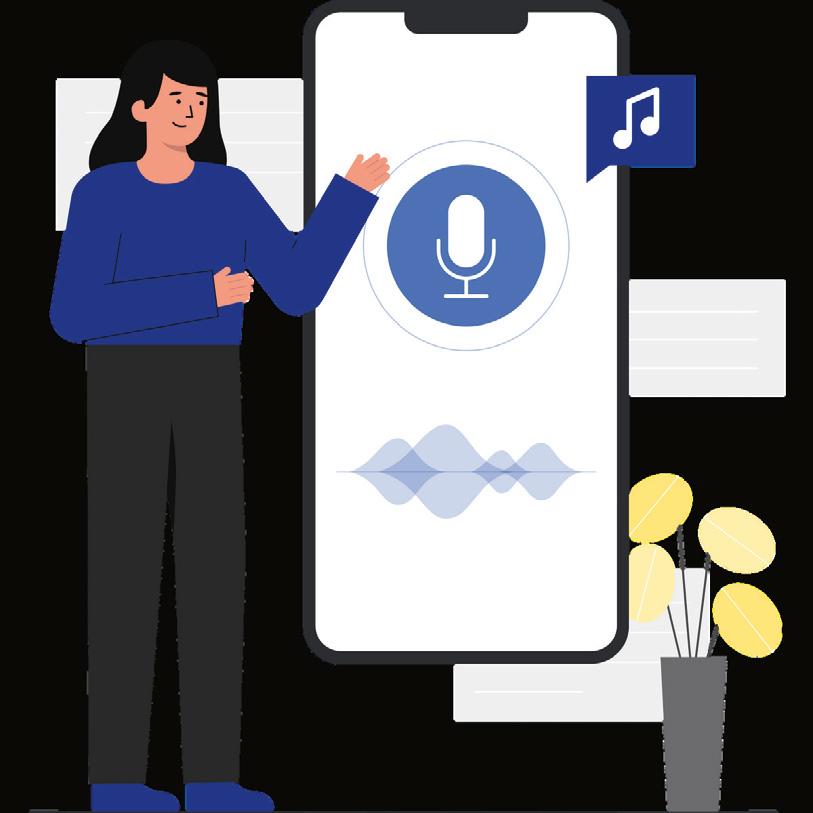




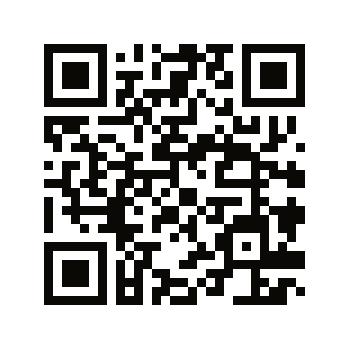
0438 454 413 accessible.telecoms@accan.org.au accessibletelecoms.org.au 1800 442 300 Get in touch with us today! Find the right technology that works for you. Accessible Telecoms provides a free online platform for you to find devices, apps, accessories, and training that allow you to stay connected. Our team are always ready to help meet your needs. Our team provides expert advice on accessible devices and their features. Whatever your needs, our team can help you every step of the way!
Bathrooms – where luxury meets function
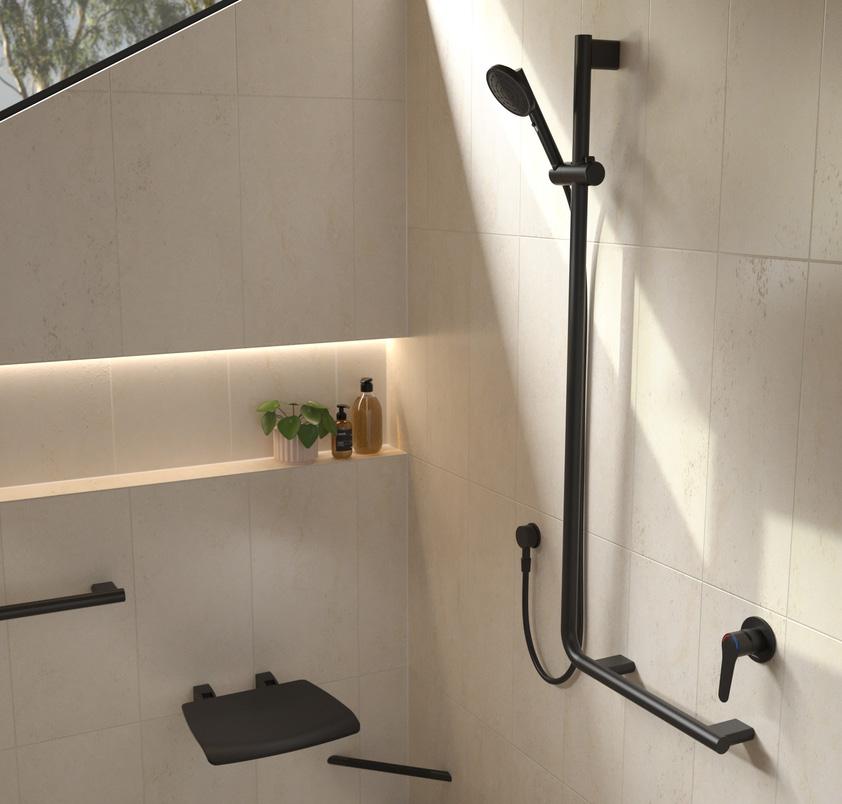
For too long, independent living bathroom fixtures have often placed colour and texture as an afterthought, rather than integrating functionality and beautiful design. This results in bathrooms that have an unappealing and purely utilitarian feel rather than a cohesive match with the rest of the home. With this challenge in mind, Caroma has created the Opal Collection, a comprehensive and versatile range specifically designed to maximise independence without compromising on style. Featuring smooth, rounded contours and clean lines, the Opal collection fits into any bathroom while ensuring easy cleaning for ultimate hygiene.
Tapware – Care and style combined. Featuring matte black, chrome and
PVD brushed nickel, the Opal tapware range features an antibacterial aerator to help prevent bacterial build up and laminar flow to remove air from the water stream, reducing the risk of airborne Legionella. Each tapware also features an extended and angled spout that ensures water flow does not come into direct contact with the basin waste, as well as a curvature at the top of the spout that helps with water runoff and reduces the risk of water pooling; a potential breeding ground for bacteria.
Support Rails – Independence and versatility. Our Opal support rails are designed to enhance independence by providing additional support and balance assistance inside the home. Featuring a modern, discreet design, each support rail is available in a variety
of lengths and angles and can support a load bearing up to 1100N (approx. 110kg). The range includes shower support rails and a folding shower support seat.
Support Showers – Tailor your shower experience. Elevate your showering experience with VJet technology, where you can use the slide controller to seamlessly transition from an invigorating shower spray through to a gentle mist. Find the right match for your bathroom with straight or angled rail options, available in chrome, matte black and brushed nickel. Each rail has also been designed for support, with a load rating capacity of 1100N (approx. 110kg). You can also optimise your showering experience with shower support products, such as corner support rails and shower seats for added safety in wet areas to prevent slips and falls.
Toilets – Each Opal toilet features our most hygienic toilet flushing technology; Caroma CleanFlush. This revolutionary rimless experience means Opal toilets are easy to clean and water efficient, matched with superior hygiene. Additional benefits include optional nurse call armrests, easy height pans make it easier on the knees and long pan projection to accommodate commode chair use.
Basins – All Opal basins combine modern style design to meet space and storage requirements. Enjoy a range of features including integrated shelves to maximise storage in the bathroom space and durable ceramic construction. Each basin can also be installed to comply with AS1428.1-2021 design for access and mobility.
The Opal collection is trusted for all bathrooms that are designed with wellbeing in mind.
For more information visit caroma.com.au
Link to... Home Modifications April/May 2024 32
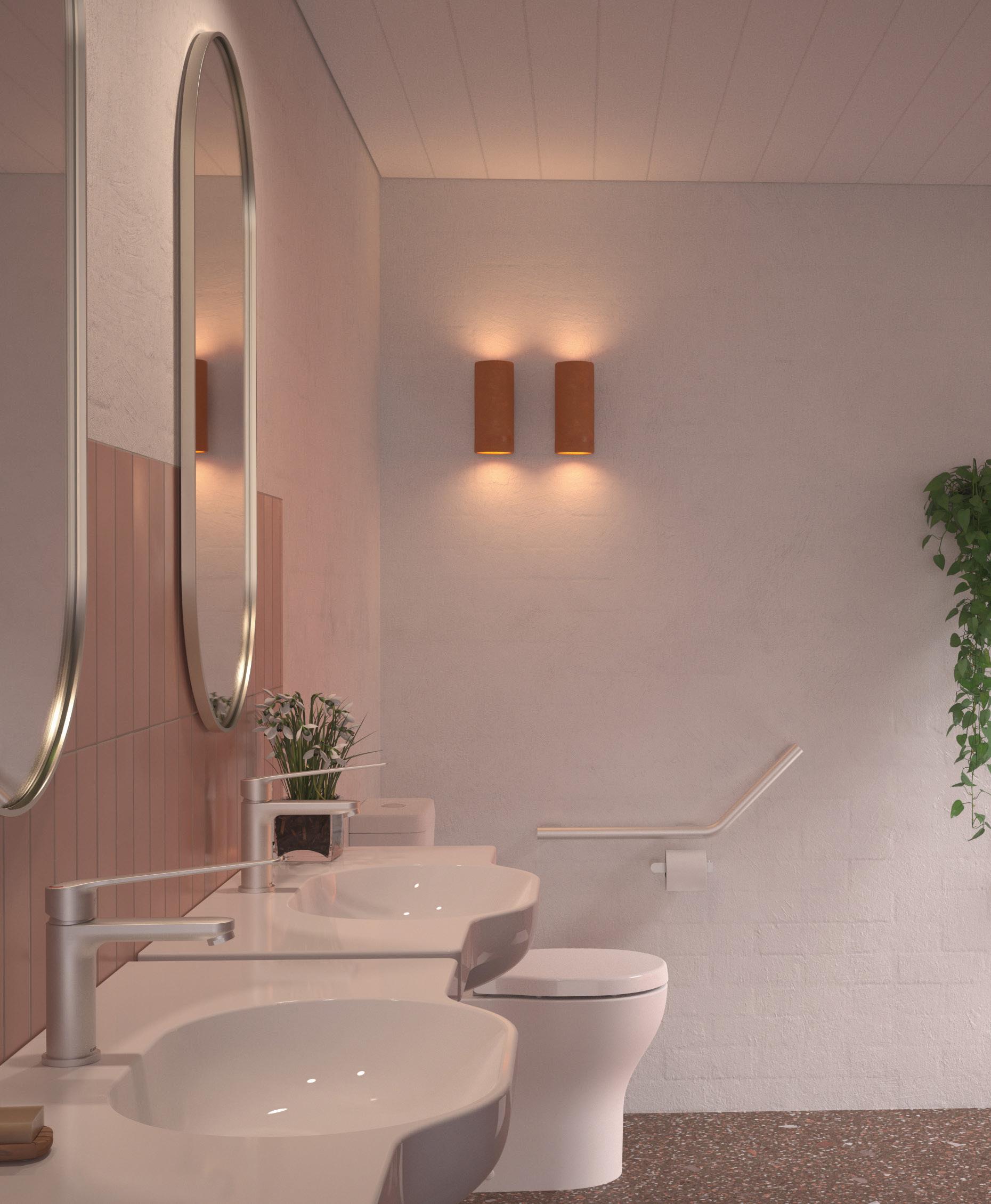
Designed with wellbeing in mind
Our stunning Opal independent living collection is specially designed with practicality in mind to enhance your wellbeing. The fusion of contemporary styles with discreet modifications blends seamlessly into the bathroom to promote comfort and independence. Thoughtful design features such as raised height toilet pans, integrated shelf space on basins and extended handles on tapware are just some of the practical additions offered to improve accessibility, all while ensuring your bathroom looks beautiful.
VISIT caroma.com.au to learn more
How VR learning can help achieve your goals
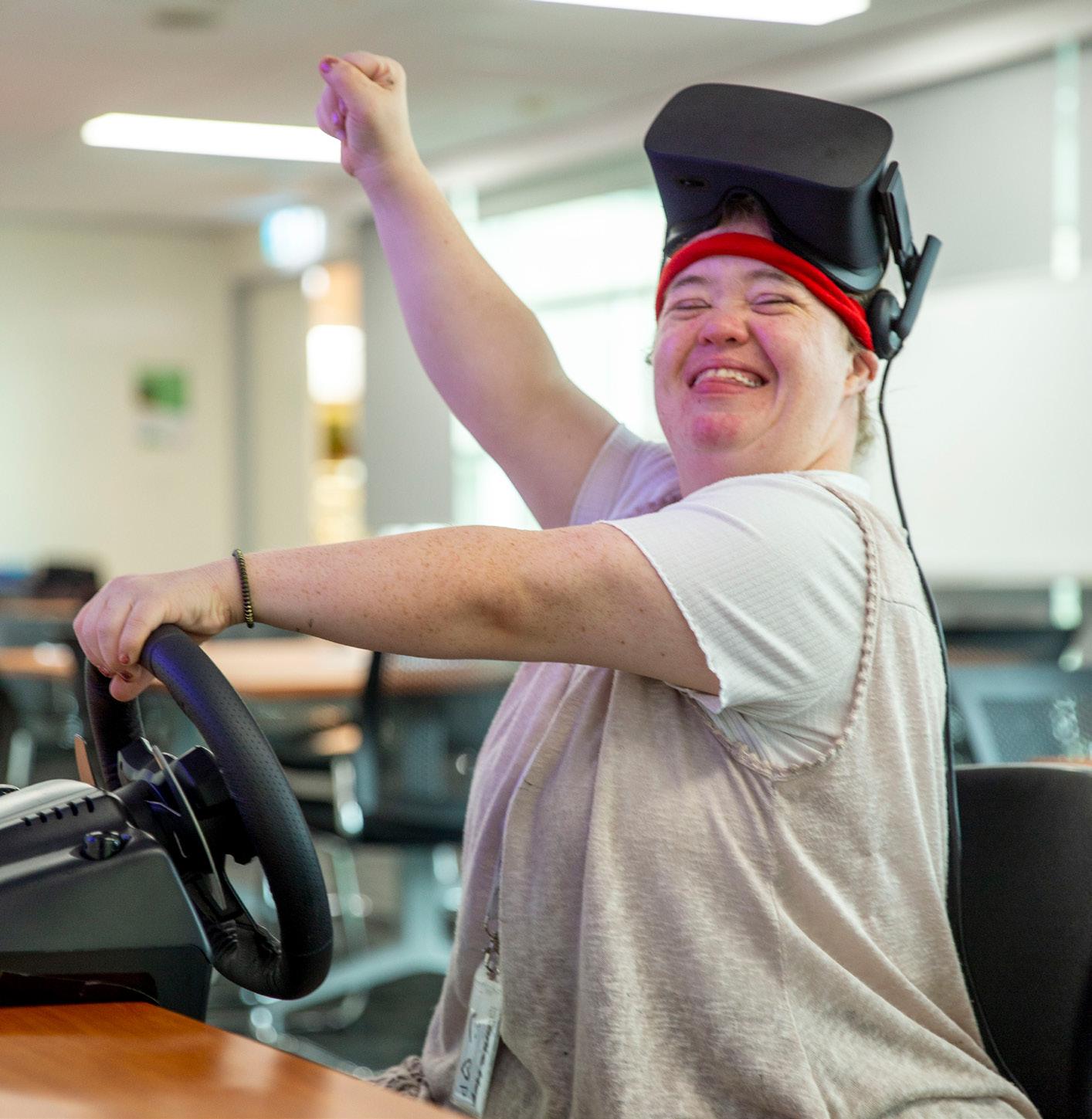
For most people, a virtual reality (VR) headset is a futuristic piece of tech that helps them feel more immersed in video games, but for a growing cohort of people with disability it’s a valuable step towards independence.
Endeavour Foundation VR learning program
Endeavour has worked with the Queensland University of Technology to develop some state-of-the-art learning programs. This virtual reality learning is rolling out to all Endeavour Foundation Learning and Lifestyle hubs and Social Enterprise sites, and it is seeing some incredible results.
While many virtual reality programs take place in a fantasy realm, the VR technology that Endeavour has developed couldn’t be more different. The programs and scenarios are as close to real-life as possible. In the programs people have the opportunity to learn real world skills like withdrawing money from an ATM, safely crossing the road and catching public transport. While they may sound like simple scenarios, once mastered they have the potential to unlock a new world of independence.
Trainee receptionist Jamie is already looking at how VR can improve her career prospects. “It’s so lifelike! I have my driver’s licence already, but I did the
driving simulation and when I put the goggles on, it was so real.”
It’s a safe learning environment
One of the main considerations is safety. If someone is trying a new skill, especially if that skill involves cars or other potentially dangerous situations, VR learning provides a no-risk platform to practice.
It’s similar to pilot training. In instances where it may not be safe for someone to go straight to the real thing, they can give it a go in a simulation first and practice until they are ready. This means that people can see the consequences of their actions without having to experience them. One of the best ways people learn is through their mistakes. VR learning lets people make those mistakes in the virtual world, thereby minimising risk.
It makes learning fun
If you asked the people why they like VR learning, almost everyone will answer with ‘because it’s fun’ which it is designed to be. It’s plain and simple - if you can make learning fun and engaging, people will want to do it.
The VR headset has revolutionised the way social enterprise employee Glen stays job ready.
“It’s like stepping into another world. In the document destruction program, you go into this room where you can see different stuff on the walls. It feels like you can reach out and touch it. It’s much easier to learn with VR,” Glen said.
Can I try virtual reality learning?
The best way to give it a go is to get in touch, call our team on: 1800 112 112 or visit endeavour.com.au to learn more.
Link to... Assistive Technology
April/May 2024 34
Driving with Jane Hopkins
‘Easy Load and Go Powerchair’
As any experienced powerchair user will tell you, it’s not much use having a portable folding powerchair to put in your car if you can’t lift it because it’s too heavy. Portable Mobility as the name suggests, might have a solution for you.
The Freedom Chair powerchair range comprises nine models, each designed to meet specific user needs.
All models fold compactly in a second or two making them ideal for travel. But the two optional split models are by far the most popular for users requiring easy lifting of the powerchair into the car. These are the DE08 Premium Lite and DE08L Premium Lite Sport, which have been purpose designed to quickly split into two lightweight segments, making the task of loading into the car that much easier.
All Freedom Chairs come standard with powerful motors, and suspension ensures a comfortable ride.
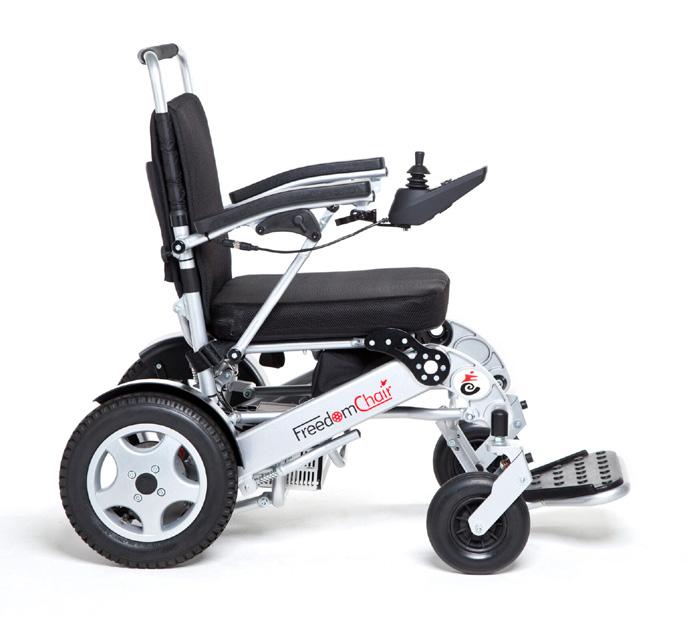
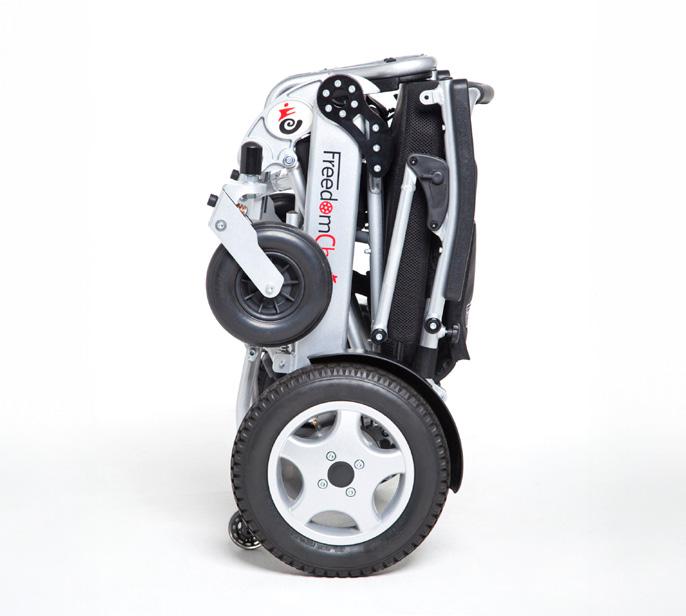


Extra lithium batteries can be added to run in parallel to extend the range for longer trips. There’s a choice of solid, or pneumatic wheels depending on the model you choose.
A host of accessories is available for Freedom Chairs. Like a carer attendant control so your powerchair can be operated by a carer from behind, headrest, armrest widening kit, travel bag, and much more.
Freedom Chair is TGA registered and complies with Australian standard: AS 3695.2:2019. Most Freedom Chair models are available for trial with your occupational therapist.
Contact Portable Mobility on: 1300 760 071 for details regarding your local dealer. (And mention Link).
Check out www.portablemobility.com.au for information and videos on the Freedom Chair range, and portable folding mobility scooters.

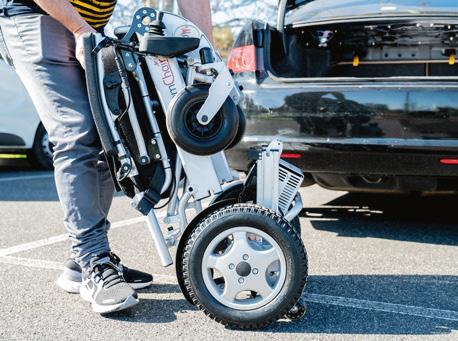
FREEDOM CHAIR Easy fold and go powered wheelchairs 1 2 Folds in a sec - Ideal for travel Compact and Lightweight Comfortable and Powerful Nine models in the range to suit user’s needs NDIS registered, TGA approved More info or arrange a trial: 1300 760 071 info@portablemobility.com.au portablemobility.com.au A11 Children’s Chair Mini Plus, Easy Split DE08L Premium Lite Sport, Titan A09 Bariatric. Splits in seconds! ONLY 14KG TO LIFT INTO THE CAR!
Link to... Mobility linkonline.com.au 35
Your personalised path to better living starts with Regency Care
Step into a world where your unique journey takes centre stage – welcome to Regency Care.

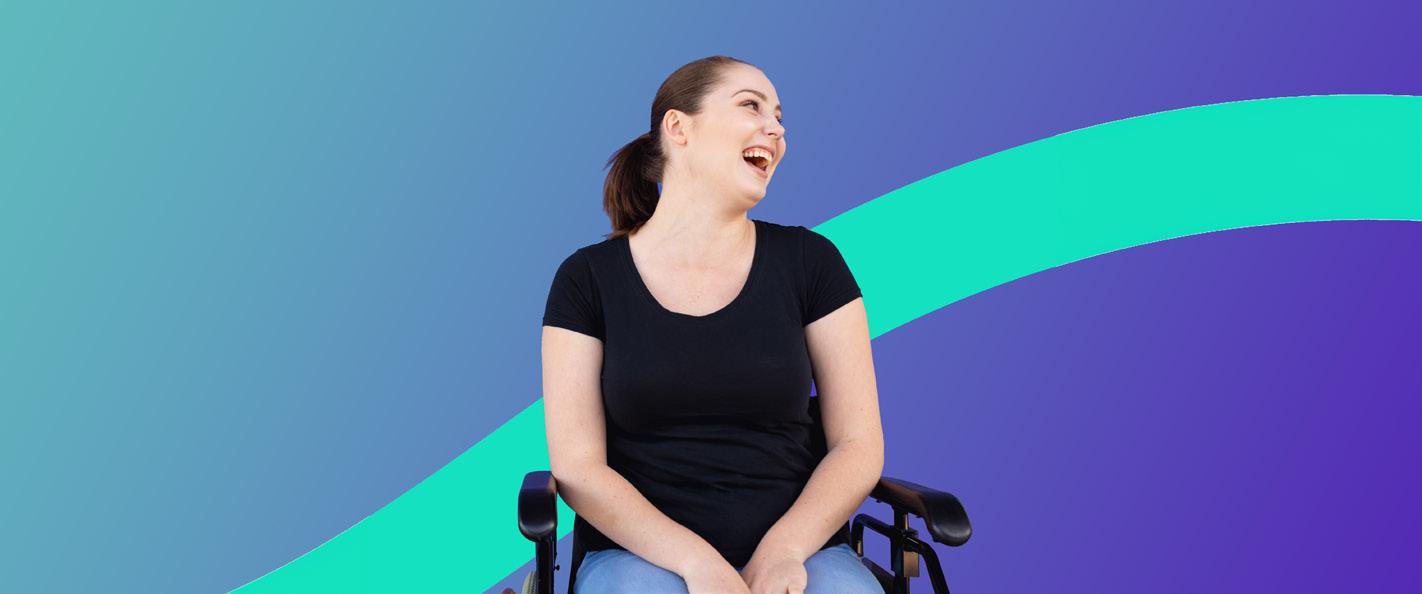
More than just a provider of assistive technology (AT) Regency Care are dedicated to creating tailored experiences that enhance your daily life. Explore a range of services and solutions where our commitment is not just about products but about crafting better days, exclusively for you.
Understanding your challengers is the backbone of the solutions we provide. The ‘Care for Life’ promise is a testament to our commitment to understanding your goals. Our experienced care consultants go beyond conventional solutions, delving deep into your needs to provide personalised support, and a few bells and whistles.
Experience the joy of efficiency as we deliver right on time, right first time. With constant updates, we ensure you are in control of your journey. Personalised assessments prioritise your comfort, well-being and durability.
Happiness is not an afterthought, it’s at the heart of our approach. Every day, we go the extra mile for your smile, finding innovative ways to brighten your days. If it’s as simple as fishing –it’s a fishing rod holder, if it’s as bold as going to the moon – we’ll fit the rocket! Regency Care is more than a service
provider – we’re a caring partner invested in your happiness.
Your unique journey deserves bespoke solutions. Regency Care offers an array of services, including custom power wheelchairs, manual wheelchairs, manual handling, daily living aids, and personalised bed and mattress packages. We understand that each detail matters right down to the colour of the headboards.
Where care is more
As part of our service offering, Regency Care also provides hire, service and tailored preventative maintenance programs. Our commitment to your well-being extends to offering comprehensive services, ensuring that your equipment remains in optimal condition. Whether you need assistance, maintenance, or a temporary solution, we’ve got you covered.
Regency Care isn’t just about providing equipment; we’re your companions on the journey to excellence in living. Every day, we are excited to find new ways to support you, going the extra mile for your smile. Our commitment to your satisfaction isn’t just a promise; it’s the benchmark by which we measure our success.
We are the trusty sidekick to occupational therapists (OTs) in their mission to enhance the lives of clients. Our commitment goes beyond delivering exceptional products, we understand the urgency of your work. From expediting rapid proposals to facilitating trials and efficiently processing rescripts, our dedicated support ensures seamless collaboration. Our user-friendly online portal allows OTs to track clients’ order progress while our innovative bed configurator simplifies the customisation process.
Embark on your journey to better living with Regency Care
As a certified NDIS provider, we align with the highest standards of care, amplifying the impact that OT’s have on users. And yes, our training days are not just about serious business; expect a touch of humour, amazing coffee, maybe even some happy socks, and global insights into the world of AT, as we strive to make every interaction a delightful and impactful experience.
At Regency Care, supporting OTs isn’t just a service, it’s a partnership dedicated to creating better days for all involved.
Embark on your journey to better living with Regency Care.
We are excited to partner with you on your transformative journey to a life of comfort, mobility, and joy, tailored exclusively for you.
Visit www.regencycare.com.au or one of our Care Hubs to explore our personalised approach, ‘Care for Life’ promise, and comprehensive services.
Link to... Assistive Technology
36 April/May 2024


Understanding delivered Collaboration delivered Care delivered

Our first priority in working with you is to fully understand the person behind the need. Taking the time to understand your goals, dreams and experiences, reveals your true needs. Only then can we apply our own experiences to help guide our clients in making informed decisions about their goals and the right equipment to achieve them.
Delivering better days means fitting the right equipment, right on time, right first time.

Free
care consultation and trial
We start with a few quick questions so we have the right models ready for you to try at your local Regency Experience Centre – or at home.
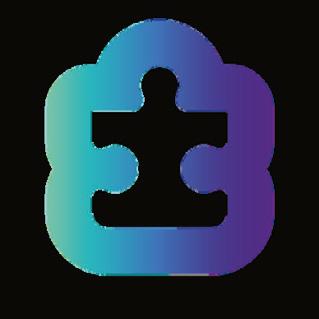
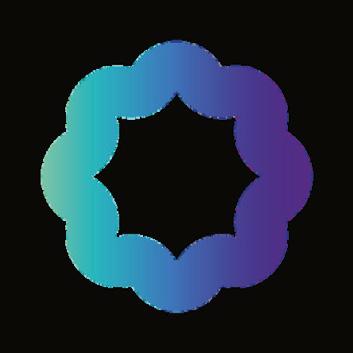
Custom-fit delivery day
Next, we develop an equipment scope, budget and funding report tailored to your goals. Then keep you updated as your order progresses.
We deliver your finished equipment, show you how to get the best out of it and make any adjustments so it fits right first time –whatever it takes.

Care to do bettersupport
Count on us to stay in touch via our preventative aftercare program. This extends your equipment’s life, minimises downtime and maximises value for money.
We’re going 1000 smiles an hour to make sure you don’t have to worry about your equipment. Equipment that fits better, feels better and works better.
CHECK OUT OUR RANGE NOW
RIGHT FIT
Custom-fit equipment prescription
www.regencycare.com.au Phone: 1300 622 122
VIP Access: the specialists in home modifications
Meet Scott Darmanin, a registered builder with a profound understanding of universal design and modification for individuals with disabilities and the elderly, contributing to an improved quality of life and increased independence.
As the driving force behind VIP Access, Scott collaborates closely with a diverse clientele, from private individuals and occupational therapists to government and insurance agencies.
Specialising in major and minor home modifications, VIP Access also excels in providing a comprehensive rental service, encompassing a variety of items such as a portable bathroom and ramps. Scott’s unique position allows him to understand the challenges faced by his clients, fostering innovative solutions to enhance their everyday lives.




It is QBCC licensed and a registered NDIS provider.
VIP Access range of services includes:
• Accessible Kitchen Design & Modifications
• Accessible Bathroom Design & Modifications
• Access Ramps & Thresholds
• Commercial Access Modifications
• Lift Installation
• CarePort – Portable Bathroom Units
• Therm-Oz - Thermostatic Showers
• Windsor Baths.
VIP Access is committed to being with you every step of the way, from initial design to installation, and after-sales support. If you are considering home modifications for yourself, the elderly or a person with disability, contact VIP Access. The company can discuss



your needs, help set priorities, answer any questions you have, and provide guidance on the best modifications for your requirements.
VIP Access operates in South-East Queensland, from the border at the Gold Coast, Scenic Rim, Ipswich, and to the south of the Brisbane River.
Call VIP Access on 07 3807 4309 or email enquiries@vipaccess.net.au to take the first step towards a safer, more accessible home.








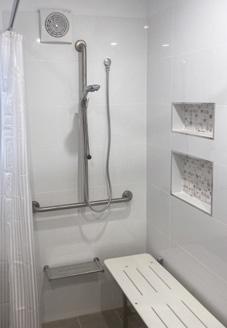








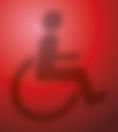



























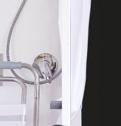











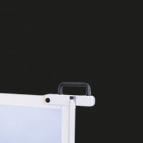


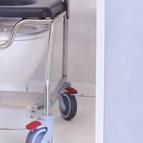













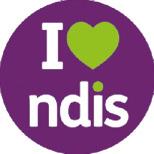





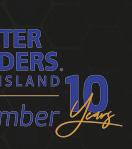



Link to... Assistive Technology 38 April/May 2024
The Baffin Trio: Redefining
for individuals with disabilities.
In a world prioritising efficiency and simplicity, the Baffin Trio emerges as a beacon of innovation. This remarkable device integrates seating, reclining and standing functionalities into a single unit, offering a comprehensive solution that minimises clutter and streamlines daily routines.
At the heart of its appeal lies the Baffin Trio’s ability to consolidate essential functionalities.
No longer do individuals need to navigate through a maze of equipment in their homes. Instead, they can rely on this three-in-one solution for their mobility needs. By replacing multiple pieces of equipment with one versatile device the Baffin Trio not only simplifies daily life but also reduces costs and maintenance.
Beyond its convenience, the Baffin Trio
embodies a holistic approach to mobility and rehabilitation. Comprising a balance seat for pelvic correction, a supportive backrest, strategically placed side supports and a plethora of additional accessories including footrests, kneepads and hip belts, this device sets a new standard for adaptive seating. Covered in breathable upholstery, it not only ensures optimal support but also prioritises hygiene with optional easy to remove, washable covers.
But the impact of the Baffin Trio extends far beyond its physical attributes. This marvel serves as a catalyst for transformation, not only for individuals with disabilities but also for physiotherapists and occupational therapists. Its versatility makes it an indispensable tool in the rehabilitation process, seamlessly integrating into various settings, from
the comfort of one’s home to the dynamic environment of a school or rehabilitation centre.
By facilitating engagement in educational activities, occupational therapy, and play, it nurtures cognitive functions and ignites the spark of movement.
Its innovative design, which seamlessly transitions between seating, reclining, and standing positions, promotes correct sitting and standing positions leading to a better quality of life.
As we strive for a more inclusive society, innovations like the Baffin Trio play a crucial role.
By simplifying accessibility solutions, it reminds us that every individual deserves the chance to thrive regardless of ability.
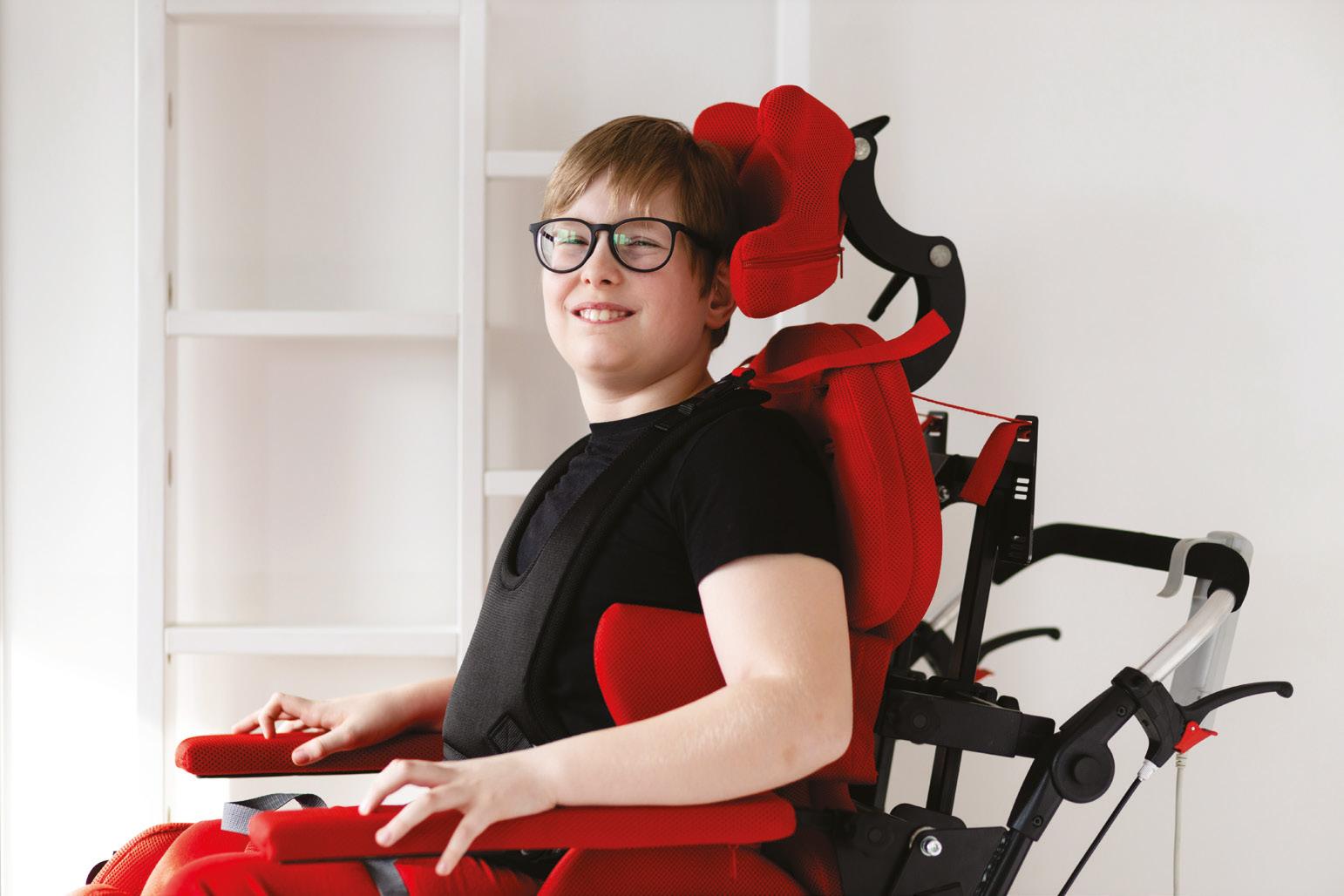
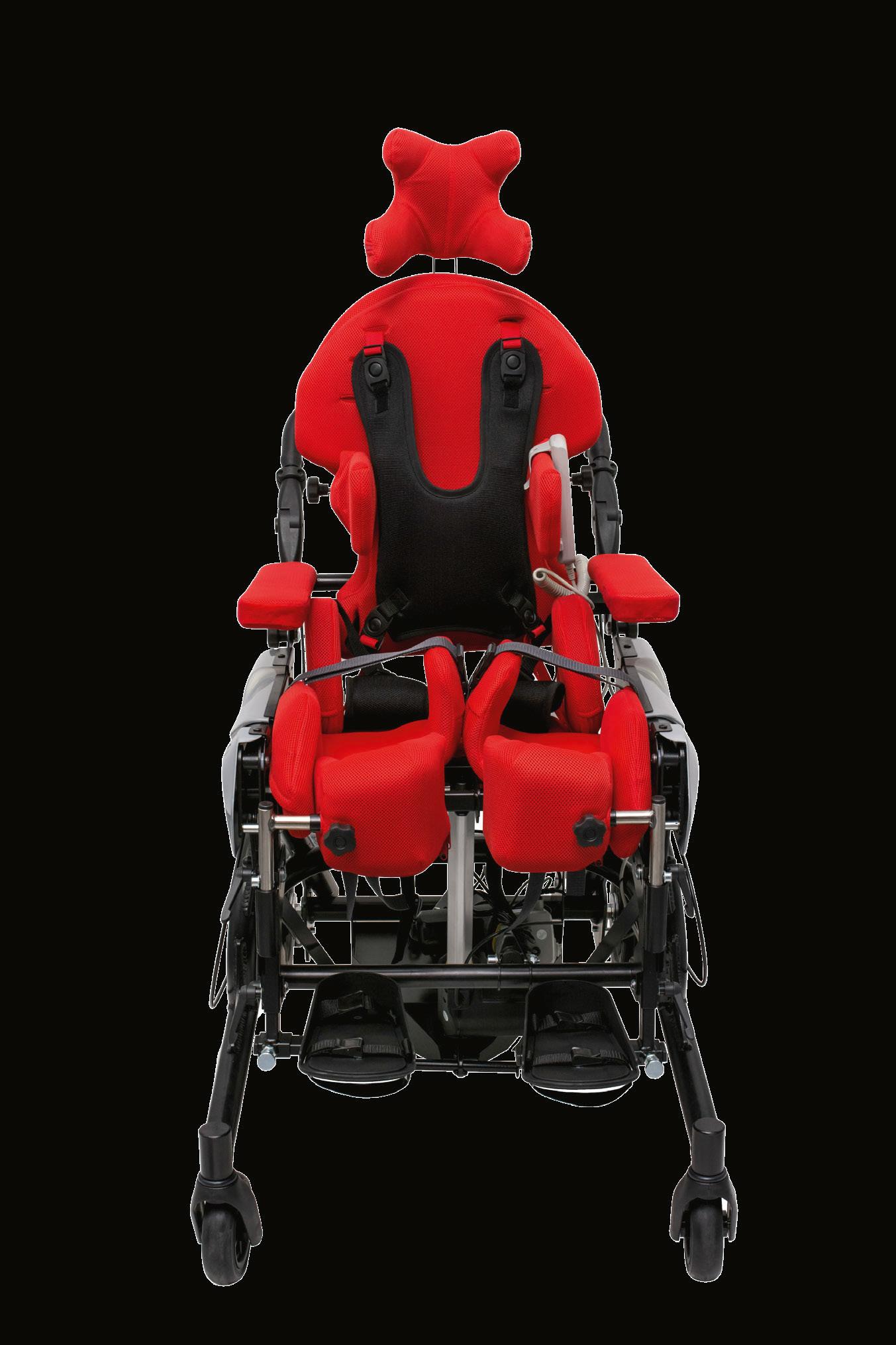
Helping you live life, wherever your journey leads. Rehab equipment, tailored for your life. Book an appointment with us. Call: 03 5441 8966 Email: support@activerehab.net.au Web: www.activerehab.net.au
Link to... Assistive Technology linkonline.com.au 39
convenience
Innovative technology with style
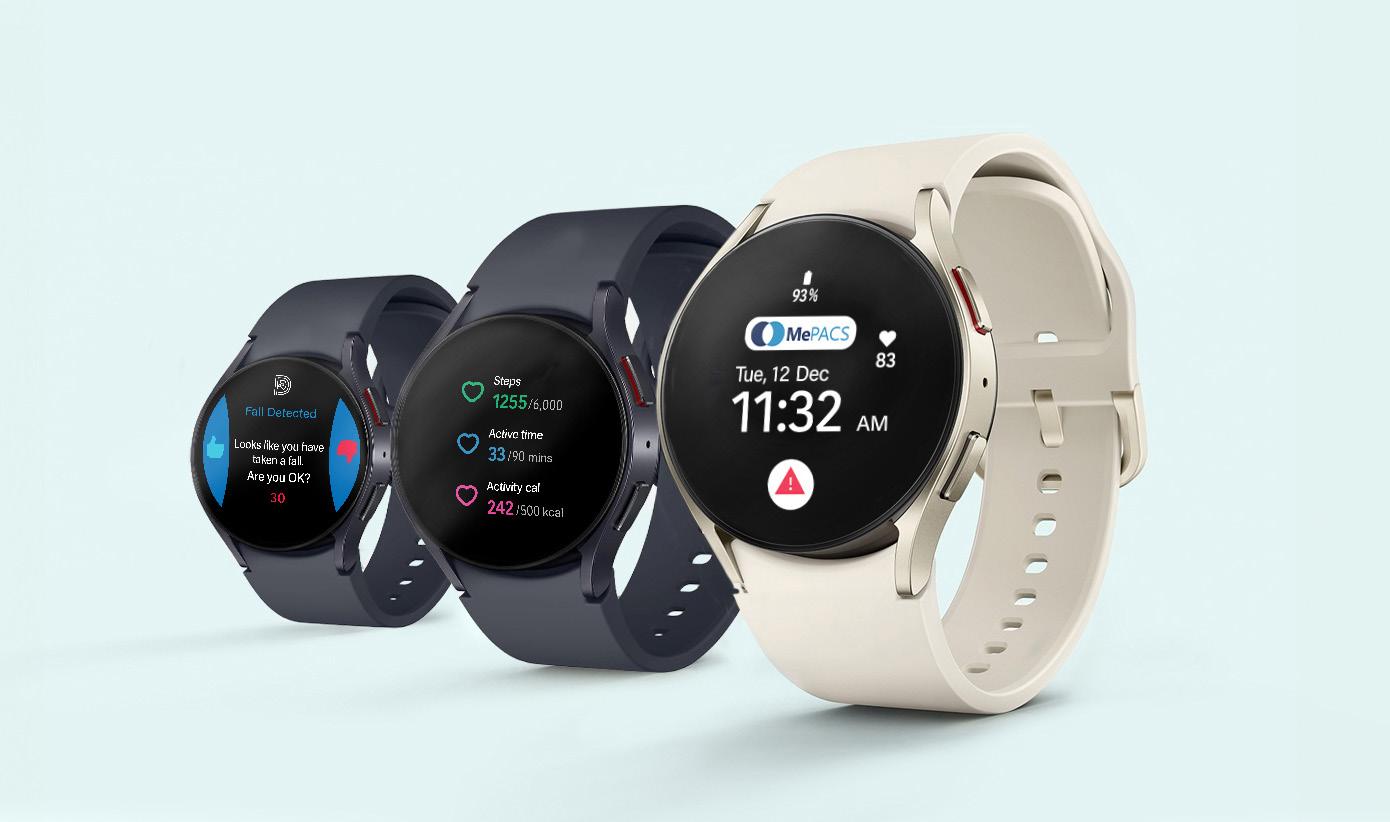
Assistive Technology (AT) is more than just gadgets; it’s about empowering people to accomplish tasks and achieve a greater level of independence safely. AT encompasses devices and systems designed to enhance safety and ease in daily activities, promoting greater autonomy and wellbeing.
In 2024, safety doesn’t have to be boring, and MePACS want to ensure that you stay protected in the most subtle, yet stylish way possible.
Introducing the MePACS Solo Connect, an innovative monitored personal alarm seamlessly integrated into the Samsung Galaxy Watch6. Redefining safety with its unique features and stylish design, staying safe has never been so effortless.
“I love walking around the streets and laneways by myself in the evenings, but there’s those small risks you don’t often think about that could lead to a medical emergency. If I trip or hurt myself and I’m in no state to find out where I am, then having the GPS location feature on the watch is truly essential,” said Julie, who never leaves the house without her Solo Watch.
The Solo Connect has GPS location so that in an emergency MePACS will know your whereabouts. This provides a reassuring sense of security that help can be sent directly to where it’s needed.
The ultimate safety device to support your needs and goals
MePACS Solo Connect can offer a comprehensive solution for both emergency situations and ongoing health management. The combination of rapid response technology, falls detection, GPS location and two-way voice communication, can provide peace of mind to users and their loved ones, especially those who may be at risk of medical emergencies or falls.
Stay on top of your health on a daily basis
With all these metrics readily available, users can make more informed decisions about their lifestyle, exercise routines and sleep habits to improve their overall health and wellbeing.
• Real-time ECG tracking can provide insights into heart health
• Fitness tracking allows users to
monitor their physical activity levels and set goals
• Body composition analysis helps in tracking changes in muscle mass and fat percentage
• Sleep tracking provides information on sleep quality and patterns.
This personal alarm is cleverly integrated into a smartwatch, so it remains discreet and inconspicuous.
“The Solo watch is like another piece of my jewellery because it’s stylish and comfortable. I know it’s a personal alarm, but no one else would unless I told them,” Julie said.
She not only appreciates the Solo watch as a stylish accessory but also praises the service and peace of mind it gives her to continue to do the things she loves.
“I think the response team is the best thing about MePACS, because that gives you a sense of security to know somebody is going to respond very quickly and you don’t have to explain yourself too much. They have my medical details on file, so I know they can tell emergency services on my behalf and that’s very reassuring,” Julie said.
MePACS personal alarms offer a person-centred approach to safety and assistance. It’s fully monitored 24/7 service ensures a rapid response to calls for help, providing reassurance to clients and their loved ones.
NDIS funding to prioritise your personal safety
As an approved NDIS provider, MePACS personal alarms and accessories can be accessed through the Capital Support and Assistive Technology category of your NDIS Plan.
To find out how MePACS personal alarms can support you or your loved one on the journey towards greater independence and peace of mind, visit mepacs.com.au or call: 1800 685 329.
Link to... Assistive Technology April/May 2024 40

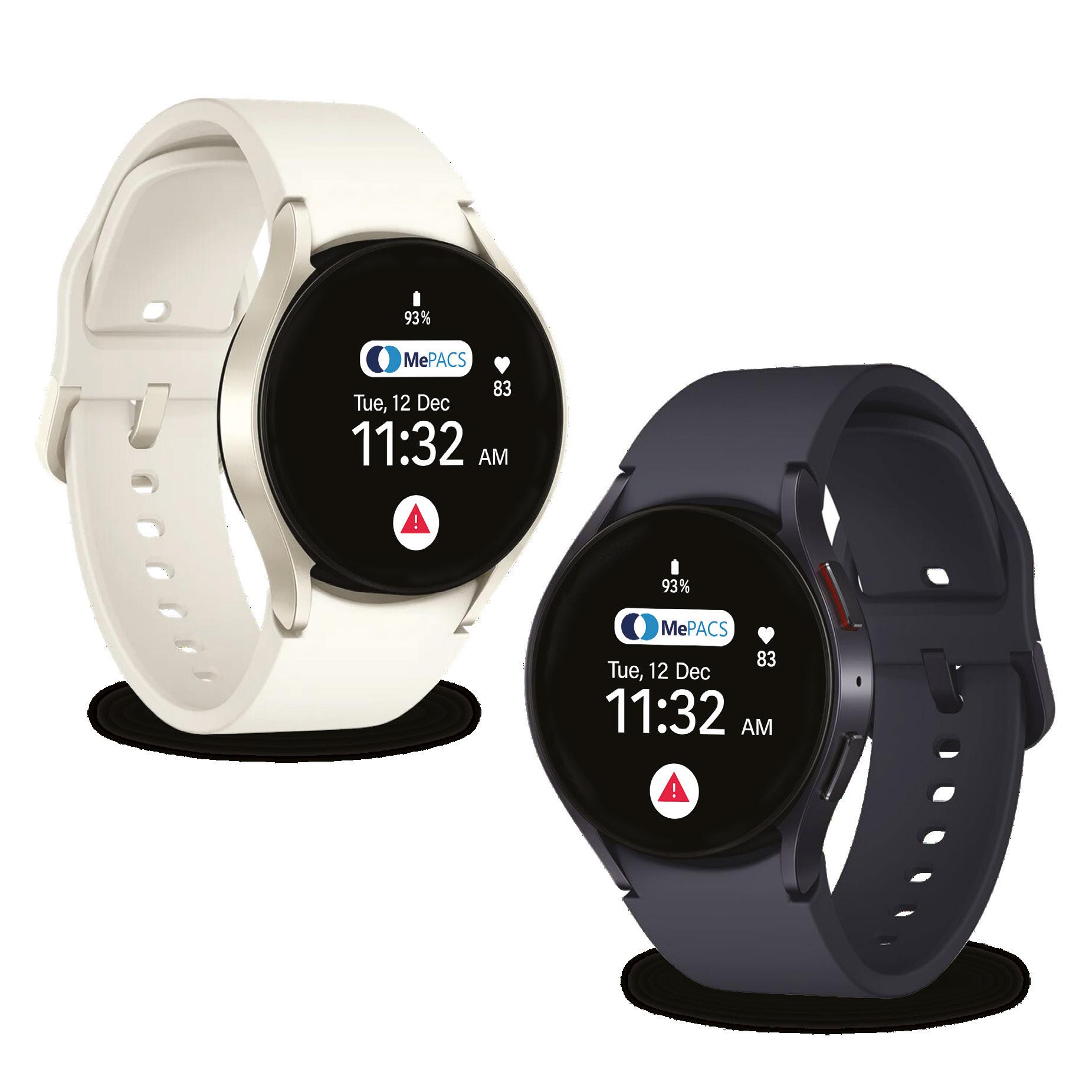

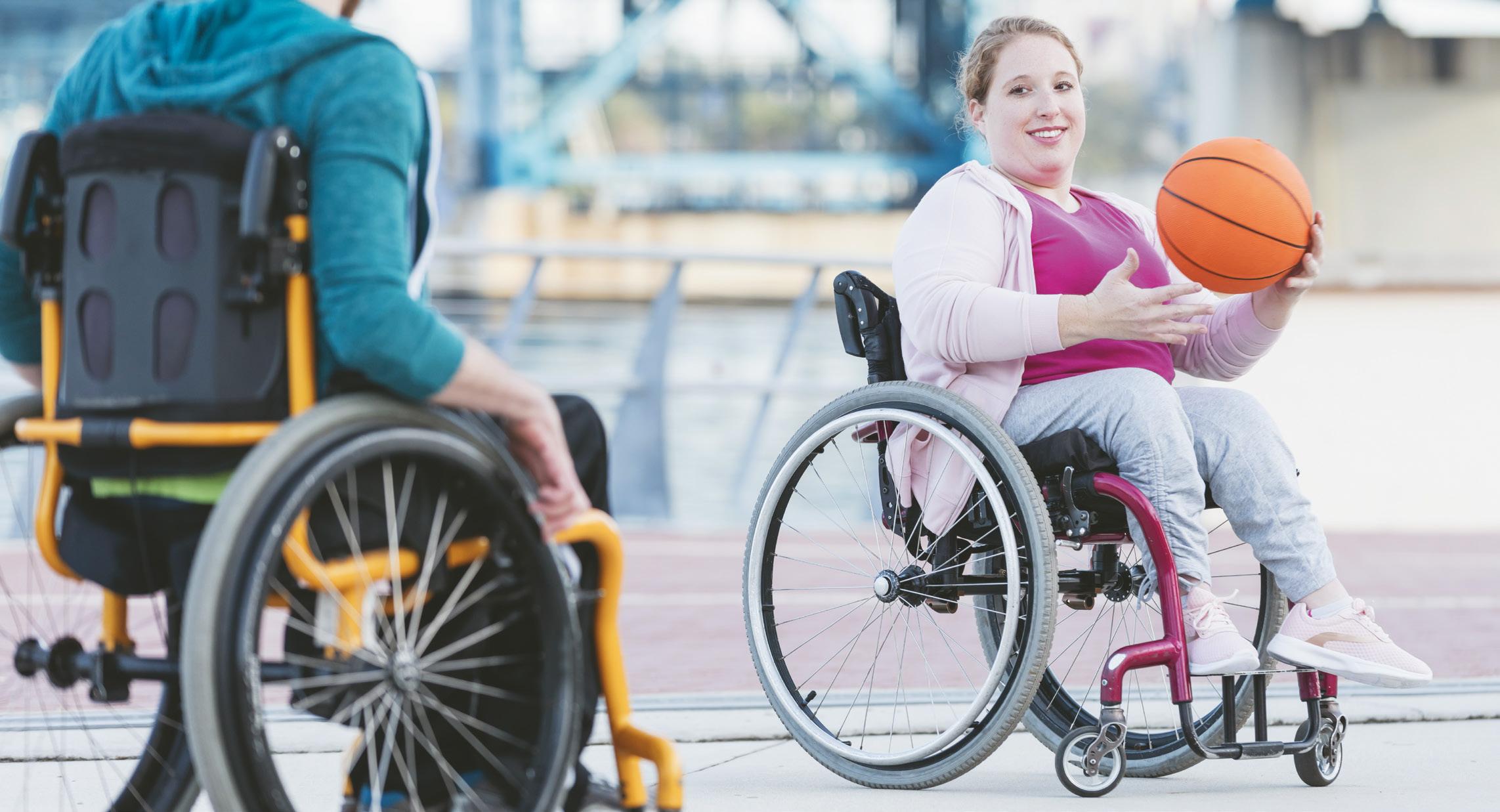
ATSA is bringing Australia’s foremost exhibition for assistive technology, rehabilitation and aged care equipment back to Sydney and Brisbane this May. Organised by Media Partners events@atsa.org.au www.atsaindependentlivingexpo.com.au FREE ENTRY
Opening Hours: Wednesday 8.30am – 4.30pm | Thursday 8.30am – 3.00pm
120+ exhibitors with products and services designed to get more out of life
FREE seminar program
FREE coffee when you pre-register
Catering available on site
Collect Continuing Professional Development (CPD) Points SYDNEY
MAY 2024
SHOWGROUND Sydney Olympic Park, Halls 5 & 6 BRISBANE
MAY 2024
CONVENTION & EXHIBITION CENTRE South Bank, Brisbane
•
•
•
•
•
•
22-23
SYDNEY
29-30
BRISBANE
MAY
DISCOVER EXCELLENCE IN EDUCATION WITH THE SEMINAR PROGRAM OFFERED THIS MAY
ATSA Independent Living Expo has long been respected for offering one of the most comprehensive collections of topics and presentations in Australia. This May, we’re proud to present over 60 hours of incredible education—all at absolutely no cost! The calibre of our seminars is so exceptional that you might have paid a hefty price for similar education elsewhere. But ATSA Independent Living Expos’ makes knowledge accessible to all.
Pre-register now and not only will you gain access to this unparalleled educational experience, but you’ll also receive a complimentary coffee and you will skip the queues!
Mark your calendars, spread the word, and join us this May to experience an ATSA Independent Living Expo firsthand. It’s an opportunity you won’t want to miss.
First time presenting at ATSA
Welcome to the ATSA stage...



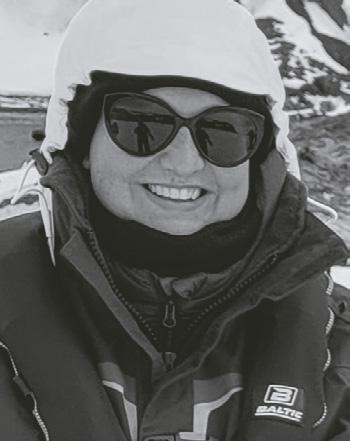



Dr
Head of Research and DevelopmentWeWALK, Honorary Associate - Imperial College London




BRISBANE 2024
SYDNEY 2024 22-23
29-30
MAY
Cameron van den Dungen Founder & CEO – Sleeptite
Jean Marc Feghali
Carol Taylor Partner, Head of Design & Production, Christina Stephens
Joshna Daya Founder and Director, Your Business Momentum
Filipe Correia
Latin America and Europe, Business Development Manager, Stealth Products
Marcus Thompson Founder / Inventor Whanauka Limited
Chris Hawkins
VP of Sales, Blake Medical
Jessie Sadler CEO & Founder, Christina Stephens
Kirsty Blades CEO, Palliative Care NSW
Greg Gunther Founder and Director, Your Business Momentum
Diana King Deputy Program Manager, Securing Antarctica’s Environmental Future (SAEF), University of Wollongong
SYDNEY BRISBANE SYDNEY BRISBANE
SYDNEY BRISBANE
BRISBANE
SYDNEY BRISBANE BRISBANE
INTERNATIONAL INTERNATIONAL
SYDNEY BRISBANE
SYDNEY BRISBANE
INTERNATIONAL INTERNATIONAL
SYDNEY SYDNEY BRISBANE
29-30 MAY
ONLY HELD EVERY TWO YEARS, now is the time to register
Learn from industry experts on a wide variety of topics. Discover the keys to success in navigating client expectations and functional demands, whether through power wheelchairs or advanced seating solutions. Learn about research, including the impact of regular tricycle riding on children with CP and the benefits of standing for overall health. Our sessions cover a diverse range of topics, from paediatric seating to transportation considerations, from mental health challenges to the future of AI in prescription.
With expert panels, practical workshops, and invaluable networking opportunities, our seminar program promises to inspire and empower. Don’t miss out on this chance to expand your knowledge and drive positive outcomes for your clients. Register now!

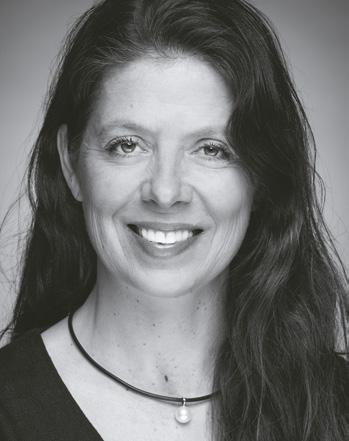
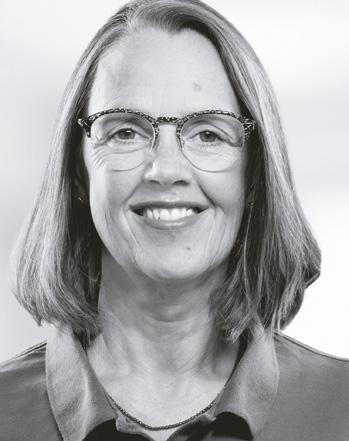

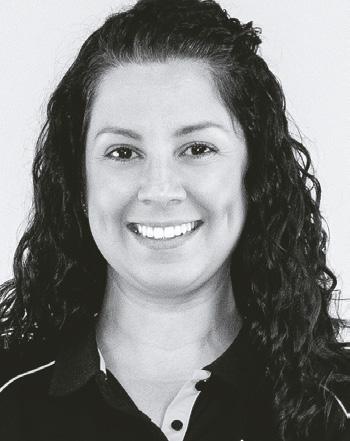
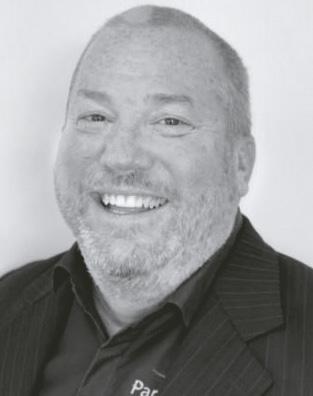

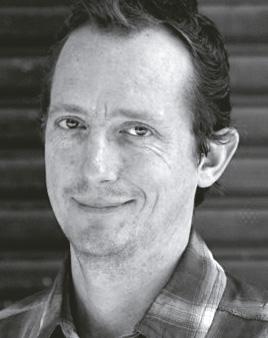




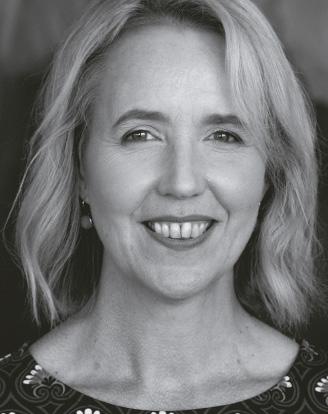

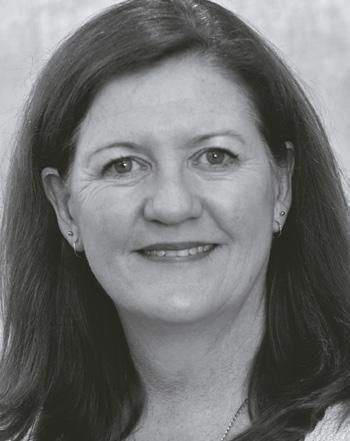

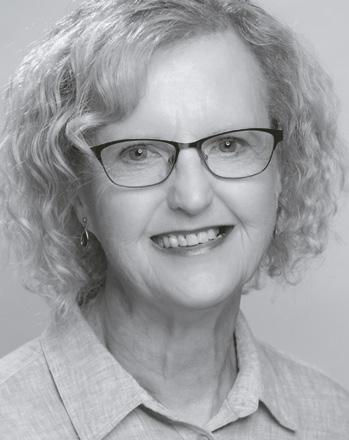

BRISBANE 2024
SYDNEY 2024
22-23 MAY
Helen Lindner MACA
Jamie Cockle Medifab
Jacinta Maurin Sunrise Medical
Joana Santiago Medifab
Jacelyn Goh Linds Rehabilitation
Jane Bringolf Chair, Centre for Universal Design Australia
David Fagan Paragon Mobility
Edward Milner Medifab
Edward Levy Ottobock
Emma Friesen Paragon Mobility
Dr. Peter Sweatman Caroma Industries
Elissa Coates Novis Healthcare
Dr Adeline Chua Caroma Industries
Andrew Lopez Quantum Rehab
Andrea Espei Schuchmann Rehab
Craig Slattery Aqua Access
Amy Bjornson Sunrise Medical
Bianca Brady APEX Mobility
SYDNEY SYDNEY BRISBANE
SYDNEY
SYDNEY SYDNEY BRISBANE
SYDNEY BRISBANE
SYDNEY BRISBANE
SYDNEY
SYDNEY
SYDNEY BRISBANE
SYDNEY
SYDNEY BRISBANE
SYDNEY BRISBANE
SYDNEY BRISBANE
SYDNEY
SYDNEY BRISBANE SYDNEY BRISBANE BRISBANE
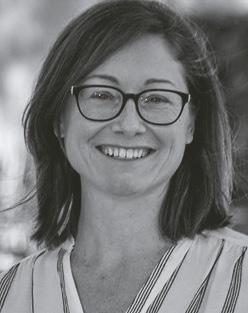
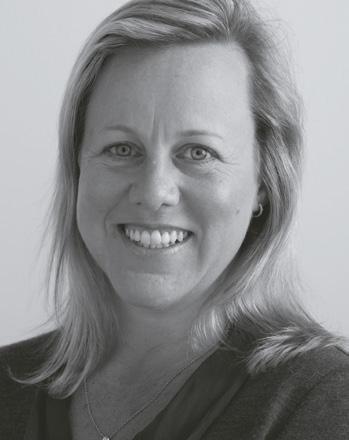

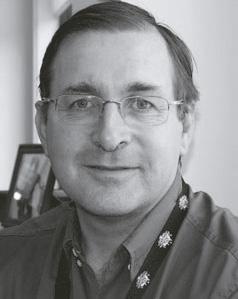


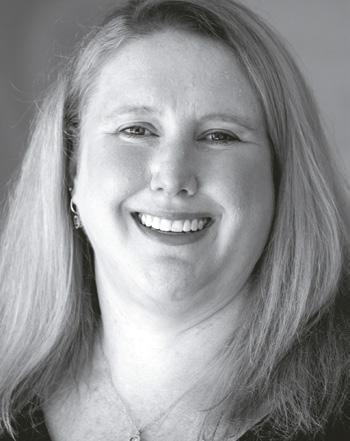
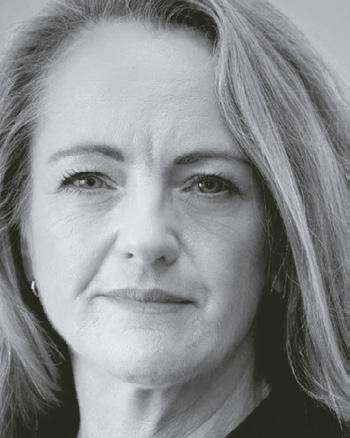

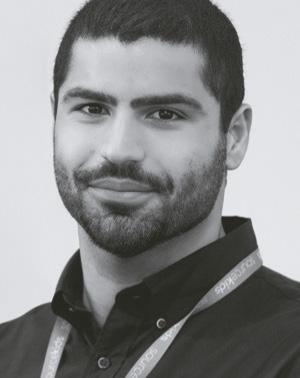

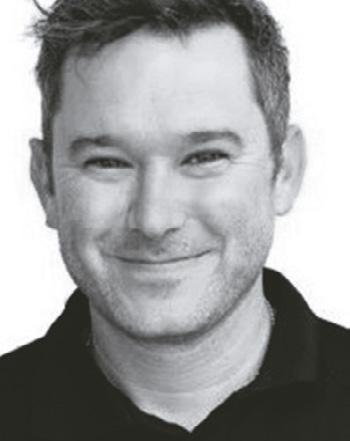

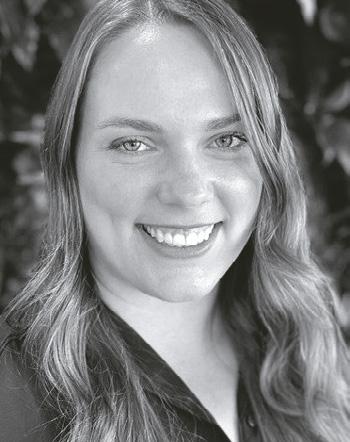


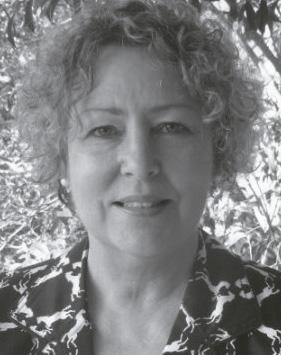
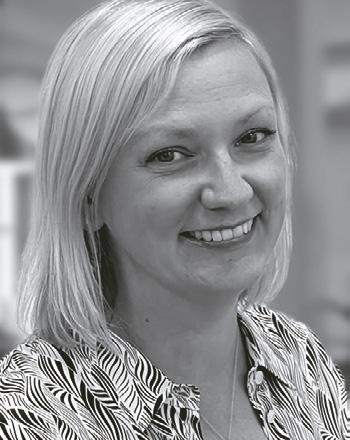


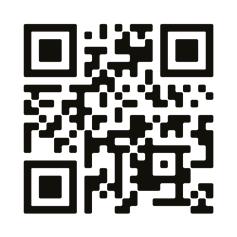
BRISBANE 2024 29-30 MAY SYDNEY 2024 22-23 MAY REGISTER NOW FOR FREE www.expo.atsa.org.au
Romi Russek GTK
Sarah Uncle ILS
Sarah Collison Verve OT
Tilly Brook Permobil Asia-Pacific
Roseanna Tegel Permobil Asia-Pacific
Susan Teerds Kidsafe Qld and Disability Safe Seating Solutions
Dr Melanie Hoyle ARATA
Omid Akbarian Mobility Engineering
Mike O’Brien Ottobock
Robert Norman RTD
Mellinda Fitzgerald APEX Mobility
Rika Millen Permobil Asia-Pacific
Kate Pain GTK
Dr Lloyd Walker NDIS
Liza Maclean Remarkable/ Cerebral Palsy Alliance
Loren Apokourastos Speech Pathologist
A/Prof Libby Callawa ARATA
Lois Brown ILS
Tracee-lee Maginity Permobil APAC
Tracy Nowicki Clinical Nurse Specialist
SYDNEY BRISBANE
SYDNEY BRISBANE
SYDNEY
SYDNEY SYDNEY BRISBANE
SYDNEY BRISBANE
SYDNEY BRISBANE
SYDNEY BRISBANE
SYDNEY
SYDNEY BRISBANE SYDNEY BRISBANE
SYDNEY BRISBANE
SYDNEY BRISBANE SYDNEY BRISBANE
SYDNEY BRISBANE
SYDNEY BRISBANE
SYDNEY BRISBANE
SYDNEY BRISBANE
SYDNEY SYDNEY BRISBANE
Pride Mobility and Quantum Rehab - at the 2024 ATSA Independent Living Expos
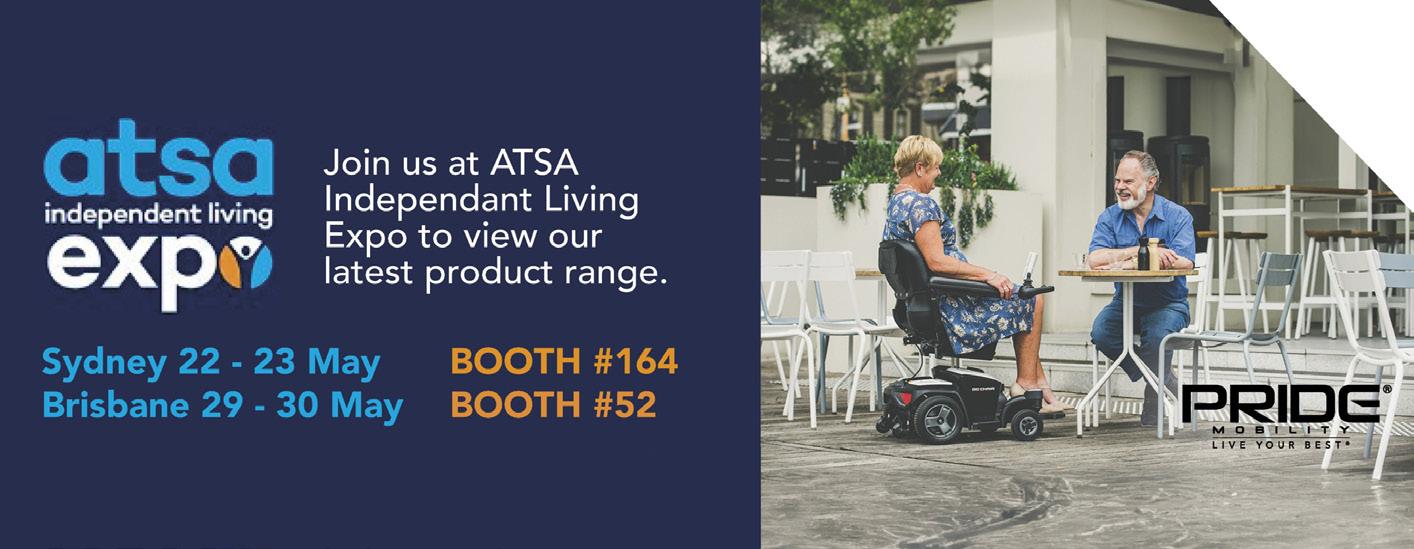
With the ATSA Independent Living Expo just around the corner, Pride Mobility and Quantum Rehab are excited to share some of their latest innovations at this year’s event.
In 2023, Pride unveiled a multitude of fresh products, all set to be showcased at ATSA.
• The Celebrity MFP offers opportunities to unwind, whether it’s a day out in the sun with the family or visiting friends around the block. With a water-resistant digital display screen and an enhanced LED lighting package, it’s perfect for all-day travel. Full suspension and pillow top seating allow you to breeze over asphalt, concrete, gravel, and any hard-packed surface in ultimate comfort.
• The Baja Bandit is the outdoor mobility scooter you’ve been waiting for. Venture with confidence knowing you’re equipped with the perfect blend of power and agility for all your journeys. This compact 10 km/h scooter is designed for various terrains thanks to its superior suspension and innovative braking system. Powered by a lightweight lithium battery for extended range,
the Baja Bandit is your ticket to adventurous off-road exploration.
• The advanced comfort and versatility of the Jazzy EVO 613 Li provides the freedom to navigate small spaces and tight corners. Its narrow base width of only 56cm makes it an ideal powerchair for moving through your home. It uses a lightweight lithium-ion battery that provides longer life and 25 per cent faster charging.
• Quantum Rehab introduced the all-new TRU-Balance 4 Power Positioning Systems with anterior tilt. TRU-Balance 4 Power Positioning provides a choice of 0 – 10 degrees, or 0 – 30 degrees of power anterior tilt. This provides optimal access and consumers may find it easier to perform activities of daily living, such as accessing sinks, grooming, reaching items in cupboards, doing laundry and more.
• The R-TRAK revolutionizes the rearwheel drive power chair experience. With independent suspension on all four wheels and a compact base, it offers a more seamless and agile driving experience. The R-TRAK comes with a range of standard features that enhance
both functionality and aesthetics. These include fender lights, a USB charger, and drive wheel colour accents, adding a touch of style and convenience. Additionally, the product offers the option of a 10“ safe seat elevation, enabling users to drive at speeds of up to 5.6 km/h while elevated.
• The latest addition to Pride’s Go Go series is the Go Go®e. Renowned for its simplicity, this entry level mobility scooter ensures you reach your destination with ease. Its streamlined steering controls ensure user-friendly operation. With a weight capacity of 120kg and a turning radius of 125cm, the Go Go®e boasts a range of up to 14.4km per charge.
As Pride Mobility enters its 25th year in Australia their vision to bring innovation, market-leading products combined with being the friendliest company in the industry has never been stronger. “In 2024 Pride Australia is gearing up for significant developments, including the introduction of several new products and the acquisition of larger facilities across multiple states,” sales and marketing director, Matthew Herbert said.
To learn more about the latest product offerings from Pride Mobility and Quantum Rehab, visit their ATSA Independent Living Expo stand in Sydney (#164) and Brisbane (#52). Their helpful and experienced team will be happy to answer any questions you have.
To view the full range of Pride Mobility products visit www.pridemobility.com.au or view on the PQ365 app, which is available to download on the App Store or Google Play.
Link to... ATSA April/May 2024 46

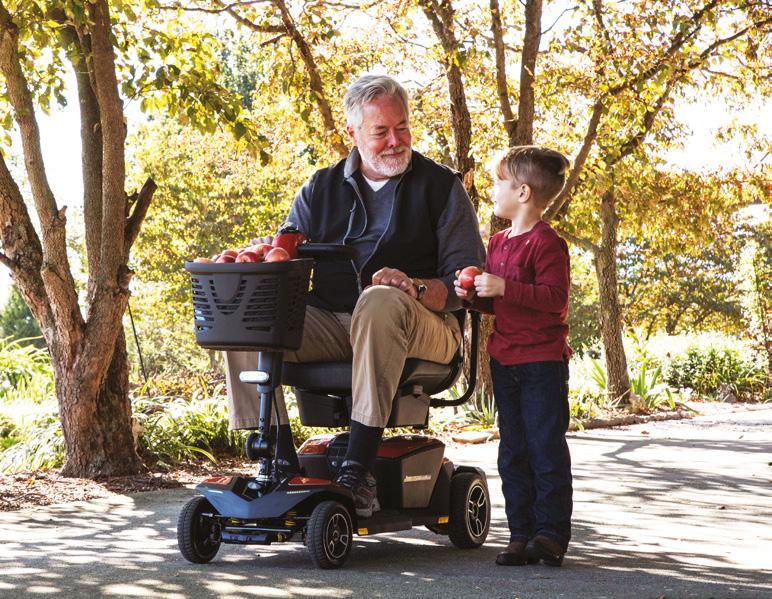

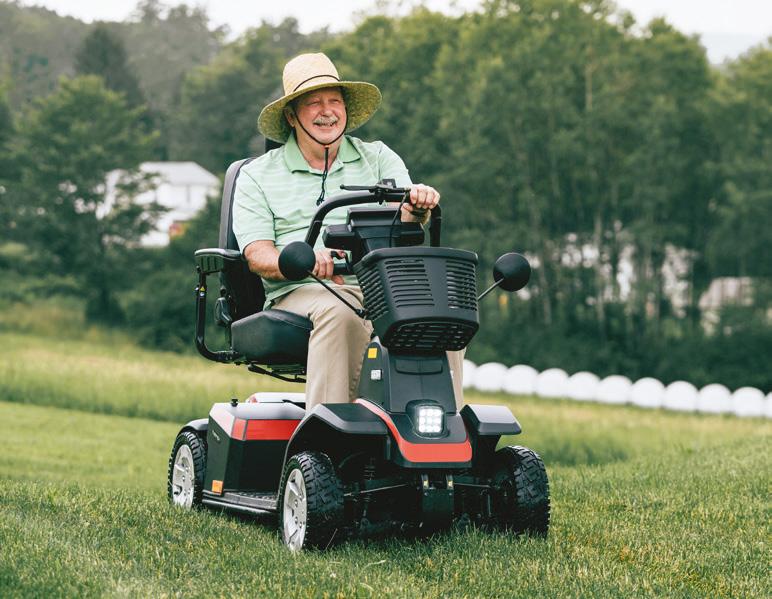
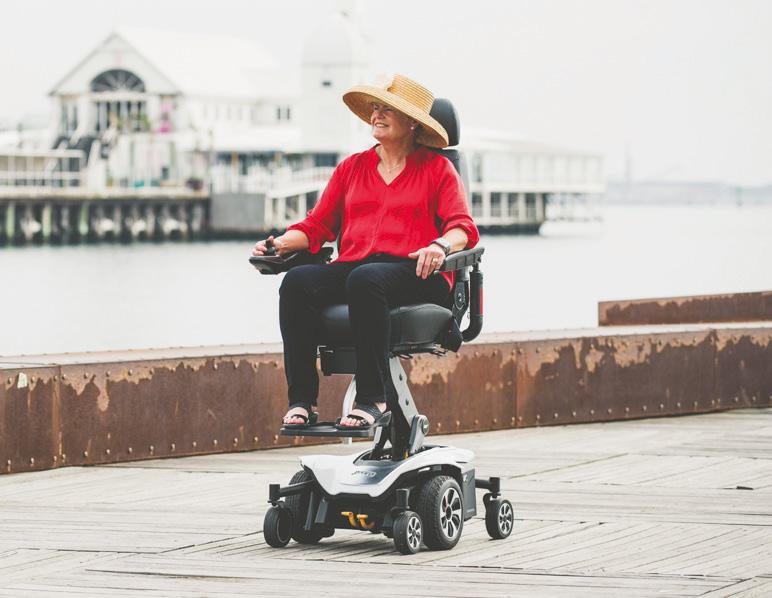
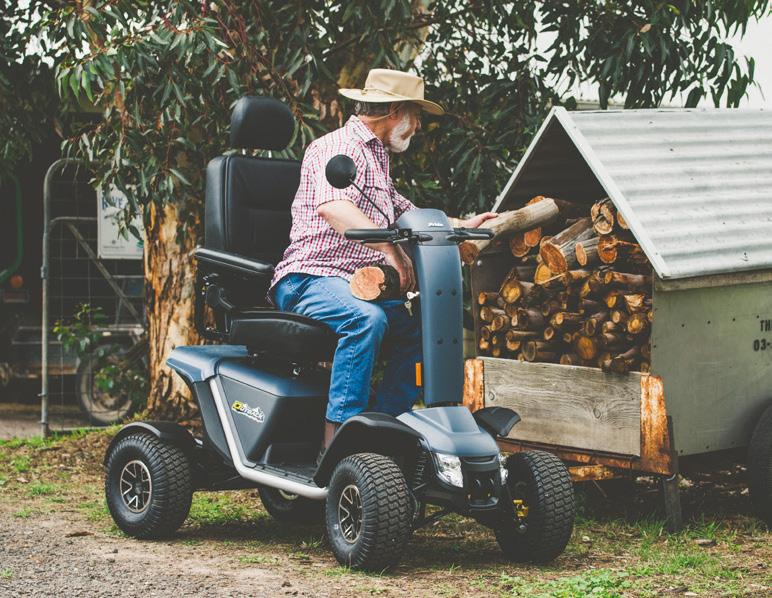
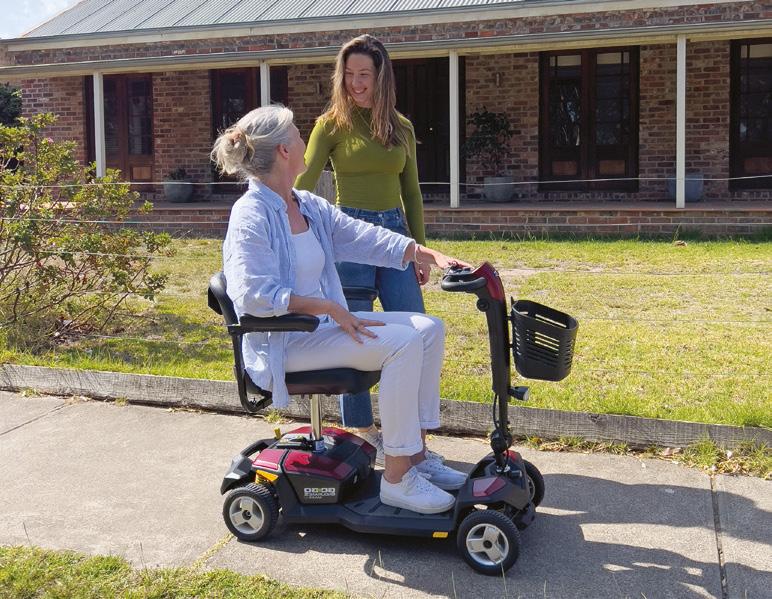
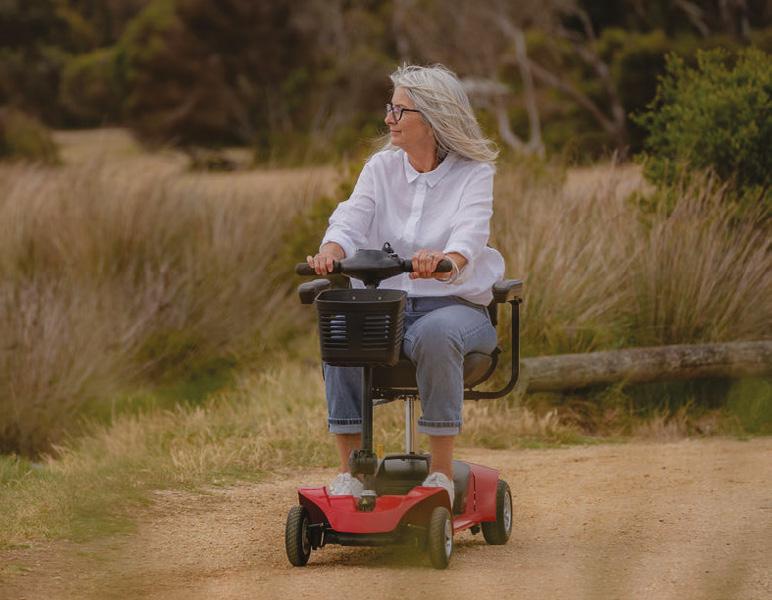
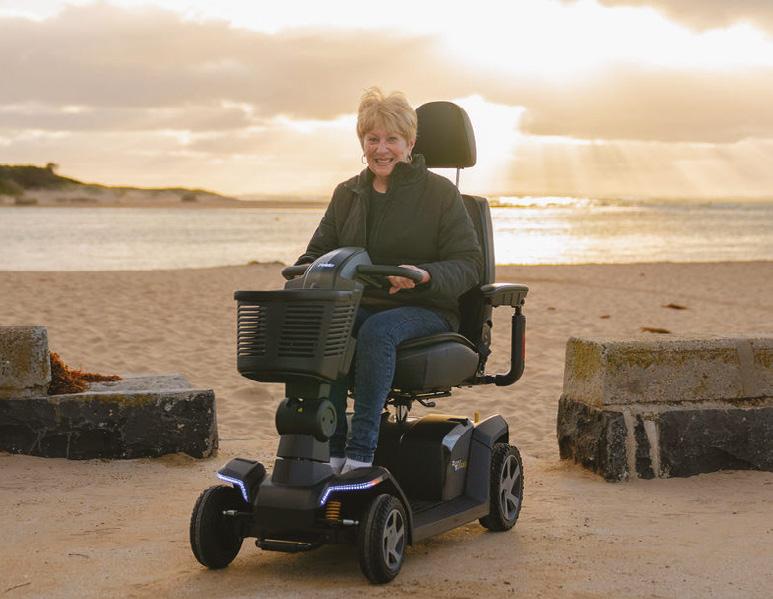

Linds – Designed for people with autism
In a world where independence and mobility should know no bounds, Linds Rehabilitation is at the forefront of innovation providing cutting-edge wheelchairs that go beyond mere mobility aids—they are the key to unlocking newfound freedom for individuals with autism and other diverse neurological needs.
At Linds Rehabilitation, we understand that every individual is unique. Our wheelchairs are not just a means of transport; they are a carefully crafted solution designed to meet the diverse needs of those with autism. The adaptable design ensures comfort with adjustable seating, intuitive controls, and customisable features that cater to the specific requirements of each user.
To address the sensory considerations crucial for individuals with autism, our wheelchairs come equipped with advanced technology. We’ve incorporated sensory-friendly elements that create a calm and soothing environment, promoting sensory regulation and reducing anxiety. We believe that mobility should not be a source of stress but an avenue for comfort and empowerment.
Navigating through different environments should be effortless. Our wheelchairs are engineered for exceptional manouvrability allowing users to move seamlessly whether indoors or outdoors. We recognise the importance of breaking down physical barriers, enabling individuals with autism to explore the world around them with confidence.
The debate surrounding the use of wheelchairs for individuals with severe autism is multifaceted. Some argue that the inherent dangers make it unsuitable for certain individuals, as they may lose control and pose risks to themselves and others. Conversely, proponents argue that wheelchairs
can offer enhanced mobility for their loved ones. The truth lies in the unique circumstances of each individual with severe autism.
The ability of a person with severe autism to use a wheelchair effectively is contingent upon various factors, including specific triggers that may lead to epileptic episodes, compromising their control. Close supervision is crucial, particularly in public settings, to mitigate the risk of accidents. Concerns about potential harm, either to the individual or others, contribute to the scepticism regarding the use of wheelchairs for those with severe autism.
Supervision plays a pivotal role
Whether at home or in public, constant oversight is essential, reducing the likelihood of incidents. Supervisors, often caretakers or parents, gain insight into the individual’s specific triggers and employ strategies to create a safer environment. This proactive approach includes identifying and addressing potential triggers, such as specific sounds or events, to prevent adverse reactions.
Parents who attest to their children’s capability to use wheelchairs acknowledge the episodic nature of potential challenges. Despite intermittent difficulties, these parents find that daily tasks can be accomplished effectively when the episodes are not triggered. Nevertheless, continuous analysis of the environment and situational factors remains crucial to prevent incidents.
Linds are known for its customisation so the end user can live their best independent life. Tray tables and wheelchair additions play a pivotal role in enhancing the comfort and functionality of mobility aids for individuals with sensory issues.
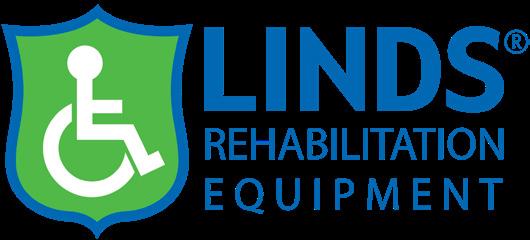
For those who experience sensory challenges, a stable and easily accessible surface, such as a tray table, can provide a sense of security and control. These tables offer a dedicated space for activities, meals, or personal items, allowing users to organise their surroundings and engage in various tasks while remaining seated in their wheelchairs. The presence of a tray table can act as a familiar and comforting anchor, particularly for individuals who may find it challenging to navigate dynamic environments.
Additionally, specialised wheelchair additions, such as sensory-friendly features like adjustable armrests, cushioning, and customisable seating options, contribute to a more tailored and accommodating experience. These enhancements cater to the unique sensory needs of individuals, ensuring that their wheelchair becomes a supportive and adaptable extension of their personal space.
By addressing sensory concerns through thoughtful design and functionality, tray tables and wheelchair additions empower individuals with sensory issues to navigate their daily lives with increased comfort and confidence, fostering a greater sense of independence and well-being.
Safety measures, including close supervision, should always be in place to ensure the well-being of both the individual and those around them. Even when there is confidence in the individual’s control, ongoing supervision remains a necessary precaution for the collective safety of everyone involved.
Link to... Assistive Technology 48 April/May 2024
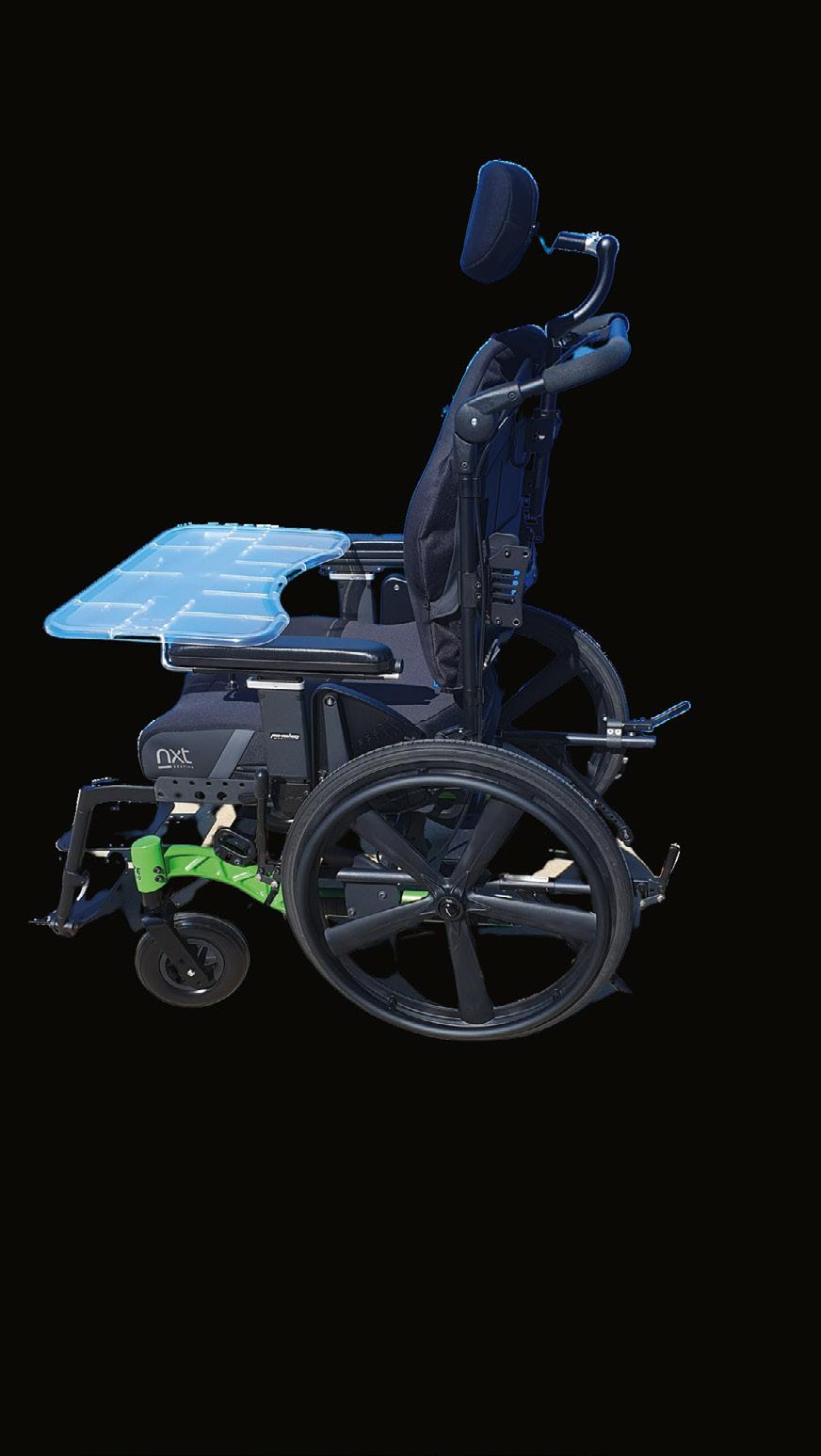
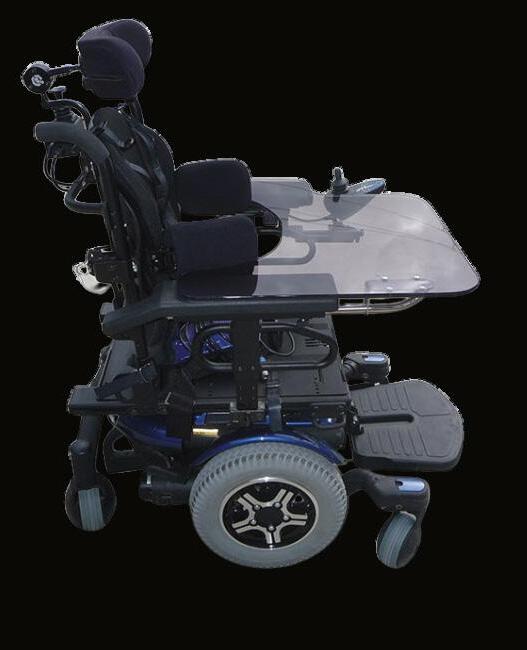

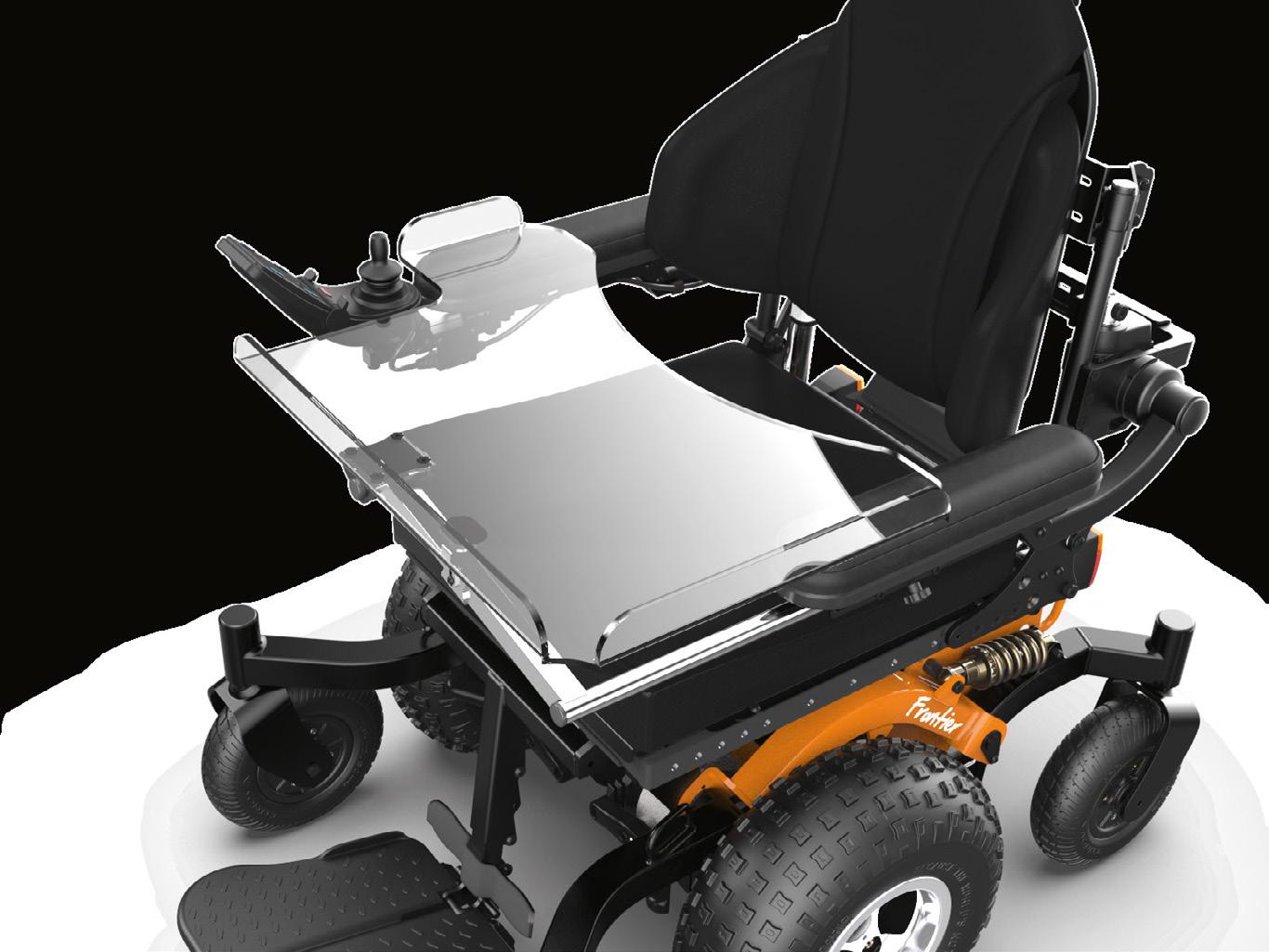
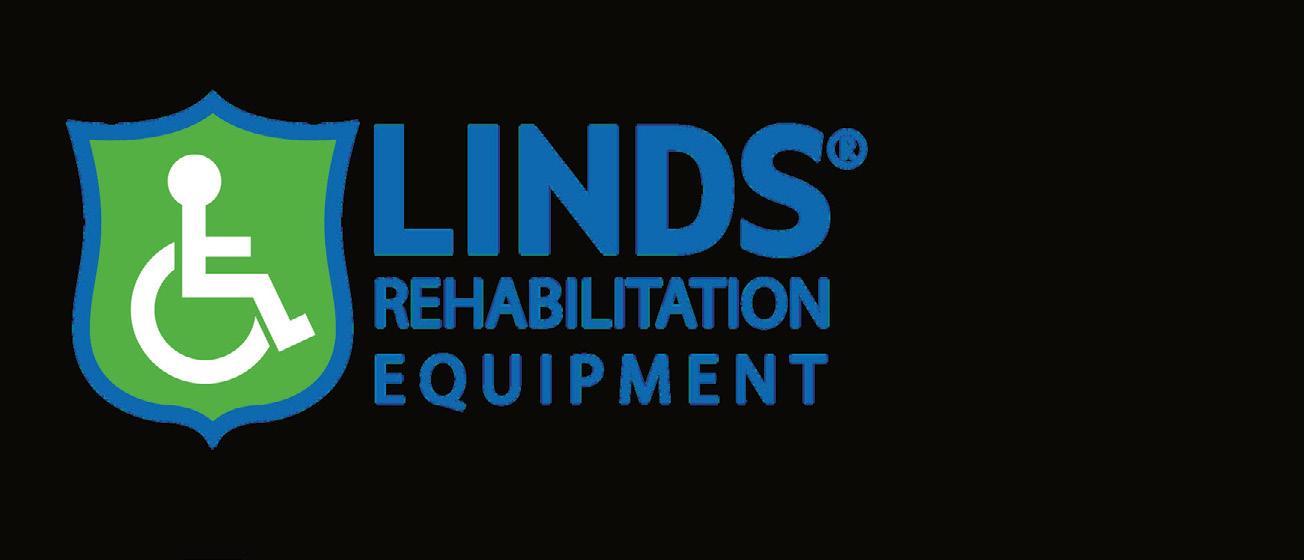

Contact us 1800 501 601 sales@lindsrehab.com.au www lindsrehab com au
WILA Innovations - specialist in disability equipment

WILA Innovations is the Australian distributor for the Vicair pressure care products, the FOCAL dynamic arm supports, the Obi robotic feeding device, the new Free2Go walker and VELA work and medical chairs.
Visit WILA Innovations to experience the full Vicair pressure care range including the Vicair air mattress at the ATSA Independent Living Expos in Sydney, May 22-23, and Brisbane May 29-30.
Vicair O2 cushions are a unique combination of high-quality pressure redistribution, optimal positioning and comfort. Available in several models, these are extremely suitable to protect skin. The Vicair O2 wheelchair cushion range offers optimal hygiene, temperature and moist regulation as the cushions are 100 per cent breathable and machine washable.
FOCAL arm supports assist with reduced arm and/or hand function. In line with its motto ‘listen, create,
improve’, the focus is on personal needs to achieve an improved quality of life.
Also on display is Obi, a revolutionary eating device for individuals with upper extremity strength and mobility limitations. Using customisable accessibility switches, the Obi allows the user to control what they eat and when. Eating should be personal, fun, joyful, exciting and independent, and Obi makes this possible.
Making its debut at the expos is the Free2Go Walker. Discrete and portable it offers complete toilet safety in any restroom.
Also lining up at the events is the full VELA chair range. The VELA 700E is suitable those up to 160kg, while the VELA 310E is for users up to 300kg and the 600E is a chair for children.
In a world first, WILA Innovations will introduce the new user-friendly VELA chair with power wheels, for delivering independence at home, work and school.
The Power Wheels VELA 700E carries all the benefits of a VELA chair, even for those without the strength to ‘walk’ the chair around throughout the day.
It allows the user to perform their usual standing activities safely and comfortably without draining their energy, thanks to a safe handbrake, easy-rolling wheels and stable sitting comfort. The chair can convert a new or an existing VELA chair into an indoor power wheelchair.
Visit WILA at ATSA SYDNEY stand #152 and BRISBANE stand #268.
For more details visit: www.wila-products.com.au or info@wila-products.com.au
Link to... ATSA
April/May 2024 50
The Free2Go walker
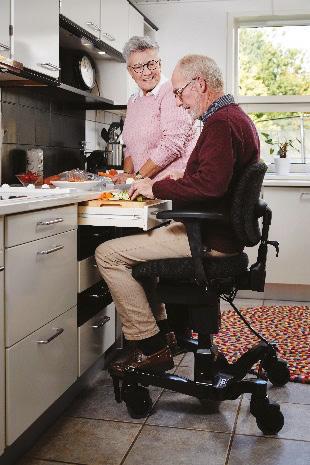
VEL A 700E
The
•
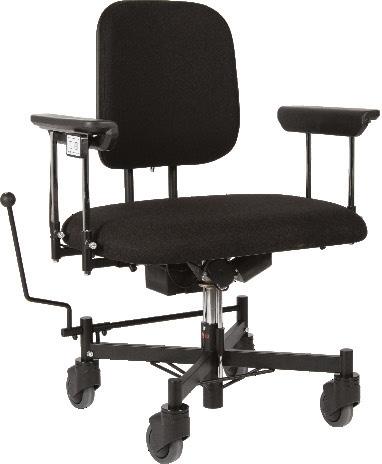
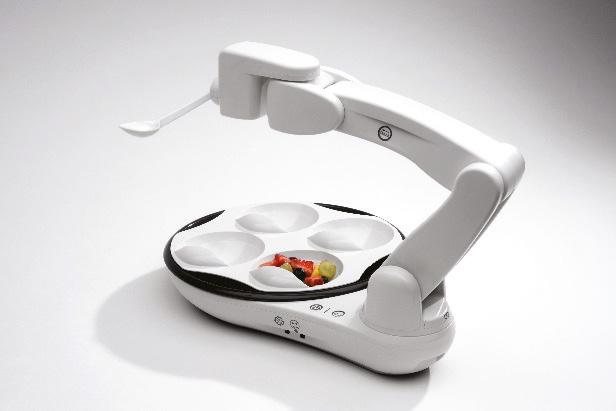
The

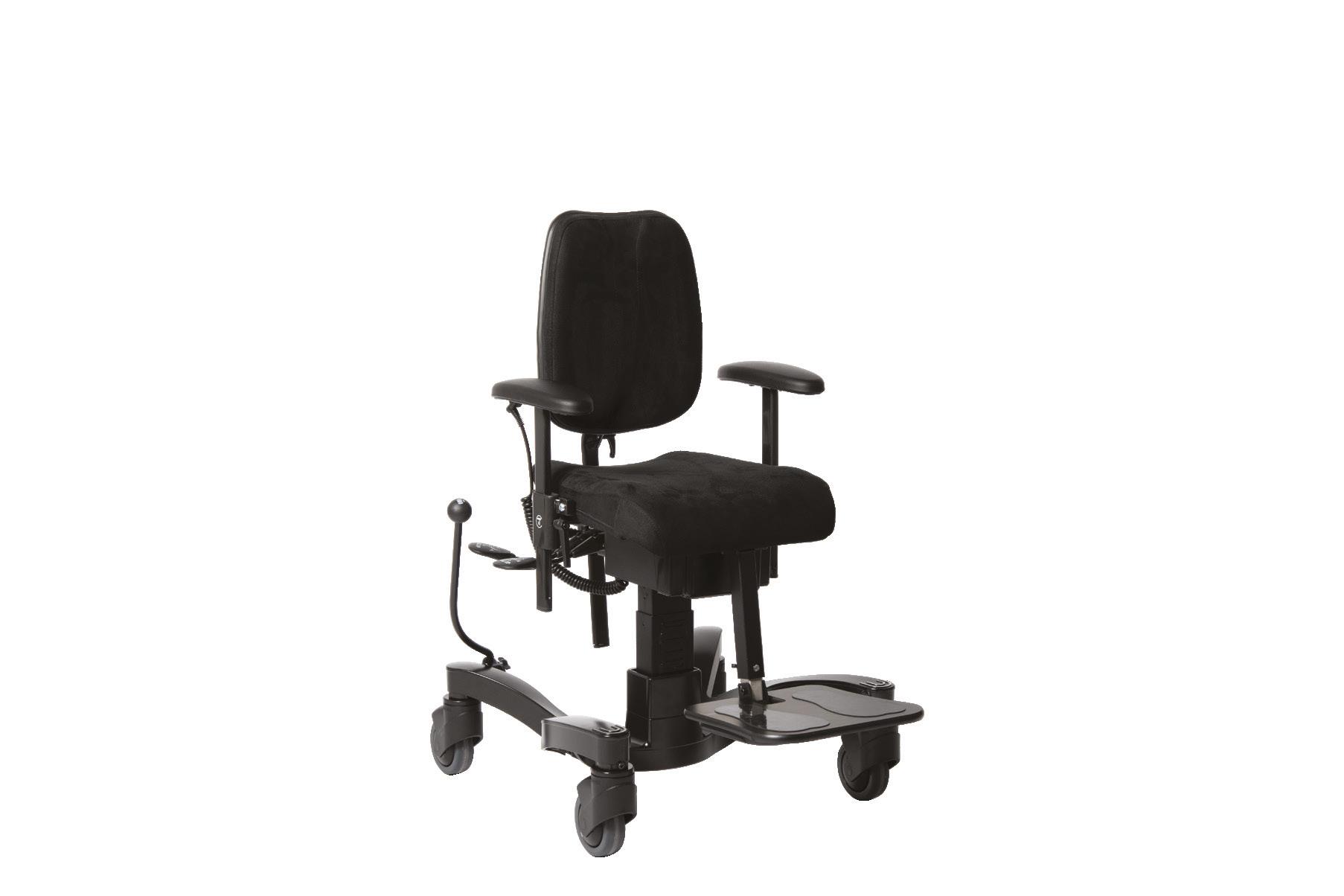

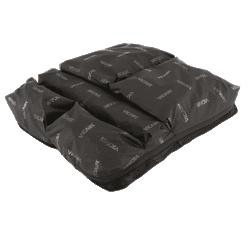
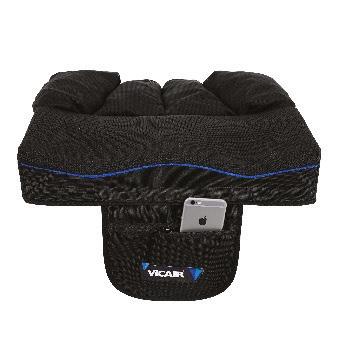

Quality of life enhanced through innovation in assistive technology info@wila-products.com.au www.wila-products.com.au WILA Innovations is the Australian distributor for a range of assistive technology equipment for people of all ages and le el of disability Visit the team of WILA Innov
OBI ROBOTIC FEEDING DEVICE
first dining robot of its kind. VICAIR RELIEF BY AIR Wheelchair cushions designed for comfor t and protection.
700E
you
VELA
chair that can assist
continue living independently.
VELA 310E
The
ATSA
152
Sydney
stand
ATSA
258
Brisbane
stand
EXPERIENCE THE GENERATION OF OUTDOOR MOBILITY.
ARE YOU READY?
“I’ve been pleasantly surprised by how capable the XT2 is. Even on slippery, wet grass and steep hills it never missed a beat. I was actually able to access everything I wanted to, for once!”
ROSIE MARKETING PROFESSIONAL
Trials and demonstrations available from April 2024.
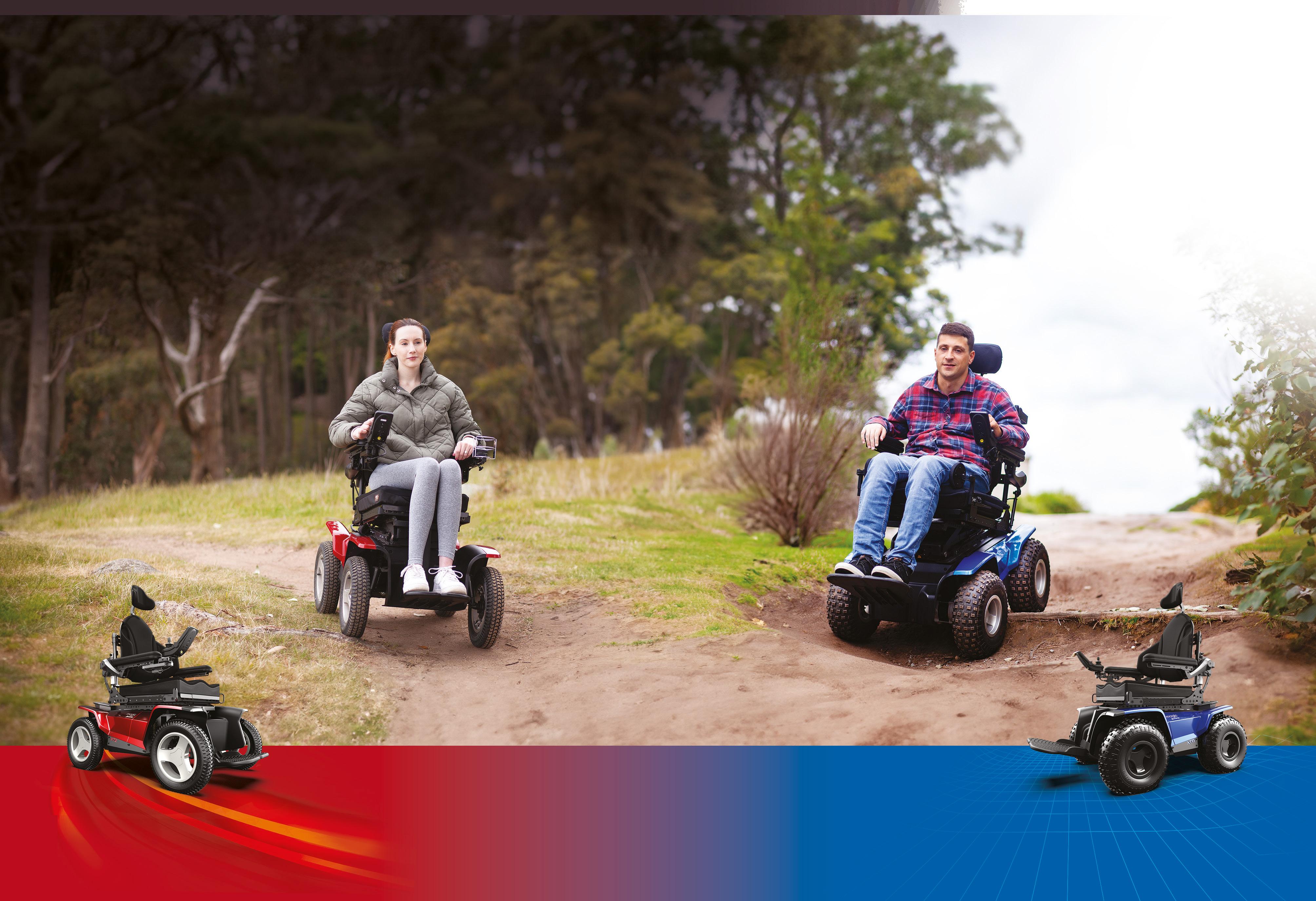
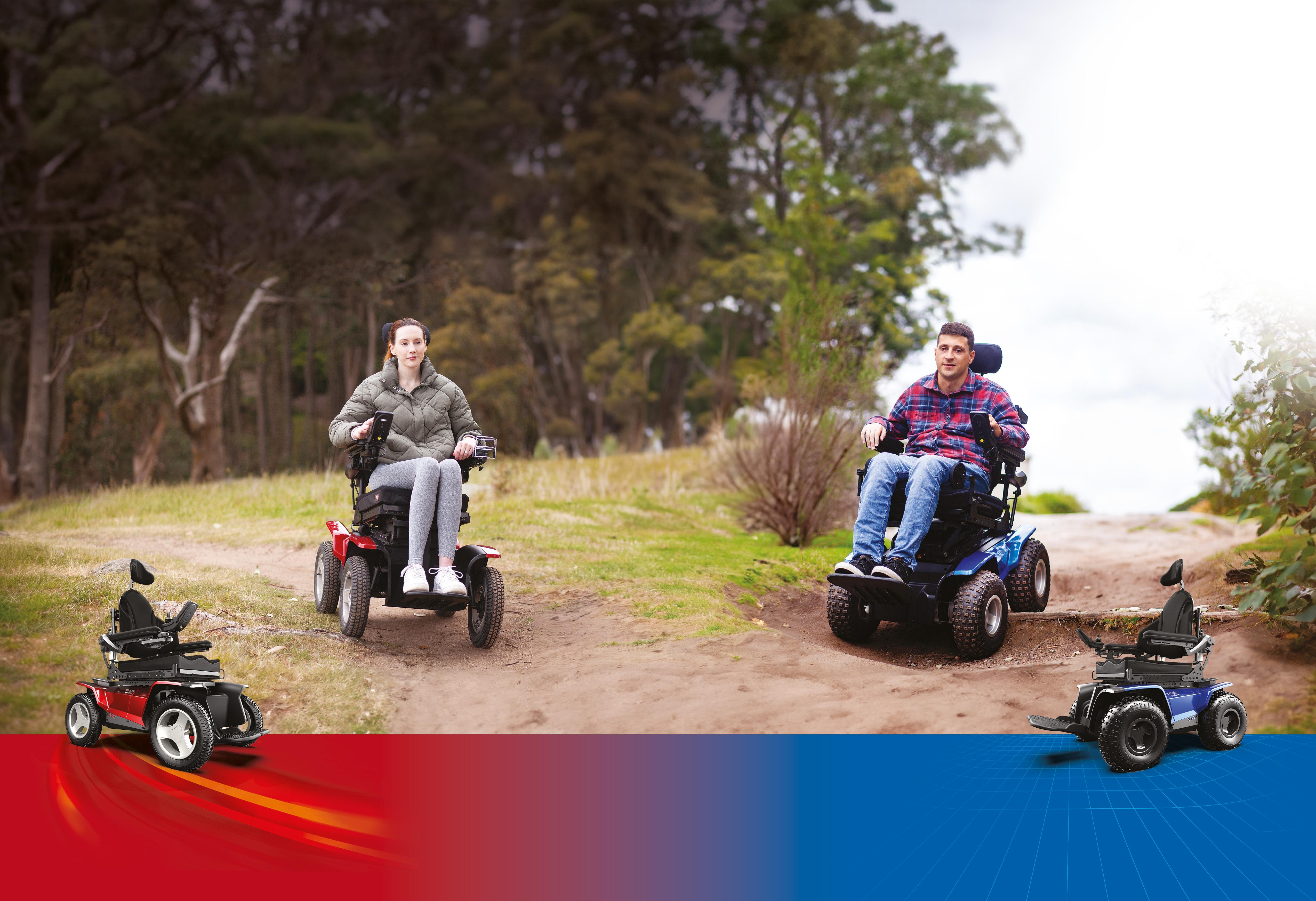
Scan
for detailed product
QR code
info
“Being mostly restricted to a footpath in my everyday chair, the XT4 opens up a new world to me, one where almost everything seems accessible. It’s a game-changer.”


Scan QR code for detailed product info Register your interest now at magicmobility.com.au
magicmobility.com.au
JOSH MARKETER, WRITER & REVIEWER
OFF-ROAD OFF THE SCALE
Magic Mobility launches new XT range
With patented front and rear suspension, massive batteries and servo powered steering, Magic Mobility’s new XT range enables you to get further outdoors and go more off-road than ever before.
For 30 years Magic Mobility has been inspired by the challenge to enable people with limited mobility to live their lives to the fullest, free to enjoy the great outdoors as many people often take for granted. As leading powerchair innovators, Magic’s aim is to constantly improve on satisfying wheelchair users’ desire to feel good and look good, go further and be more in control of their chair and their lives.
Since launching their everyday mid wheel drive Magic 360 wheelchair, the company has been focussed on developing their outdoor range, designed specifically for adventure and exploration.
The result of their efforts in research and development are not one, but two brand new outdoor powerchairs, designed to address many of the unmet needs and lifestyle aspirations expressed by feedback from users.
The XT2 is a completely new type of powered wheelchair. With four large urban wheels on a longer wheelbase, this powerful rear wheel drive features two 850W motors and larger batteries. The XT2 is designed to cruise effortlessly over footpaths, bike tracks, grass, tree roots and gravel pathways typical of areas where people live, work and play.
Featuring a new level of excellence in steering, the servo-powered steering module provides superior and reliable control at top speed and reduces the amount of energy required to drive the chair. The result is a range that has been test in urban environments, achieving Magic’s best results for a real-world powerchair to data, delivering hours of all-day driving on a single charge.

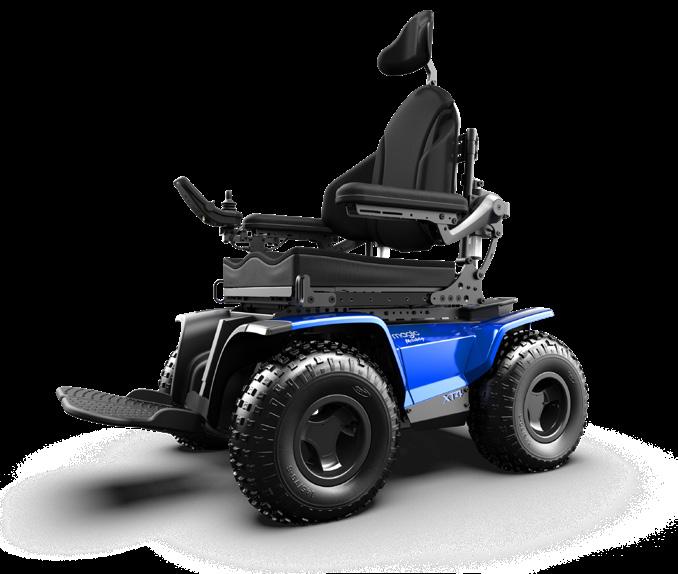
With superior seating comfort, and powered seating and leg rest options, users can access the outdoors on long rail trail riding or walks with family and friends in comfort for hours with peace of mind and confidence, regardless of the everyday off-road terrains they encounter on their journey.
The XT4 is Magic’s latest and greatest off-road 4x4 powerchair, built on the experience of the world famous and much loved Extreme X8.
Thanks to the all-new patented front and rear suspension developed by Australian engineers and combined with a servo steering module, the XT4 provides greater comfort, stability and traction over extreme off-road terrains.
With the improved efficiency of servopowered steering and larger batteries, the XT4 is designed to take you further off-road. Improved control in both forward and reverse adds and extra level of comfort for users.
The XT4’s brilliant new suspension system is designed to keep all four wheels on the ground, providing superior traction even across undulating terrains.
Adventurous Magic Mobility customers have tested the XT4 in real-world conditions, saying it is noticeably more comfortable and easier on the body due to the suspension, and feels stable particularly when driving sideways on an incline or up steeper hills.
Both the XT2 and XT4 share the same sleek and updated contemporary body styling and are fitted with removable body panels to enable easy access for servicing and repairs.
The XT family of powerchairs have been designed to:
1. Look good – sleek, contemporary styling with smarter design features
2. Feel good – comfortable suspension and greater stability provide more support on rough terrain
3. Go further – extended off-road and all-day cruising range on a single charge
4. Be more in control – precise servo steering and improved traction.
The XT range is available to test drive and order in Australia and New Zealand from April 2024. Register your interest or enquire with specific questions at www.magicmobility.com.au.
Link to... Assistive Technology
XT4
54 April/May 2024
XT2
The C-Pen: The perfect reading solution
Reading and comprehension are fundamental skills that open many opportunities for learning, working, and enjoying life. However, reading can be challenging for some people due to dyslexia, low literacy, processing issues, or other neurodiverse needs.
The C-Pen Reader 2 is a portable handheld assistive technology (AT) device that enhances individuals’ quality of life. It allows users to scan printed text, providing access to written materials such as magazines, newspapers, books or even the power bill. The pen provides reading independence by boosting selfconfidence and reducing readingrelated stress and anxiety. It reads aloud in a natural-speaking voice, offering independence and discreet support while maintaining a consistent tone.

The C-Pen comes highly recommended by speech therapists, occupational therapists and psychologists throughout Australia. As a NDIS registered provider, the pen is usually covered in three categories: AT, everyday living, and consumables. Additionally, we can collaborate with plan managers and provide any necessary paperwork.
Scanning Pens has received prestigious awards and recognition for innovative impact. It won the Australian Disability Service Conference and Awards for the Best Assistive Technology Product of the Year and the Queen’s Award for Business for International Trade.
Unlock your reading potential with a free C-Pen trial.
Scanning Pens offers healthcare professionals an obligation-free

trial. Speech pathologists, OTs, psychologists and service providers can evaluate the pen with clients and colleagues for 30 days.
Contact us on 02 8855 7100 or alicia@scanningpens.com or visit www.scanningpens.com.au
FREE TRIAL FOR HEALTHCARE PROFESSIONALS
Scan here to
https://www.scanningpens.com.au/Request-Trial-SPAU.html
more
find out
Link to... Assistive Technology linkonline.com.au 55
Buying assistive technology online - ask the right questions
Shopping online has granted us a world of possibilities, including access to assistive technology (AT) devices. To make sure you get the best device for your personal needs or those of another user, ATSA chief executive officer, Serena Ovens, explained how to avoid any downsides of buying AT online.
You need to ask the right questions.
Buying AT means you’re buying a medical device. “Medical devices need to be fully understood and you need to have the right information before you purchase,” Ovens said. And to make an informed decision you need to take the time to ask the right questions.
“Even for simpler devices like a walker or a shower chair, there are a number of questions to ask.”
• Will the walker fit in the car? Is it too heavy to put in the boot?
• What terrain will the walker be used on?
• Can you adjust it to the right height?
• Does the user have the strength to use the walker’s brakes?
• Will the seat take the weight of the person?
• Who do I go to post-sale to assist me if I have questions or problems?
A shower chair may also seem like an easy item to order online. But it is more complex than you may think.
“A shower chair will be in a wet area. Will it become a trip hazard when a person tries to get in and out of the shower? Does the chair take the person too far away from the taps or bring them too close to them, or could it block access?”
Asking the right questions is crucial to choosing a device that’s safe and isn’t going to put the user at risk.
Seeking expert advice
“If you’re replacing something a person already has, there’s less need for a clinical intervention, unless that person’s health condition has altered in some way”, she said. “But if you’re looking at a more complex type of product, getting clinical advice is in the best interest of the user to make sure that all the boxes are ticked, and the device is fit for purpose.”
If an occupational therapist has recommended a shower chair, it is critical that you follow their advice. If you elect to shop online, ensure you understand what has been recommended in respect to the features the chair needs to have.
Don’t buy one online that has different features because it’s cheaper or can be delivered faster, as this may lead to injury, or not meet specific needs.
Tips for online shopping
How do you shop online for AT with more confidence?
1. Know your needs: have a clear understanding of what type of AT you need.
2. Research the product and suppliers: Look for reviews and specifications of the product you are interested in. Make sure the product meets your needs. Choose a supplier with a good reputation for quality products and strong customer service.
3. Check the return policy: read the returns policy carefully before making a purchase and understand any restrictions.
4. Compare prices, shipping costs and warranties: keep in mind that the lowest price may not always be the best option.
5. Ask for recommendations:
If you know someone who uses AT, ask for their experience with different products. This can give you valuable insight and help you make a more informed decision. However, your personal circumstances are unique to you, so always focus on your needs and seek professional advice before making the final choice.
6. Remember that AT is a medical device, and if not set up correctly, it can cause injury or worse. That’s why it’s important to choose a delivery option that includes set-up services rather than flatpack delivery. This delivery option will ensure that the device is set up properly so there’s less risk of something going wrong.
The safest path when buying AT online
Shopping for AT appears easier than ever because of the convenience of online stores. But the challenge when ordering online is making sure a device is suitable for your individual needs or those of another users, and the price represents value for money, and some online stores sell goods at exorbitant prices.
The safest course, whether you’re buying online or in store, Ovens said, is to talk to an allied health professional first. “It could make all the difference when investing in this type of medical device and they will help ensure that everyone gets exactly what they need.”
Contact details: www.atsa.org.au
Email: info@atsa.org.au
Phone: (02) 8006 7357
Link to... Assistive Technology 56 April/May 2024
Peak Plan Management for peace of mind
Managing a NDIS plan, sorting payments to service providers, and keeping records can be overwhelming and time-consuming. At Peak Plan Management, we can help you navigate the NDIS and maximise your plan budget. We handle your NDIS budget, so you can spend less time on paperwork and more on achieving your personal goals.
We know that everyone’s needs are different, that’s why we are committed to offering personalised support to our participants. Our friendly and knowledgeable team closely monitors your budget to keep you on track, so you make the most of your funding and get the support you need.
Choosing Peak Plan Management means choosing a partner dedicated to
your well-being. We provide guidance within the NDIS framework to make sure your unique needs are met. We handle all service provider payments efficiently and communicate openly. We provide regular statements, advice, and guidance to keep you informed and in control of your plan and the support you receive.
With local teams across Australia, we provide tailored support and advice backed by local knowledge. Use your support and funding confidently knowing that you’re backed by a caring team and smooth invoice payment process.
Get peace of mind knowing that we are paying your providers promptly, accurately and with minimal effort on your part so you can focus on what truly matters to you.

For more information or to discuss how plan management can benefit you, contact our friendly team on 1300 73 23 24 or visit www.peakplan.com.au.

Link to... Assistive Technology linkonline.com.au 57
Artificial Intelligence: and practically realising disability rights
By Natalie Wade

Artificial Intelligence (AI) is not a new thing in terms of technological advances, but it is certainly in our national consciousness and everyday conversations more than ever before.
Conversations about AI have finally shifted from worries about robots and into how this might become part of our everyday lives. When technologies advance, it is important to consider what impacts it will have on diverse groups, including people with disabilities.
“AI in the future will be inclusive for all.”
Ensuring that AI is built to reflect and support diverse experiences such as disability, age, race and gender is critical. However, this article is making
the bold assumption that is going to be addressed and AI in the future will be inclusive for all. Keep reading past the complexities and improbabilities of that statement!
In this article, I would like to explore the role of AI in practically advancing disability rights, and specifically the right to independent living.
One of the barriers to independent living can be remembering things or getting into routines. AI technologies like Google Home or Siri have become important solutions to facilitate people being able to have prompts without people and to develop routines by reminding people what to do next.
Where this suits a person, it can be an exciting way to gain more independence in daily living, without having to rely on others.
In more recent developments of AI, like ChatGPT, the technology has become sophisticated enough to be able to generate natural language processing information like preparing lists or instructions.
This can be an important tool for people with disabilities to be able to communicate what they want those helping them to do. It can also be useful to produce instructions or manuals that would otherwise take the person with a disability or their family member a lot of time to prepare.
The role of AI in assisting people with disabilities to realise their right to independent living is worth exploring and promises important advancements.
Natalie Wade, founder and director, Equality Lawyers – 08 7084 1190 or natalie@equalitylawyers.com.au
Link to... Artificial Intelligence
58 April/May 2024
AI and Assistive Technology: opportunities and challenges
By Dr Melanie Hoyle and Associate Professor Libby Callaway

Artificial intelligence (AI) is ‘a machine’s ability to perform the cognitive functions we associate with human minds, such as perceiving, reasoning, learning, interacting with an environment, problem solving, and exercising creativity’. Whilst AI has been used internationally for decades in both science and engineering, its mainstream application has grown rapidly recently – particularly with the launch of open-access generative AI products. However, particular to the field of assistive technology (AT) the use of other AI systems has expanded and include embodied AI (drones, robots, autonomous vehicles), humanin-the-loop AI (medical diagnosis, facial recognition), and transfer learning AI (natural language processing, translation).
The use of AI in AT for community living, such as AI-ambient assisted living products and smart home assistants, has also been swiftly increasing and there has been both opportunities and challenges
identified. AI may offer many benefits across all classes of products, including for self-care activities, participation in self-care and delivery of care (including remotely); domestic activities and participation in domestic life; communication and information management; work activities and participation in employment, and recreation and leisure . AI-enabled assistive technologies, such as those facilitating language caption and translation, image recognition, facial recognition, summarising information, lip reading, and user navigation, have been recognised as particularly beneficial in enhancing accessibility.
Challenges in the use of AI are also however being closely examined, including: The risk of bias when machine learning is reliant on humans to achieve the level of validation necessary to be useful, and a lack of diversity in AI training which can result in technologies that do not reflect the diversity of human experiences, including the needs and goals of AT
users; Ethical considerations in the use of AI, including ways to align the design and application of AI with ethical and inclusive values ; AI, human rights, and considerations for responsible innovation that takes advantage of the promise of new technologies, while upholding human rights.
Recognising both the opportunities and challenges that exist, in November 2022 the National Disability Insurance Agency released a framework for AI-enabled AT as supports under the National Disability Insurance Scheme. This framework outlines six key principles including:
• user experience
• value
• quality
• safety
• privacy and security; and
• human rights.
AI offers real potential to change the way ATs are developed, and how humans interact with and use them. However, challenges also exist, and it is imperative that AT users ‘are engaged not only in the development of the technologies themselves but also in conversations about their ethical application, and in establishing the regulations, standards, and policies which govern them’.
Dr Melanie Hoyle, Australian Rehabilitation and Assistive Technology Association (ARATA), president and occupational therapist at the School of Health and Rehabilitation Sciences, The University of Queensland.
Associate Professor Libby Callaway, ARATA strategic executive advisor, and occupational therapist, Rehabilitation, Ageing and Independent Living (RAIL) Research Centre and Occupational Therapy Department, Monash University, Victoria.
ARTIFICIAL INTELLIGENCE linkonline.com.au 59
How Artificial Intelligence is revolutionising autism support and diagnosis
By Anita Aherne

Recent studies conducted in Korea and Australia have demonstrated the promising utilisation of Artificial Intelligence (AI) in facilitating quicker and more accessible autism diagnoses. In Korea, AI analysed retinal images of 958 children, accurately identifying autism traits between 48 per cent and 66 per cent of the time. This method can potentially expedite diagnosis by easing the burden on child psychologists and psychiatrists. Similarly, Australian researchers employed AI alongside electroretinogram (ERG) testing to detect autism features. This noninvasive test, which takes only 10 minutes, could provide a faster alternative to traditional assessments.
But what exactly is AI, and how can it benefit children beyond diagnosis?
Personalised Communication
Aids. Imagine your child confidently expressing their thoughts and feelings in any situation, thanks to personalised communication aids optimised by AI. Apps like Proloquo2Go revolutionise
communication for non-verbal individuals, offering tailored support that fosters independence and enhances social connections. With the support of AI, children can find their voice in a world that sometimes feels overwhelming.
Navigating social interactions with confidence. Social interactions can be daunting for many with autism, but AI-driven virtual reality programs offer a solution. These immersive scenarios provide a safe and controlled environment for practising real life social scenarios, helping children build confidence and reduce anxiety in real time. With AI, kids can learn to navigate social complexities more easily and assuredly.
Tailored education for every child. Integrating AI programs like Gizmo, an AI education app, aids kids in remembering content in a simple and fun way. It enhances personalised learning by catering to individual strengths and preferences. Educational platforms can adapt in real time to engage children effectively.
Additionally, AI tailors learning experiences in maths, science, or language arts to suit each child’s needs, ensures accessible and enjoyable education. This is proving to be a game changer for students who experience difficulties attending school, often referred to as School Can’t.
Empowering therapeutic interventions. Therapeutic interventions are essential for supporting children’s emotional well-being, and AI can enhance their effectiveness. Wearable devices with AI algorithms monitor stress levels and provide real-time feedback to therapists and individuals, ensuring more targeted and impactful interventions. With AI, children can learn to manage their emotions and navigate the world with confidence and resilience.
Creating opportunities for the future. One of the most exciting aspects of AI is its potential to create employment opportunities for those on the autism spectrum. AI-powered job matching platforms connect individuals with roles that align with their unique skills and preferences, contribute to a more inclusive and diverse workforce, a benefit for job seekers and employees.
Embracing the future with AI. As parents, our ultimate goal is to see our children flourish and achieve their fullest potential. With the potential of AI, we have a powerful ally on our side. Additionally, cautiously embracing the future and its possibilities for our children and families is key. To learn more about how AI is utilised and the latest research, visit the free national autism directory at: www.livingonthespectrum.com.
Link to... Artificial Intelligence 60 April/May 2024
Harnessing AT and AI in recreational therapy

The incorporation of assistive technology (AT) and artificial intelligence (AI) into recreational therapy for individuals with autism represents an innovative approach to addressing diverse needs and enhancing the overall therapeutic experience. Recreational therapists utilise these technologies to create personalised, engaging, and adaptive interventions that cater to the unique characteristics of individual clients. As technology continues to advance, the potential for AT and AI to support and empower individuals through innovative and tailored recreational therapy interventions will continue to evolve.
Recreational therapists use a range of AT and AI sometimes in combination to support and enhance a client’s choices in recreation and leisure. AT encompasses devices, tools, and systems designed to enhance the functional capabilities of individuals with various physical disabilities and neurodiversity.
The scope of AT extends to sensory interventions, where devices and applications can be employed to create controlled and customisable sensory experiences. Therapists can utilise this to develop virtual sensory environments for individuals with autism, accommodating sensory
sensitivities or preferences. This may involve apps providing visual or auditory stimuli in a controlled manner, allowing individual clients to explore and interact with sensory elements at their own pace. Moreover, the integration of AI enhances the accessibility and usability of AT devices. Intelligent algorithms learn from user interactions, adapting device settings to better suit individual needs. This adaptability ensures that AT remains responsive to the evolving requirements of individuals with autism.
Recreational therapists play a vital role in customising interventions to meet the unique needs and preferences of individuals with autism, and the integration of AT and AI adding a dynamic element to their therapeutic toolkit. Where appropriate, using AT and AI in recreational therapy can assist with improving engagement, developing self-determination, fostering skill development, and enhancing overall well-being in individuals.
An example of AT in recreational therapy for individuals with autism involves the utilisation of communication devices and applications. Devices that facilitate augmentative and alternative communication (AAC), coupled
with AI capabilities, can assist to analyse and interpret nonverbal cues, allowing those with limited verbal communication abilities to express themselves more effectively.
Recreational therapists can seamlessly incorporate AAC tools into activities to facilitate communication and social interaction, ultimately enhancing engagement and minimising frustration. Additionally, AI-driven assistive technologies contribute to the adaptation and personalisation of recreational activities. Machine learning algorithms can analyse an individual’s responses to various activities, identifying patterns and preferences over time. Recreational therapists can use this data to continually refine and tailor activities, ensuring a personalised and evolving therapeutic experience. For instance, if an individual with autism shows a preference for sensoryfriendly activities, an AI system could suggest and adapt recreational sessions to incorporate specific sensory elements, delivering a more enjoyable and personalised experience.
With a focus this month on autism, the recreational therapist often develops interventions when there are challenges related to sensory processing, communication, and social interactions. AT can often be a valuable resource to bridging these challenges, creating an inclusive and enriching therapeutic experience.
The use of AT in recreational therapy for individuals with autism also facilitates remote interventions. Telehealth platforms equipped with AI features enable therapists to conduct virtual sessions, monitor progress, and provide real-time feedback. This not only expands access to therapeutic services but also accommodates individuals who may face barriers to inperson sessions, such as geographical distance or health concerns.
ARTIFICIAL INTELLIGENCE linkonline.com.au 61
Autism - a mother’s story
By Jayne Keogh
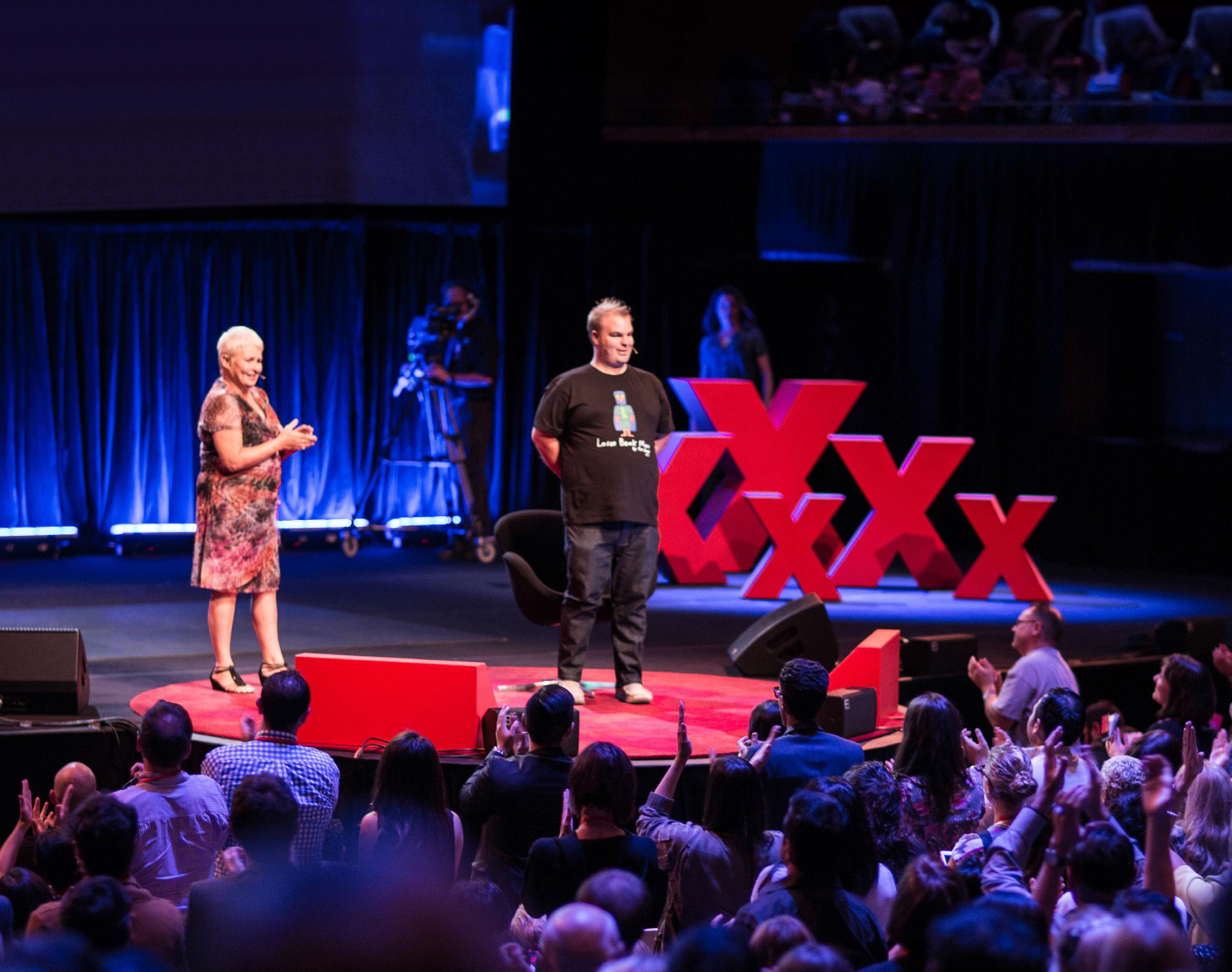
Autism, from the Latin meaning ‘within oneself’. That brief description was the only reference the distraught mother could find in the council library in a medical dictionary in 1991.
It was day two after Judy Sharp had taken her three-year-old son Tim to be assessed by a psychologist as she was aware that he was very different from other toddlers. “I couldn’t figure out a pattern to Tim’s behavior because there were so many things that seemed to set him off,” she told Link . “He was non-verbal and even though toddlers gibber, the precursors of words still show through, but Tim just screamed, cried and made whimpering noises.”
Sharp had done the rounds of pediatricians, GPs and nurses trying to
settle him down and develop the usual feeding, sleeping, dressing and outdoor pram walks to no avail. She was always told that some babies are just more difficult, he will be fine, just be patient. But she knew that it wasn’t getting any better, but worse, and she was so physically and mentally exhausted that she was at the end of her tether. She dreaded the assessment of the psychologist and knew in her heart that something was ‘not right’. But the result was so devastating and completely negative that most people would give up, but Sharp isn’t most people.
The psychologist, following a formulaic assessment, said that Tim was autistic, he was non-verbal and would never learn basic life skills. “He would be a burden and would end up in an institution, so I should put him away
and forget about him as there was no hope,” she said. And then the final cut, the worst, “autistic children cannot love.” But then as they drove away and Sharp was sobbing with grief, he reached his little hand across and wiped away her tears.
As the dictionary said, “The disorder meant that Tim was isolated, that he was locked away from the world within himself. It would be my job to find him and bring him out.” She has no interest in the causes of autism, and would say, ‘It is what it is, there is no cure, there is no treatment”, but that is not the end of the story. If it was, then Sharp and Tim would not have travelled the world as keynote speakers, enthralled the Sydney Opera House at TEDx, and have had an animated cartoon series, play and a movie based on their story.
Link to... Autism
JudyandTimSharpatTEDx
62 April/May 2024
Every success story really begins when someone believes in themselves so fiercely that they are prepared to put everything on the line. To help Tim communicate Sharp introduced him to crayon drawing on paper, the turning point for him to become a worldrenowned artist. Aged 11, Tim’s artistic talent developed to the point where he created Laser Beak Man, a superhero who features in vividly colored scenarios that reflect Tim’s hyper literally, processing of information. For example, in ‘Laser Beak Man and the Barbie Queue’, a line of bouncy blondes with supermarket deli numbers are lined up at a grill where the Laser Beak Man is cooking sausages.
As his reputation grew, he received an invitation to exhibit in the Very Special Arts Festival, an international art show for people with disabilities founded by President Kennedy’s sister Jean in Washington DC. “I needed to raise money to get us there, as Tim was determined to attend. He loved the Kennedys and could recite their whole history”. After exhausting all possibilities, she mortgaged her house, the only thing of value she owned. This sorted, she then contacted the producers of Australian Story hoping they might be interested in Tim’s achievements. She was blown away when they decided to take a camera crew and producer to Washington to follow their attendance and meeting with President George W Bush at the White House.
Living a dream
“After Australian Story aired, the response launched Tim’s career as an artist.” There were sell out art shows at the Brisbane Powerhouse, an exhibition about Tim in the National Museum of Australia, a film about him shown at the Met in New York, and an ABC Laser Beak cartoon series.
At the ‘Out of the Box’ theatre festival for pre-schoolers in 2010 at QPAC in Brisbane, actress Cate Blanchett met Tim and purchased ‘Laser Beak Man Tells the Wiggles to Shut Up’. Next came a play developed on Broadway by the Dead Puppets Society and a movie is now in the works.
Sharp’s proudest moment was the 2014 TEDx at the Sydney Opera House. She was approached by TEDx after an interview on Richard Fidler’s Conversation Hour on ABC National, “The response literally broke the internet”. For the first time, the story angle was all about Sharp, not Tim’s art, but flowed onto him, and they completely sold out of Laser Beak Man merchandise.
“autistic children cannot love.” … but as they drove away, he reached his little hand across and wiped away her tears.”
TEDx had another turning point. She overcame her fear of public speaking when she and Tim spoke to a live audience of nearly 3000 people in the Opera House and millions streaming online. The highly choreographed presentations go through the exhaustive selection process the program requires, meaning many hours of her work up until the moment she and Tim walked on to the stage. Together they just told their story in a simple, honest way, of their journey and found that other people jumped on board to assist.
Hundreds of regular people like neighbors, teachers, doctors, therapists and high-profile publishers, actors, sports, TV and movie stars helped them along the way. “I found my place in the world that day. To show as many people as possible that ours isn’t an autism story, it’s a story about finding connections and a very rewarding, rich life.”
Sharp produces the t-shirts, socks, prints, cards and CDs merchandise herself, with all income going into a trust for Tim if ever she is unable to be his full time carer.
She manages every aspect of Tim’s life to ensure that he is not being exploited, arranges all engagements and is always with him. “To allow an autistic person to achieve their best and be happy, is a fulltime job,” she said, “but I don’t see it as a burden, he is my son and every mother wants her child to be the best they can be, don’t they?”
She does not see herself as a martyr, far from it, but incredibly lucky to be living a life she never dreamed was possible. She travels the world meeting interesting and talented people, but the best part is, “my son and I both have careers that we love and are happy with our lives which make a lot of other people happy”.
Her book, ’A Double Shot of Happiness’ is available on Amazon.
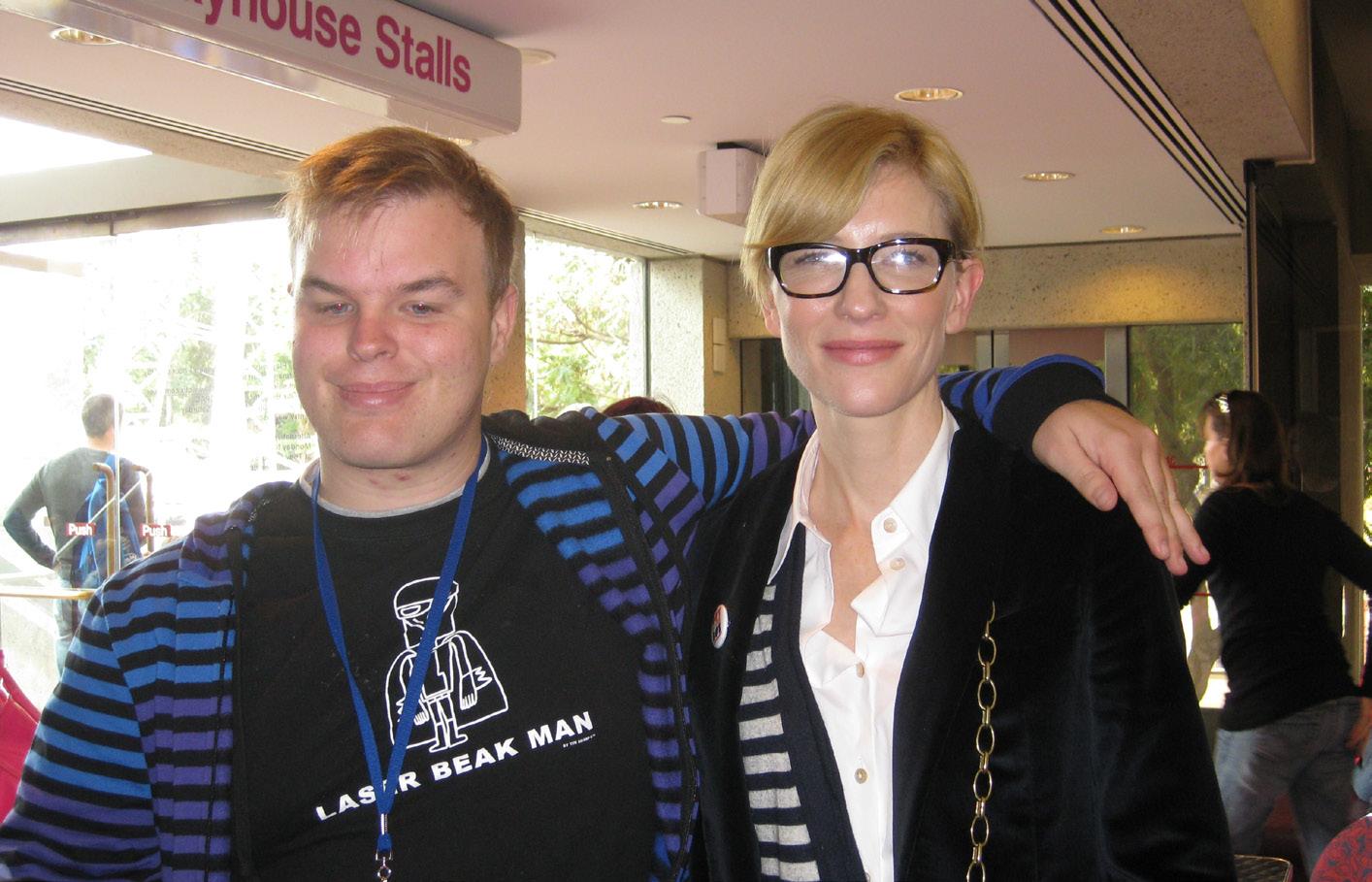
linkonline.com.au 63
AUTISM
Tim with Cate Blanchett
Autism researcher coming to grips with education reforms
Telethon Kids head of research Professor Andrew Whitehouse has been appointed to the National School Resources Board that will oversee school funding arrangements. He spoke to Kymberly Martin about the hurdles schools are facing when it comes to accommodating students with disability.
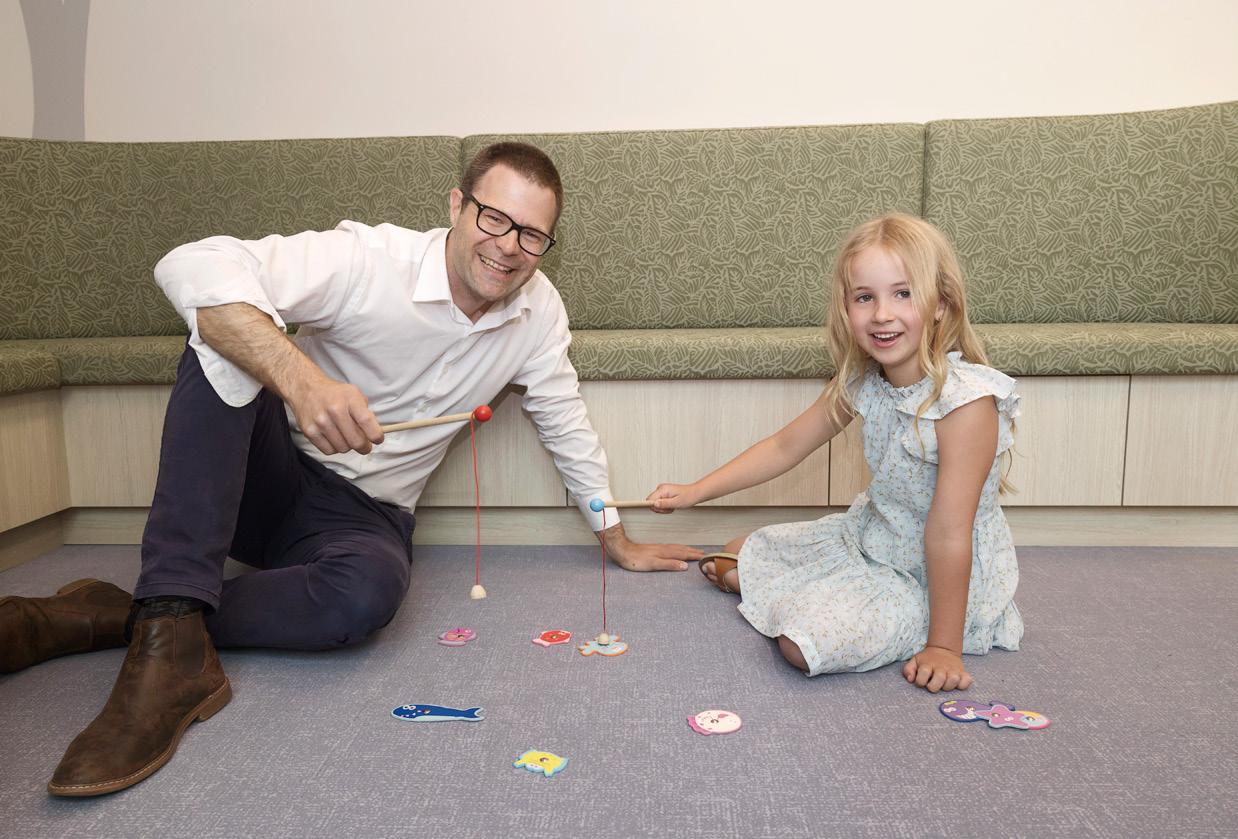
“Without question our schools and education systems has not evolved to meet the requirements of students with disabilities in 2024 and that comes back to adequate funding necessary for the reasonable adjustments students need to thrive in the school setting. But it must be a gradual shift towards becoming more inclusive and equipping schools with adequate resources,” Whitehouse said.
Disability is clearly on the agenda in schools across the country and to have insights and expertise at certain points in the policy landscape is going to be important in helping schools support these students, he said.
“There is a significant proportion of students with a disability and
AndrewWhitehouse
that only becomes clear when they reach school age as school demands reach a point where their disability becomes obvious.”
The number of school students with disability is on the rise too with 991,272 receiving an adjustment to their education in 2023, according to the latest data from the Australian Curriculum, Assessment and Reporting Authority.
Whitehouse also made a case for a gradual shift to more inclusive schools which he described as “a human rights obligation, that is going to take a generation to fix”.
As to what can we do now? “Ensure that students in all settings are adequately supported by trained teachers.”
But he admitted that meeting the increasing demand for teachers with the skills to do this is not easy. “There are skill shortages across the workforce and education is no exception.”
The specific training necessary to equip teachers to deal with this conundrum will be critical to undertake what is the most important role in our society, and that is education. “The more we can prepare teachers to support these kids the better we will all be.
“This is the generation where we have to get it right.”
“In their first year out of their tertiary education teachers are going to experience kids with different developmental needs.
“We have school systems designed for a different era around a one size fits all approach. We now appreciate the full diversity of children and so adjusting to that reality is going to take time, it’s going to take coalitions and ultimately the will of several generations to achieve.”
With the release of the Disability Royal Commission, the NDIS Review and the overhaul of the education system it has never been a better time to rethink how to provide the best support to those with disability within school settings. “This is the generation where we have to get it right.”
And the NDIS Review has hit all the right notes of how it must be reformed to be thriving for future generations. “But the devil is in the detail as to how that will play out,” he said.
Link to... Autism
64 April/May 2024
Aspect seeks actionable change through better understanding of Autism
“In 2007, the United Nations marked April 2 as World Autism Awareness Day, highlighting the need to improve the lives of people on the autism spectrum.
No doubt this is beneficial, but understanding of autism in the wider public has not risen comparative to diagnoses, leaving many autistic people with a lack of required support.
Our autistic community told us neurotypical people are uncertain about how to engage appropriately with their neuro-diverse colleagues or friends, who often have pre-conceived notions of autism, and don’t know what to do or say if someone disclose that they are autistic.
Aspect research shows only 13 per cent of autistic people disclose their diagnosis for fear of how it will be received.
Autism Spectrum Australia (Aspect) made the decision to re-brand the United Nations occasion to World Autism Understanding Day, shifting the focus from awareness to education, understanding and inclusivity.“
“Our goal this year is to create actionable change and build a society where autistic people are empowered to be themselves,” Aspect CEO, Jacqui Borland said.
Members of Aspect’s autistic community have provided input on the best things non-autistic people can do or say, to show support and acceptance, including statements such as:
“Appreciate that there is a lot you don’t know about me or can’t see”
“Be patient and kind, don’t judge me”

“Get to know me – you might find out I am really fun”
“Let me engage in activities or events in a way that I can be myself”
“Don’t insist on eye contact.”
For resources and support and to share information about World Autism Understanding Day click www.aspect.org.au/waud
Autism looks different for everyone
This World Autism Understanding Day, Aspect wants the wider community to understand you and autism.
Our Autistic advocates explain what people can do or say to show they are listening, understanding and supporting you. World Autism Understanding Day 2 April 2024
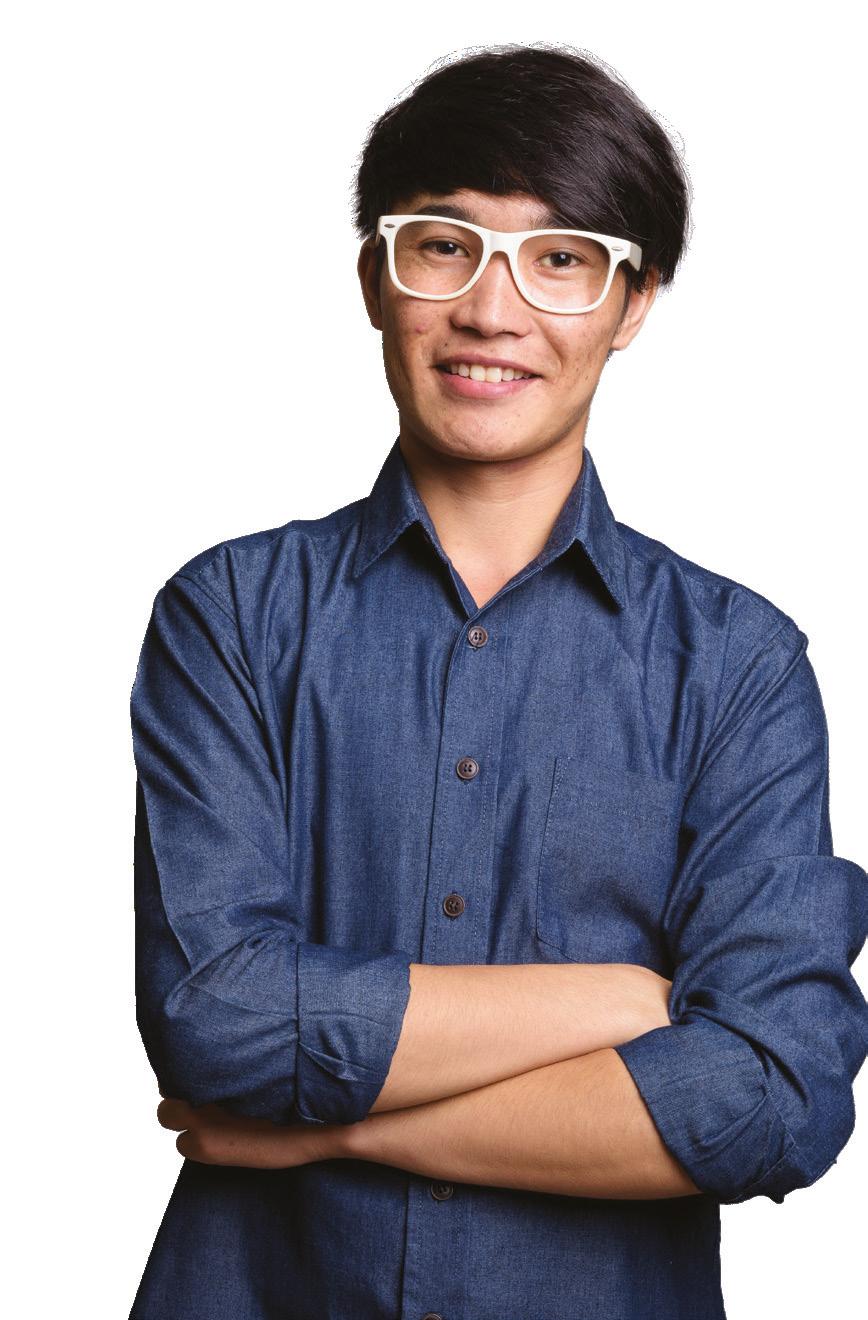
World Autism Understanding Day with us
Celebrate
#WAUD2024
Link to... Autism
linkonline.com.au 65
Michael Theo provides his thoughts on what neurotypicals can say and do to support people on the autism spectrum.
New research on university STUDENTS WITH AUTISM
By Danielle Kutchel

University students with autism are facing discrimination throughout their university experience, but there may be ways to address this, according to a new study.
Titled ‘‘’It’s a symbolic violence’: Autistic people’s experiences of discrimination at universities in Australia”, the research was co-authored with co-researchers Marion Rabuka and Tori Haar. Together with Dr Diana Tan and Professor Liz Pellicano, the team set out to identify the experiences and feelings of higher education students with autism through semi-structured interviews with 21 participants.
Dr Tan, Macquarie University Research Fellow, said it was important to have researchers with lived experience as part of the team; who offered valuable insights into how to design the study in a way that would help participants to feel more comfortable.
Participants were given the choice of whether to be interviewed by an
autistic or non-autistic interviewer, and Tan said about half chose to speak with Rabuka, who is neurodivergent. Participants spoke at length about their university experience in an open interview, and Tan said, “almost every participant, without any prompts, brought up stigma and discrimination”. It soon became clear that this was a significant issue among those interviewed.
Types of discrimination faced
Participants told the researchers they had faced various forms of discrimination, including having accommodation requests rejected by teaching staff, that academic discussions were deficit-based, that university support services had a poor understanding of autism, and even feeling that their career choices were being questioned by those with an outdated view of what autism is.
By analysing participants’ responses, the researchers were able to draw four
key themes out of the research with students feeling:
• their disability is “something that people don’t have a clue about”
• that “the system is really stacked against you”
• the onus is on them to advocate for their support needs, on top of their academic load
• and that their “grit and stubbornness” got them through university despite the discrimination and the toll that self-advocacy took on them.
Several sub-themes were identified within these major areas, including students feeling their diagnosis was not believed due to misunderstandings about what autism ‘looks like’. Many participants also spoke about the intersections between autism and their other identifies, such as being LGBTQIA+ or a person of colour. Others highlighted the emotional cost of self-advocacy.
Tan said the discrimination experienced by the students interviewed had caused real distress and had flow-on effects for life beyond that university course.
“In the whole scheme of things, it’s just one negative experience, but it’s got a whole host of effects that come after,” she said. These effects include burn out and impacts on communications and focus, and even dropping out of university altogether. The ABS found in 2018 that people with autism are less likely to complete higher education, with just eight per cent holding a bachelor degree or higher.
Tan said this could lead to further negative impacts for neurodivergent students. “Increasingly across different fields of education, in many applied
Link to... Autism
66
April/May 2024
DrDiana Tan
areas, they are talking about creating a neuro-affirming environment for autistic people. But you can’t have a neuro-affirming environment without autistic professionals, and you can’t have autistic professionals without them getting through universities to get those qualifications to become professionals. There are flow-on effects, because then we have less autistic representation in certain professions and then that impedes our progress in wanting to become a neuro-affirming society.”
Solutions
As a university teacher Tan said she takes on “individual responsibility” to ensure that her teaching is accessible to all students. She believes this is an attitude that other teaching staff should emulate, for the benefit of all students, whether they have an official diagnosis or not. Taking such an approach would also benefit international students, students with
English as a second language and even other forms of disability.
Universal design for learning – an idea that stems from an architectural concept referring to designing buildings that are accessible for all people – can help in making learning materials more accessible too.
“I’m advocating for people to think about how they can embed the concepts and the frameworks of universal design into their everyday work. For example, many students [in the study] talked about wanting access to lecture materials in different formats [audio, visual, etc.]”.
She said the pandemic has shown that these sorts of accommodations, and providing access to lecture recordings, are possible and should remain in place beyond the emergency phase of the pandemic. She hopes that the study will help provide some clarity on how to better support students with autism,
especially when coupled with other research pieces currently under way.
“I think the message should be, for the universities and maybe for non-autistic students and staff members, to be aware of these issues and to do their part… to make sure that autistic people are not in this situation where they feel discriminated against,” she said.
In light of the study’s findings, Tan hopes that any autistic students who are struggling or who have struggled at university “university are able to find some comfort in knowing that this study has highlighted some existing societal and systematic issues within the academic establishment which have made universities a disabling rather than enabling environment to support their learning”.
The full study, “‘It’s a symbolic violence’: Autistic people’s experiences of discrimination at universities in Australia”, can be read in the Autism Journal.
Navigating autism - new online course
Autism Awareness Australia has launched a free online program for early childhood educators to assist them with the knowledge and confidence to support children in their care.
Developed in collaboration with parents and industry-leading educators and clinicians, ‘Navigating Autism: The Early Years’ comprises eight modules with short videos accessible on any digital device with internet access.
From understanding the signs of autism to having sensitive conversations with a child’s family, the course has practical strategies for educators that addresses the joys and challenges their roles have in a child’s learning and development.
The course contains a short quiz and downloadable resources that can be displayed in centres or distributed amongst staff.
From inclusive setting checklists to factsheets on the signs of autism, these free resources help reinforce an educator’s ability to effectively support children with autism, that
participants can complete at their own pace.
To learn more and enrol visit: navigating-autism.teachable.com.

linkonline.com.au 67
AUTISM
Why self-compassion is crucial for autistic adults
By Dr Ru Ying Cai

DrRuYingCai
Throughout life’s journey, we inevitably face challenges, uncertainties and tough moments. During these trials, however brief, we can become overly critical of ourselves, meticulously analysing every action and blaming ourselves for any perceived shortcomings or failures.
For many, including people on the autism spectrum, self-criticism is the go-to place. We know through research that persistent self-criticism is associated with poor mental health. But what if we could make self-compassion our default response? Imagine if, amid life’s adversities, we could extend the same compassion to ourselves that we readily give to others.
My colleagues at the Aspect Research Centre for Autism Practice (ARCAP) and I, recently uncovered a life-altering link between the ability of autistic adults to be self-compassionate and their capacity to regulate emotions, which is a difficulty faced by many people
on the autism spectrum. Our research showed autistic adults experience lower self-compassion than nonautistic adults, but those with higher levels of self-compassion experience higher levels of wellbeing and positive emotions, and lower levels of anxiety and depression.
But how can autistic adults foster selfcompassion when human nature often leads us to self-criticism?
Fostering self-compassion in Autistic adults
The best thing about self-compassion is that it can be taught. At the core of self-compassion is learning to become your own best friend. It means being warm and understanding toward ourselves when we are suffering, fail at something or feel inadequate, rather than ignoring our pain, berating ourselves or being too self-critical.
Using insights from our extensive research project, we developed an online program specifically designed for autistic adults.
The Aspect Self-Compassion Program for Autistic Adults (ASPAA) is a free, five-week self-guided online course covering all aspects of self-compassion and teaches autistic adults how to become more self-compassionate. It explains what self-compassion is, and is not, and provides guided daily exercises that will help to bring about more self-compassion in their lives.
The program was awarded this year’s Autism CRC Achievement in Autism Research Award and is grounded in evidence-based interventions such as the Mindful Self-Compassion program (Neff & Germer, 2018) and CompassionFocused Therapy (Gilbert, 2014). It consists of five modules including:
1. Understanding self-compassion
2. Benefits of self-compassion
3. Mindfulness
4. Finding your compassionate voice
5. Accepting our experiences.
Does ASPAA work?
The pilot study of ASPAA showed that after completing the program over five weeks, a group of autistic adults became significantly more self-compassionate, had more positive emotions and higher psychological well-being, and had fewer negative emotions and fewer symptoms of anxiety and depression.
Feedback from participants described the program as life-changing, providing a new type of psychological resilience during times of distress or anxiety.
Research participant, Rebecca Hunter said: “There is such value in practising self-care but it’s not something that has come easily to me, as being self-critical when I make mistakes or fail is my natural default. Being kinder to myself helps me to navigate my emotions and the more I actively practise selfcompassion, the more I develop, which makes me feel happier and more confident and positive overall.”
To support health professionals working with autistic adults, we have developed a clinician version of ASPAA for therapists, clinicians, psychologists and mental health professionals, which includes additional instructions to allow clinicians to tailor the modules to provide the best program for those people they support.
Autistic adults and clinicians can sign up at www.autismspectrum.org.au/ about-autism/our-research/aspaa
Dr Ru Ying Cai is a research fellow at Autism Spectrum Australia.
Link to... Autism
68 April/May 2024
Link designer Sarah Vella is participating in the Aspect Walk for Autism during May. This is the third year Sarah has participated in the event and has signed up to walk for 14 days, 7,000 steps a day, (98,000 steps total), starting on May 1.
“The last two years I raised between $1000 - $1200, and I am hoping to reach that target this year,” Sarah told Link .
Sarah and her son Harvey are featured in the event’s social media advertising campaign.
Participants can walk solo or in a team, with workplace colleagues, friends,
Join Sarah and Walk for Autism Become an autism ambassador
Myths, misconceptions and generalisations around what autism ‘looks’ like and what autistic people are capable of remain all too common.
Whether that’s in education, healthcare or social settings, individuals with autism face barriers to inclusion, support and equality due to assumptions and misinformation. However, hearing from the autism community can help dispel these myths, one story at a time. And here is your opportunity to do so.
Autism Awareness Australia is running its #AmbassadorsForAutism campaign during Autism Awareness Month, celebrated worldwide in April. It is inviting people with autism, a family member with autism or someone with a connection to the autism community to share a photo of themselves or their loved one, to hear how they can be an #AmbassadorForAutism every day.
It is also asking for two fun facts from each ambassador about themselves and share one thing they wish people knew about autism. This could be a myth they encounter in day-to-day life or something that’s not well known about autism. Whatever it is you want to say about autism, this is the safe and supportive place to do it.
family or school mates and can choose to start/finish any time during May.
To sponsor Sarah go to: www. walkforautism.org.au/fundraisers/ sarahvella/walk-for-autism-2024

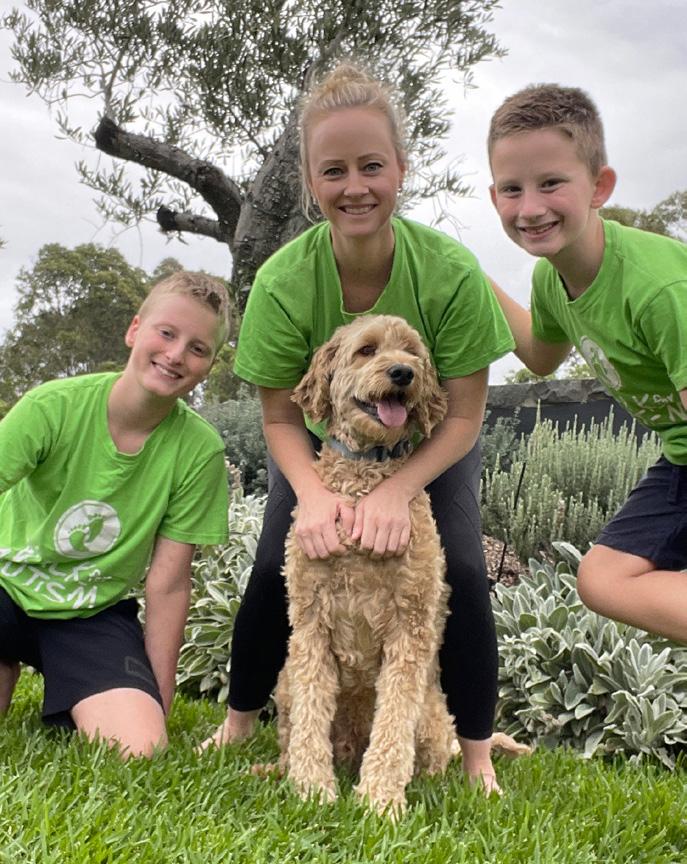
It is sharing multiple ambassadors each day, so there’s a very good chance your entry will pop up. The campaign is intended to highlight the many faces that represent autism and recognise the diversity of autistic individuals and the people that love, care, and support them, by showing the many strengths and contributions they make.
Do you think you’re an #AmbassadorforAutism or know someone who is?
Visit autismawareness.com.au to submit a photo and share your story with family and friends. To stay up to date and see if your post appears on our socials, follow all our channels, and use the #AmbassadorsForAutism hashtag to be part of the discussion.
Facebook: @AutismAwarenessAustralia
Instagram/Threads: @autismawareaus
Twitter/X: @autismawareaus
LinkedIn: @autism-awareness
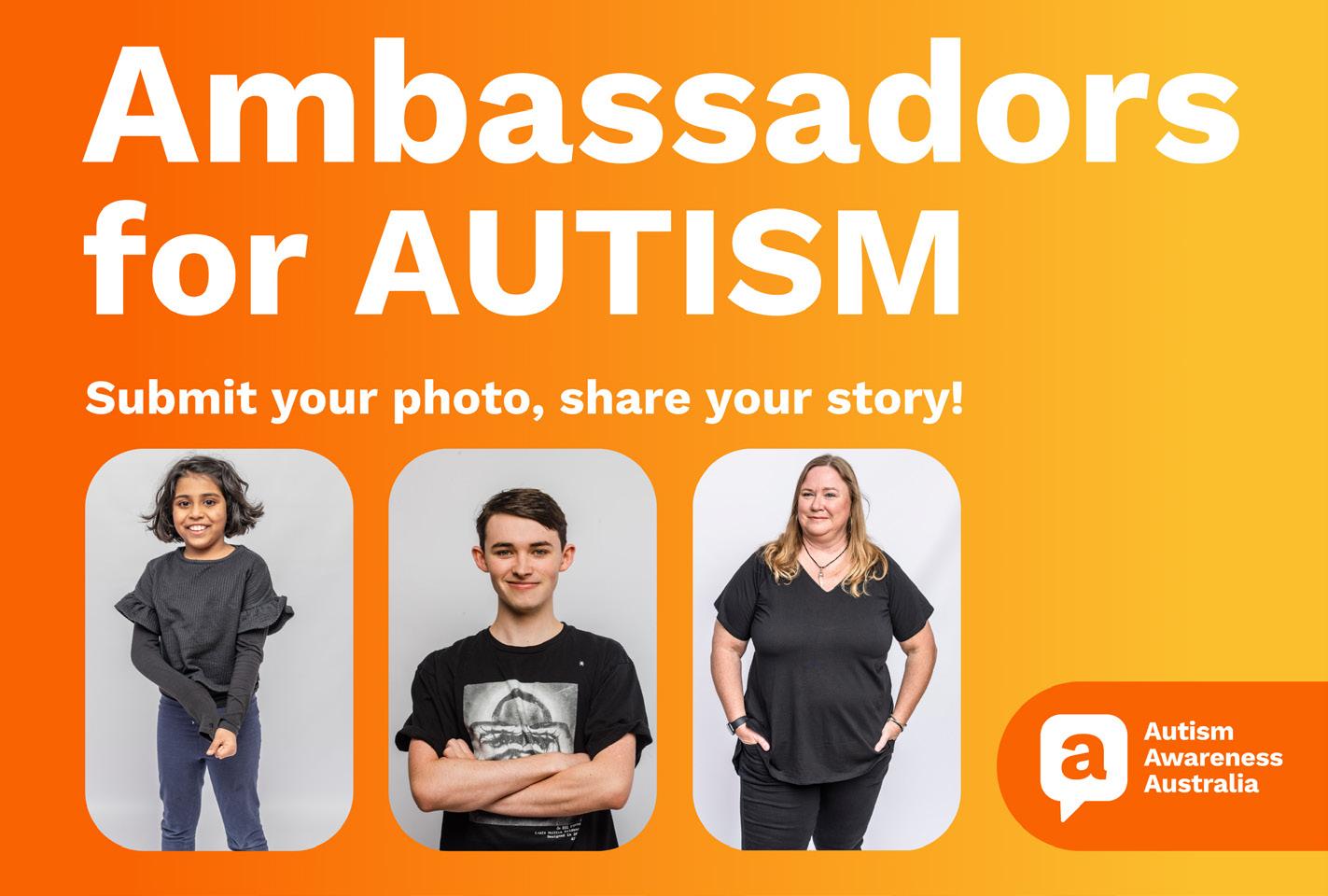
Link to... Autism
linkonline.com.au 69
Sarah with labradoodle Wilson and sons Cooper & Harvey who are on the spectrum
Simply Helping people with autism through flexible home support

While there is still plenty of work to be done, our society is beginning to embrace neurodiversity and treat people of all abilities with understanding, equal treatment, and support. As a result, we’re seeing a great increase in services and resources to help people with autism live a happy and healthy life at home.
Simply Helping director and founder Angela Feery-Richards, spoke about the home support provider’s approach to assisting people diagnosed with autism. “Autism looks and presents differently from person to person. That’s why we have a real responsibility to offer flexible
and tailored services that truly meet people where they are,” Feery-Richards said. “A person-centric approach is the only appropriate approach.”
Home support for people with autism can involve a single service or a mix of multiple services, depending on their needs and preferences. “We support many people with autism across Australia, and in each case, the level of support we provide can differ,” she said. “For example, one person might engage us for companionship only, whereas another might require consistent support with bathing and meals. Our services are diverse enough that we can usually help no matter the circumstances.”
According to Feery-Richards temporary home support is becoming increasingly popular for people with autism. “It’s interesting because we are seeing a rapid increase in requests for shortterm respite support. Usually, respite support will involve us visiting for a few hours or even a whole day to assist a person with autism while their primary support person is absent. I think people are really starting to see the value in this arrangement; it avoids burnout for the family member but also offers some variety in routine and exposure to new experiences for the person we’re supporting, all without the uncertainty of leaving home; it’s a win-win.”
Simply Helping’s person-first approach has led to positive outcomes for people with autism in unique and unexpected ways. “Last year, we connected with a young man with autism who was showing an interest in arts and crafts. His family were looking for someone to spend some time with him and encourage this new creative streak, so we organised a few weekly visits and watched his hobby grow from there. Recently, he expressed an interest in leaving home and attending a local craft workshop, which was unusual for him, and we made it happen. His support worker helped him gain the confidence to step outside his comfort zone, and he had an absolute ball,” she said. “It was great to see.”
Simply Helping is a registered NDIS and home support provider servicing locations across Australia, including Victoria, New South Wales, Queensland and Perth. With flexible and tailored support options, Simply Helping enables people with disability to live comfortably in their own homes. Visit simplyhelping.com.au to learn more.
Link to... Autism April/May 2024 70
Investigating the rise of autism
By Anita Aherne
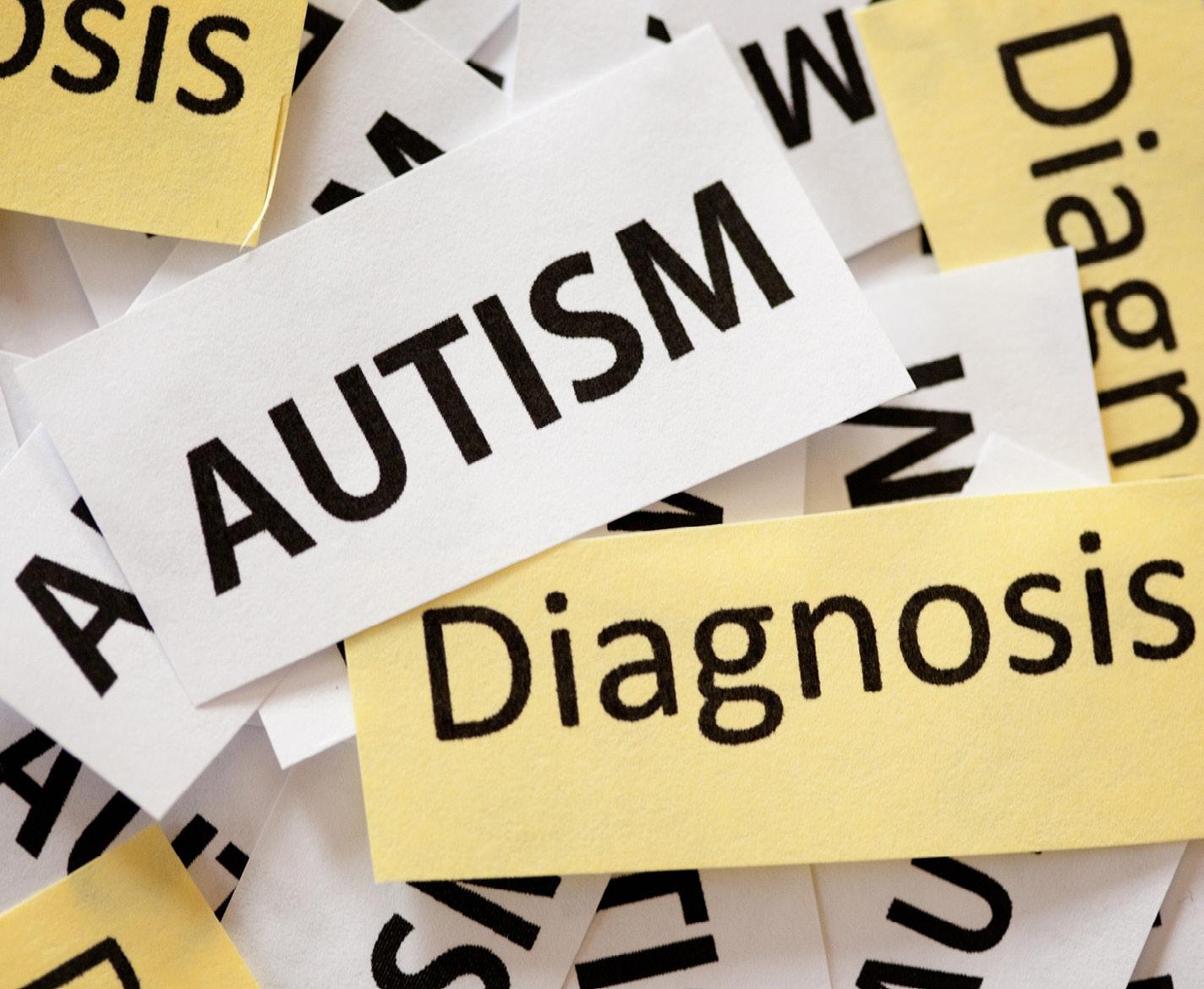
Recently, there’s been a surge in autism diagnoses, prompting discussions on the reasons why.
The apparent rise in autism diagnoses can be partly attributed to increased awareness and improved screening methods. Education campaigns, outreach and advocacy efforts contribute to better recognition of autism in adults and children. This leads to earlier identification and access to interventions, enhancing quality of life. Ongoing research and diagnostic advancements refine detection and support approaches and other contributing factors.
A complex interplay of factors
The increase in autism diagnoses stems from various factors, notably the evolution of diagnostic criteria. Diagnostic manuals like the DSM have undergone revisions, expanded the definition of autism and integrated related conditions like Aspergers syndrome. This has enabled more
accurate identification of individuals on the spectrum, including those previously overlooked. Before these revisions, autism diagnosis relied heavily on clinician interpretation, lacking specific criteria.
The third edition of the DSM in 1980 marked a significant shift, categorising autism as a separate diagnosis from schizophrenia for the first time. This clarified diagnostic criteria, leading to improved recognition and diagnosis of autism. Consequently, many autistic adults are only now receiving diagnoses due to the refined understanding and definition of the condition.
Intersectionality with other conditions
Furthermore, the intersectionality of autism with other neurodevelopmental conditions, such as attention deficit hyperactivity disorder (ADHD), has become increasingly recognised. Previous diagnostic guidelines may
have overlooked individuals presenting with symptoms of both autism and ADHD. However, advancements in understanding and diagnostic tools have shed light on the co-occurrence of these conditions, resulting in more accurate assessments and diagnoses.
Premature birth and autism link
Recent research indicates that being born premature may correlate with a higher likelihood of being diagnosed as autistic. Particularly, infants born extremely premature, within the range of 22 to 27 weeks, exhibit the highest susceptibility, with a 6.1 per cent increased chance of being identified as autistic. However, this tends to diminish as gestational age increases. Advances in medical care and the decrease in mortality rates among premature infants may also contribute to the increased detection of autism within this population.
Global awareness and advocacy
The global surge in autism diagnoses reflects a universal trend fuelled by increased awareness and advocacy efforts. Social media platforms have played a pivotal role in disseminating information about autism, fostering greater understanding and acceptance within communities worldwide.
Understanding the multifaceted nature of the rising prevalence of autism diagnoses requires acknowledging various contributing factors. These include changes in diagnostic criteria, heightened awareness, recognition of overlapping conditions, and the potential impact of prematurity. Addressing the complexities of autism necessitates a comprehensive approach. By advocating for inclusivity and supporting autistic individuals, ongoing research and collaborative efforts can address the community’s diverse needs and promote a more inclusive society.
Read more at:
www.livingonthespectrum.com.au
AUTISM linkonline.com.au 71
Autism SA – Celebrating 60 years

In 1964 a group of autistic people and their families did something groundbreaking – they formed the first autism advocacy and support organisation in Australia – Autism SA.
Back in the 1960s, little was understood about autism. Through the efforts and advocacy of the autism community, Autism SA and other peak bodies across the country, today autism is widely recognised and better supported.
“However, there is still a long way to go,” Autism SA CEO Helen Graham said, “but we have definitely seen huge improvements in the support and therapy that autistic people receive.”
Back in the 1960’s, there was very much an appetite to find a ‘cure’ for autism.
“A welcome shift has been the adoption of neuro-affirming practices by clinicians and service providers.
That means rather than viewing or treating autism as something to fix, we focus on individual’s strengths and abilities. This results in better outcomes as well as boosts their confidence and belief in themselves,” she said.
The way autism is supported in schools is also improving. “Educators know so much more about autism now than they did even 10 – 15 years ago. And it’s imperative that they do with the high rate of children being diagnosed.”
People with an autism diagnosis account for 45 per cent of all NDIS participants, with 75 per cent of those being diagnosed under the age of 24.
“More teachers are making simple adjustments in their classrooms to support autistic students such as providing fidgets, spaces to regulate and allowing students the use of earphones to block out sounds while studying.”
But there are still barriers in the classroom and schoolyard from many autistic kids.
“Our school inclusion program is one way we are supporting autistic students to get the most out of their schooling. We work with their teachers and families to provide strategies that are relevant and beneficial to the child.”
When Autism SA was founded it focused only on autistic children, but today provides services and advocates for people of all ages. For autistic adults, employment is an area that the organisation is looking to address.
“Only 38 per cent of autistic people are employed compared to 83 per cent of people without a disability. And one of the barriers for autistic people getting a job is getting past the first hurdle of the application and interview process,” she said. “We are tackling this through the development of an online resource to encourage and support employers to make their recruitment practices more accessible and inclusive for the neurodivergent community.”
Another area of focus is to help improve inclusion and accessibility in the community.
“Through a grant from the Department of Social Services, we were able to develop an online resource, The Autism Friendly Charter, to provide businesses with free, online training to make their business more inclusive. We’ve also partnered with South Australian icons like the Adelaide Fringe, Drakes Supermarkets and the Arkaba Hotel to help them introduce inclusive initiatives,” Graham said.
During autism month in April to celebrate its 60th anniversary, Autism SA is aiming to raise $60,000 to support autistic South Australians. Visit www.autismsa.org.au to learn more.
Link to... Autism
72 April/May 2024
MP Rhiannon Pearce, Autism SA administration assistant David Palmer, Drakes Supermarkets director John-Paul Drake, MLC Emily Bourke, Autism SA CEO Helen Graham, Autism SA volunteer Jamie Rossiter and Autism SA receptionist Anna Hennessy, at the launch of Quiet Time.
Young artist wins national award
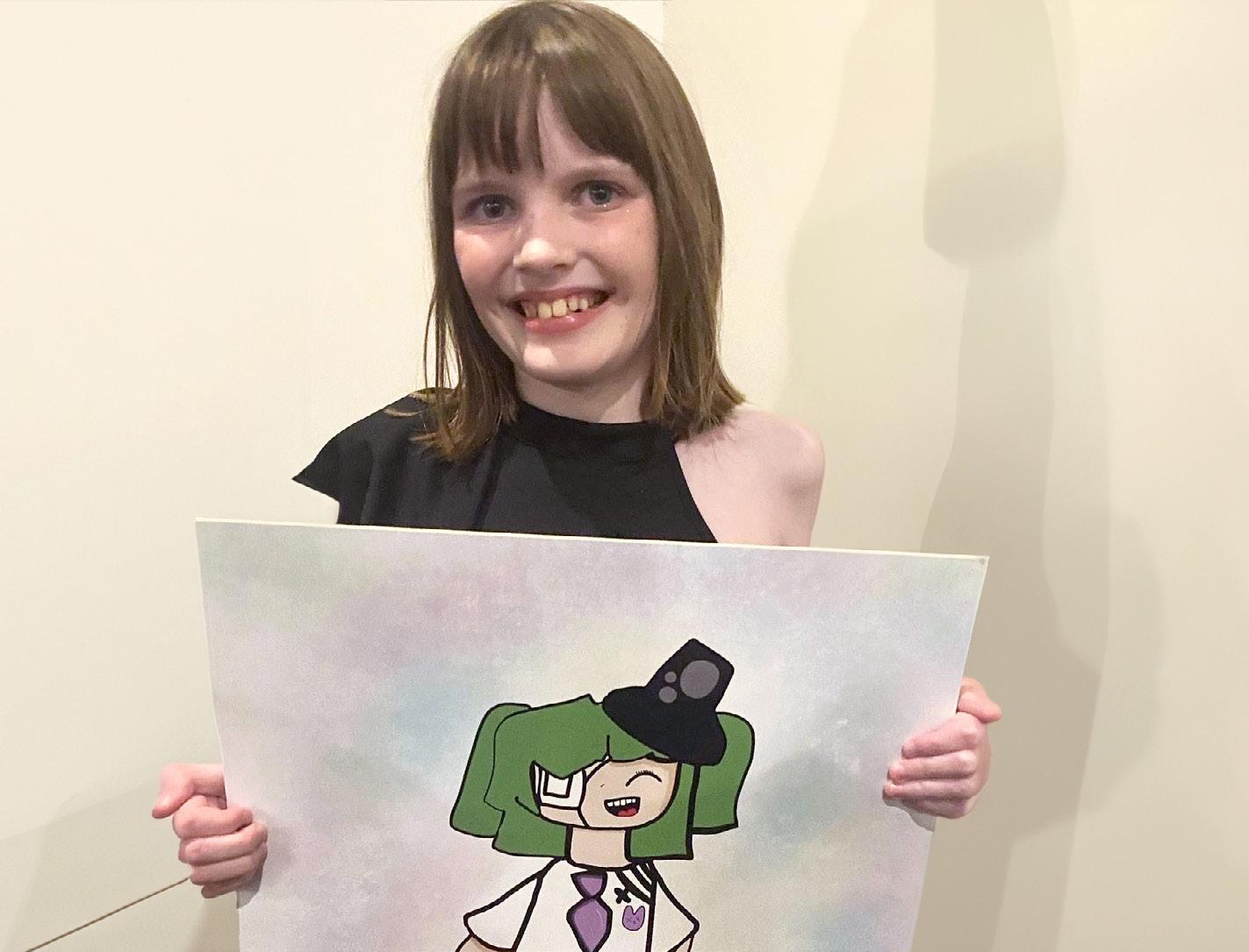
Ten-year-old Phoebe Webber, recently took home the National Junior Australian Art Award at the Young Australian Art & Writers’ Awards.
The Queenslander initially enrolled in an after-school art program as a way to express herself and interact with people of different ages and genders.
“I have always loved art, it helps me calm down and lets me relax,” she said.
“My mum encourages me and puts my creations up at her work. I create characters of future cartoons in my head like moving imagination pictures.”
Phoebe described the moment she was told about the award as: “like my heart was stepping on a Lego brick. I felt very excited, but kind of nervous”.
The award has further encouraged Phoebe to pursue a career in art. “I would love to make cartoons on TV,”
she said. “I even thought about what the show would be called, ‘Phoebe the Aussie Warrior’ and I would be the main star.”
She urges other young people living with a disability to have a go in the arts.
“Because I have autism it makes me able to think in my head all these unique character creations. “I just love making art in all ways - paper, iPad, paint or crafts. I want to inspire others to make their own funny characters, just like I have.”
Mission Australia NDIS local area coordinator Deborah Harding has worked with Phoebe for the last three years at the NDIS-funded Creative Soul Session. “I was able to support the family with navigating the NDIS which included building a plan, linking them to services and providing referrals,” she said. “It is through this referral process that Phoebe was encouraged by myself and her Mum to try social art opportunity. “The program provides a meaningful, creative, social and sensory outlet for Phoebe.
“It has been so pleasing to see Phoebe attain such a prestigious award and overcome some personal challenges by travelling to Melbourne, a new and unfamiliar setting with unfamiliar people, to receive the award,” she said.
AI test offers potential for autism
Artificial intelligence could deliver a faster and more accurate way to screen for autism according to new research from the University of South Australia and Flinders University.
Using a test that measures the electrical activity of the retina in response to a light stimulus, researchers deployed AI to identify specific features to classify autism, by measuring the retinal responses of 217 children aged 5-16 years, 71 with diagnosed ASD and 146 without an ASD diagnosis. The found that the retina generated a different retinal
response in children with ASD compared to those who were neuro typical.
The strongest biomarker was achieved from a single bright flash of light to the right eye, with AI processing significantly reducing the test time, and higher frequency components of the retinal signal were reduced in ASD.
UniSA researcher, Dr Fernando Marmolejo-Ramos said the test could provide clinicians with an improved method for autism diagnosis, fasttracking much needed supports for thousands of children on the spectrum.
“Early interventions and appropriate support can help children with ASD improve their quality of life, but right now, there is no simple ‘test’ for ASD which means that individuals often require lengthy psychological assessments and reports to get a diagnosis,” he said.
“This test is much quicker, and we can collect data, and complete a screening for autism, all within as little as 10 minutes. And importantly, the test is non-invasive and tolerated well by children, which makes the process so much easier for all involved.”
Link to... Autism
linkonline.com.au 73
Phoebe Webber with her digital piece ‘Kreea, The Ghost Girl’.
Where accessible technology is making a difference
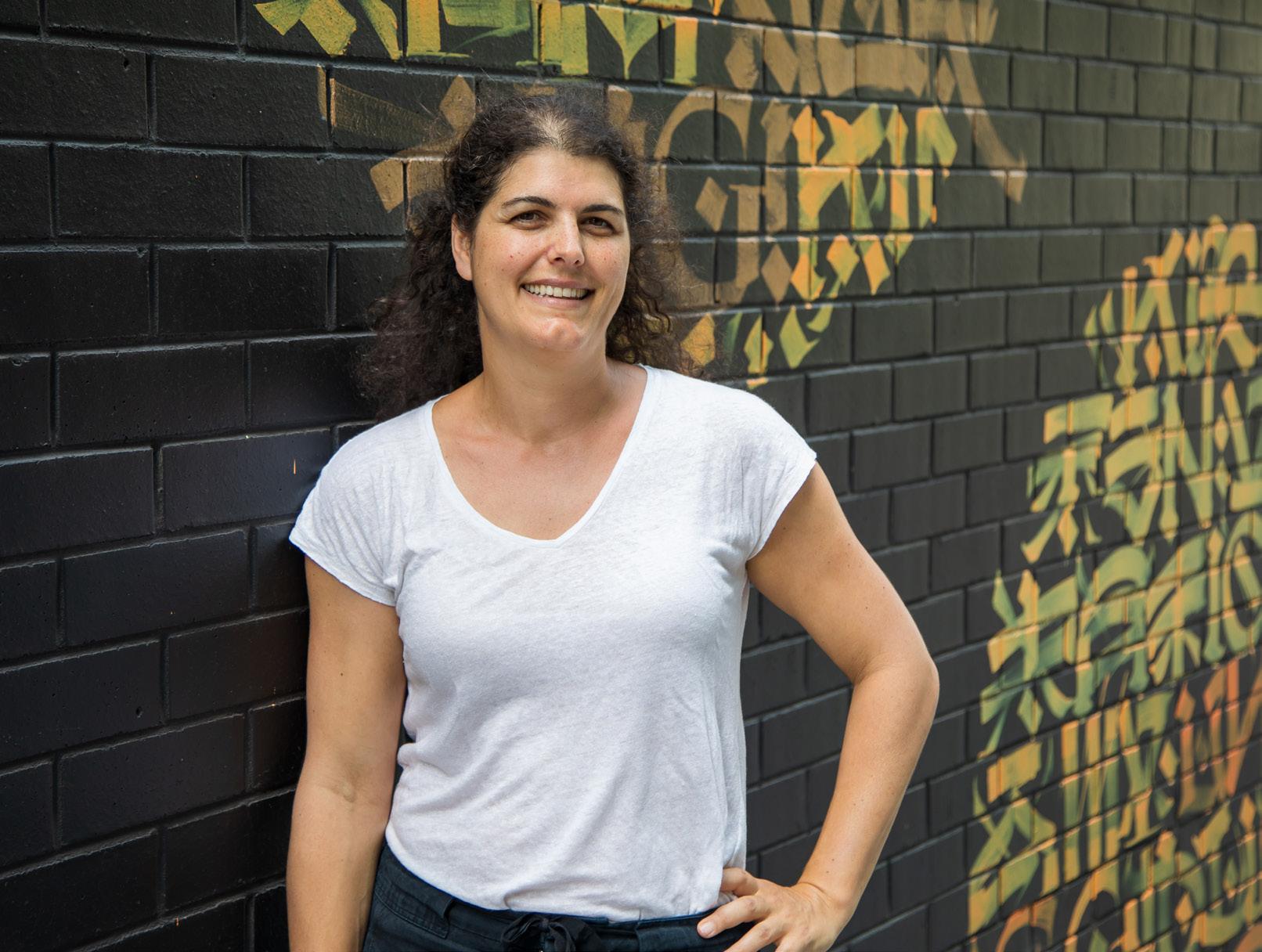
Technology can change lives, and that’s exactly what Laurianne Sitbon is trying to use it for.
The Associate Professor and Academic Lead of Diversity and Inclusion at Queensland University of Technology is working on multiple projects to make technology more accessible, based on co-design with people with intellectual disabilities.
Her research welcomes participants with intellectual disabilities, including many from a long-term partnership with Endeavour Foundation, to attend workshops at QUT where they trial new devices and contribute to the improvement of inclusive technology. These devices strive to increase the engagement of participants and provide them with new ways to express themselves. (Read more on Page 34.)
“Being in academia, I choose to put my effort to where it can help people,” Sitbon said. It’s all about finding… particularly with the new generation of very advanced artificial technology, what it can change and what opportunities are in there for people with intellectual disability.”
She said AI offers vast possibilities for accessible technologies that can be difficult to imagine. “I think it’s a fascinating new area, around how do we engage people in co-designing those systems? It’s something that I’m grappling with at the moment. The more we bring technology to people the more we see opportunities to explore new designs, new prototypes, to advance a little bit more.”
Many of her current projects are focused on learning, however last year she began looking at opportunities to
better support people at work too. As part of a team of researchers, she has been visiting, observing, and talking to those in supported employment.
“Ultimately, we’d like to see how technology could support people in open employment as well.”
Other possibilities have also presented themselves through her work, around smart home technology which could assist with independent living for people with intellectual disabilities, as well as how to make autonomous vehicles more accessible.
Sitbon referred to her co-design process as “organic” and a sort of “ongoing loop”, involving long-term partnerships with participants. “That creates a different type of connection. They know that they can tell us what they think.”
The process is made very accessible for participants, who can express their thoughts in a way most comfortable to them, whether that be verbally or non-verbally or even through feedback provided by a social worker.
Once the research team is aware of how a piece of technology keeps someone engaged or assists them, they can build on that and consider further opportunities to use technology to bring people together. The findings then inform future designs and research projects.
According to Sitbon the speed of advancements in technology means it’s vital for any technological development to be “accessible to everyone, full stop”, to enable the connection it fosters.
“It has to be accessible for it to make that difference. We can’t just assume that it will be sufficient for it to exist to create that new opportunity,” she said.
Link to... Assistive Technology
74 April/May 2024
LaurianneSitbon
Travel options when experience matters
In the vast landscape of supported travel providers, the task of choosing the right one can be daunting. With an ever-growing number of operators in the market, each boasting unique differences, it’s crucial to make a well-informed decision. Your travel experience hinges on selecting a company that not only meets your specific needs but also you receive the best travel experience possible.
The Leisure Options’ difference
Leisure Options stands out as an IATA accredited, fully licensed Travel Agency and a NDIS registered service provider with over 30 years’ expertise in providing unforgettable supported travel adventures.
The dedicated travel team offers comprehensive industry and destination knowledge ensuring your travel requirements are met with meticulously crafted holiday itineraries that enhance your experience within
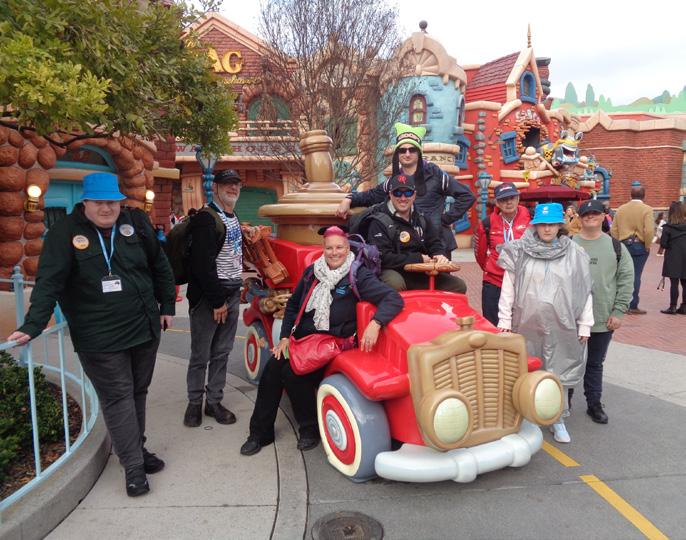
your capabilities, guaranteeing a memorable and enjoyable getaway.
Leisure Options prides itself on creating truly memorable holidays for each of their travellers preferring to travel with smaller groups to ensure that you can actively participate in their holidays whilst receiving the necessary care and support.
With a view to creating a family-like atmosphere whilst on tour, luxury houses or apartments are selected wherever
possible. Additionally, cruise holidays are offered with twin share cabins allowing for a more comfortable experience.
Throughout the holiday, culinary needs are met with three delicious meals daily. Dining experiences include a mix of in-house dining and dining at local restaurants and cafes. Dietary needs are fully catered for, promoting health choices and diverse cuisines.
Leisure Option’s tour leaders are committed to delivering exceptional service and authentic experiences, making each holiday truly unforgettable. Their unique knowledge of the destinations visited ensures that you can relax and enjoy your journey. Tour leaders all have appropriate accreditations and NDIS checks.
If you believe that Leisure Options is the right fit for your travel needs, reach out to the friendly travel team at Tel: 03 9646 0666 or 1300 363 713 or via mail@leisureoptions.com.au

•
•

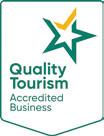




For more information call 1300 363 713 or visit our website www.leisureoptions.com.au We support the Great holidays and travel for people with disabilities Focus on providing holidays that allow maximum choice, loads of fun, high staffing ratios, commitment to individual needs, and a supportive holiday environment Choice of either group or individualised touring
Respite care offered in a stimulating and fun-filled environment Over 80 departures annually to local, national and international destinations
•
Passionate, energetic, and professional tour leaders with extensive qualifications and a world of experience
Registered service provider with the NDIS With more than 30 years’ experience in both the travel and disability industries, Leisure Options is Australia’s only national award-winning, accredited travel agent specialising in supported travel for the disability sector.
Link to... Travel & Leisure linkonline.com.au 75
Liveable Housing Design – an advocate’s journey
By Jane Bringolf
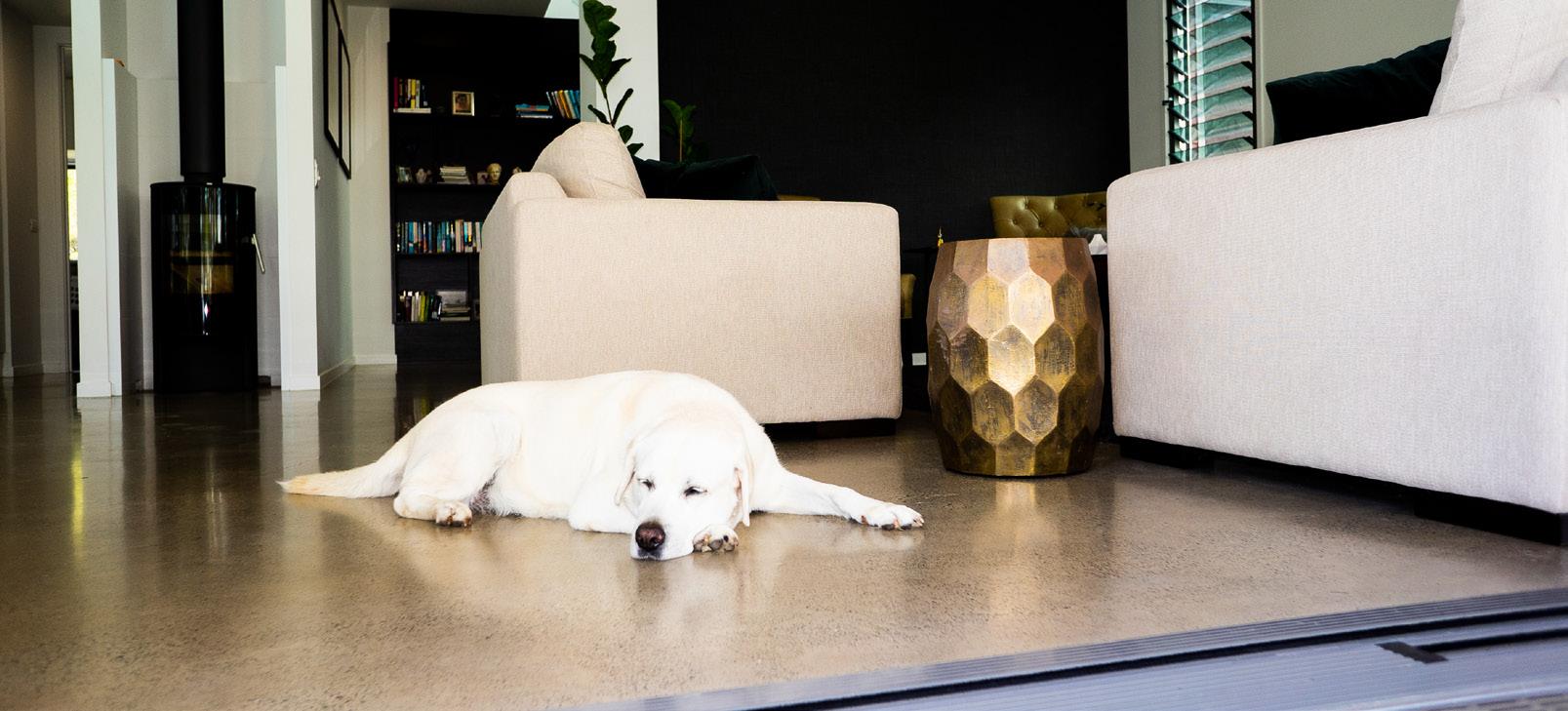
For several years I worked alongside occupational therapists and observed them giving advice on home modifications. After a while I thought, “why do we keep building homes as if we are never going to grow old?” And so began my quest to find out why. I thought that if I could find the answer to that question, it would help the housing industry adapt their designs to make all homes more accessible.
The first thing I found out is that the housing industry talks about our homes as “products”. But unlike products such as cars and washing machines, it is not under the control of one company like Ford or Samsung. Instead, the industry is a complex system of individual stakeholders who synchronise their efforts for maximum efficiency.
Stakeholders include designers, engineers, builders, tradespeople, building certifiers and finance companies. To maintain efficiency all parties need to stick to mutually agreed rules and accepted ways of doing things. Hence building regulationseveryone knows what to do and what to expect. So, why not regulate for a few design tweaks such as a level entry and wider doorways?
This is where I found the real barrier. While industry stakeholders told me that universal design is a “good thing”, they weren’t going to support a change in regulation. I joined up with the Australian Network for Universal Housing Design (ANUHD) because it was time for citizen action. ANUHD played a major role in advocating for design changes to make homes more accessible. With the support of the then junior Minister for Disability, Bill Shorten, disability advocates and housing industry representatives developed the Livable Housing Design Guidelines. They were published in 2010 as a voluntary code, not a regulation.
By 2016 it became obvious voluntary guidelines were not going to work. ANUHD volunteers lobbied key politicians to challenge the industry’s reluctance to mandate the guidelines. In 2022 the Livable Housing Design Standard was mandated in the National Construction Code. A big win for citizen action, but there is one last step in this story before we can say, “success!”
Before the standard can be fully enforced, states and territories are required to officially adopt it into
their building code. Various dates for adoption have been set, but after intense lobbying by industry, adoption dates have been pushed back more than once.
The good news is that Queensland adopted the standard in October 2023. Other states and territories have set dates for 2024 and 2025. We have yet to see if these dates remain firm. NSW is lagging with no commitment to adopt the standard at any time. The standard covers level entry, doorway and corridor widths, circulation spaces, bathrooms, showers and toilets. The requirements will help many people age at home for longer and wheelchair users will be able to visit other people in their own homes.
Centre for Universal Design Australia (CUDA) has supported ANUHD’s 20-year campaign for mainstream accessible housing. To help support implementation CUDA acquired the licence from the Australian Building Codes Board to run their Liveable Housing Design course. The online course is for industry practitioners and those involved in home modifications. It covers all the technical detail in the standard and is not just a good way to get ahead of the regulation, it’s good design for everyone at any time.
CUDA is offering Link readers a special offer. Use the LINK20 coupon code at the checkout to get $20 off the full price of the course until July 31,2024. Access the course via the CUDA website. The course is presented visually with voice-over, captions and a transcript.
Visit. universaldesignaustralia.net.au/ livable-housing-design-course/
Dr Jane Bringolf, chair, Centre for Universal Design Australia.
Link to... Universal Design
76 April/May 2024
Credit: Taylor’d Distinction Building Design
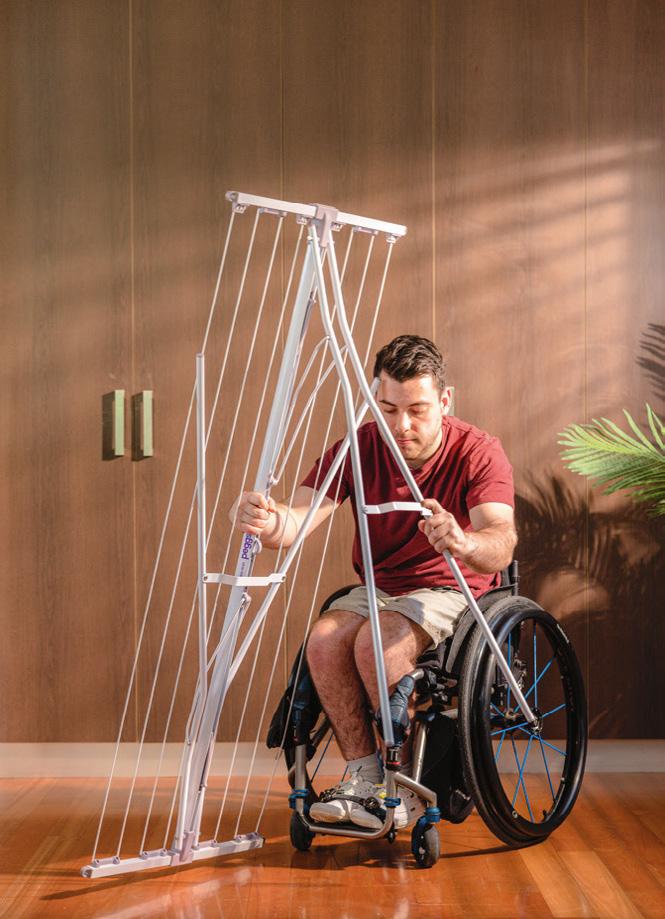
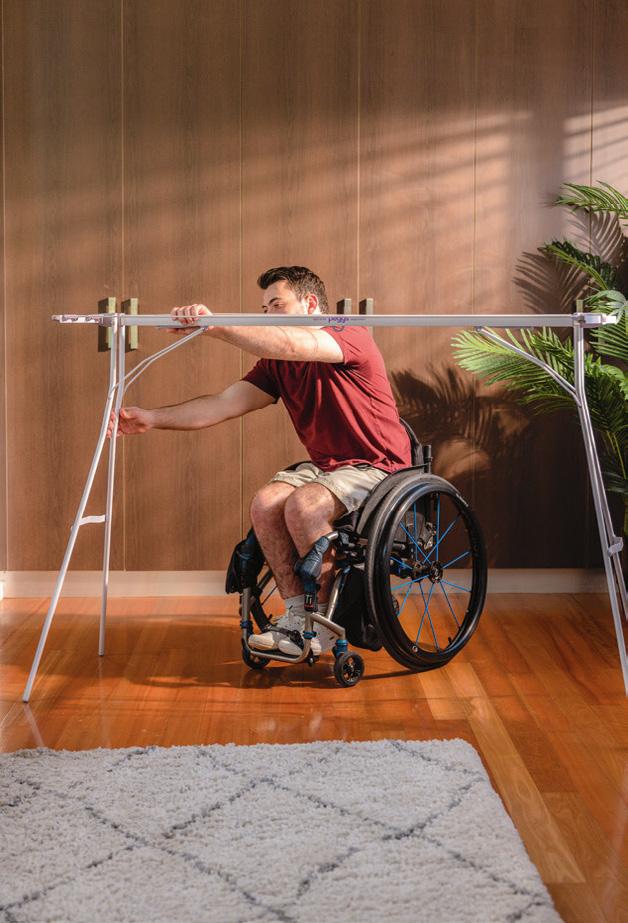
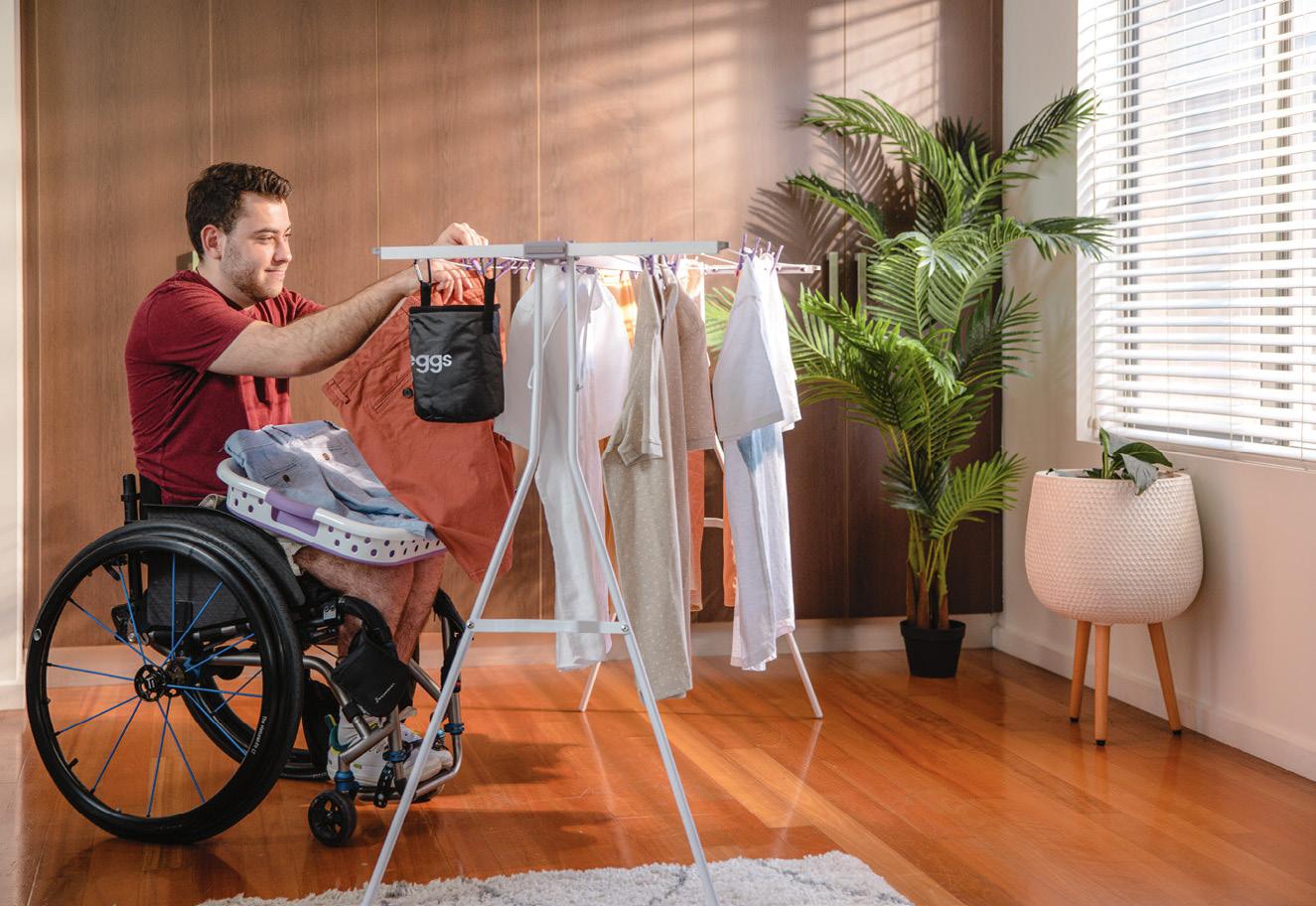
Peggs Handy Lines® are more than just a laundry solution; they are tools for capacity building and enhancing daily living. By addressing the challenges of carrying laundry and mitigating hazards associated with fixed outdoor clotheslines, our innovative approach promotes independence, fine motor skills, and safety for individuals of all ages.
With a focus on personal care and injury rehabilitation, our Handy Lines® contribute to maintaining dignity, health, and overall wellbeing. As low-risk, low-cost assistive technology, they offer practical support while facilitating independence and enhancing quality of life.
Key Features:
• Super lightweight and stable
• Use indoors and outdoors
• Flat to ready in seconds
• Arrives fully assembled
• Ideal for those with mobility challenges
• 10-year warranty
Registered as Low Cost Assistive Technology for Household Tasks and Personal Care and Safety.
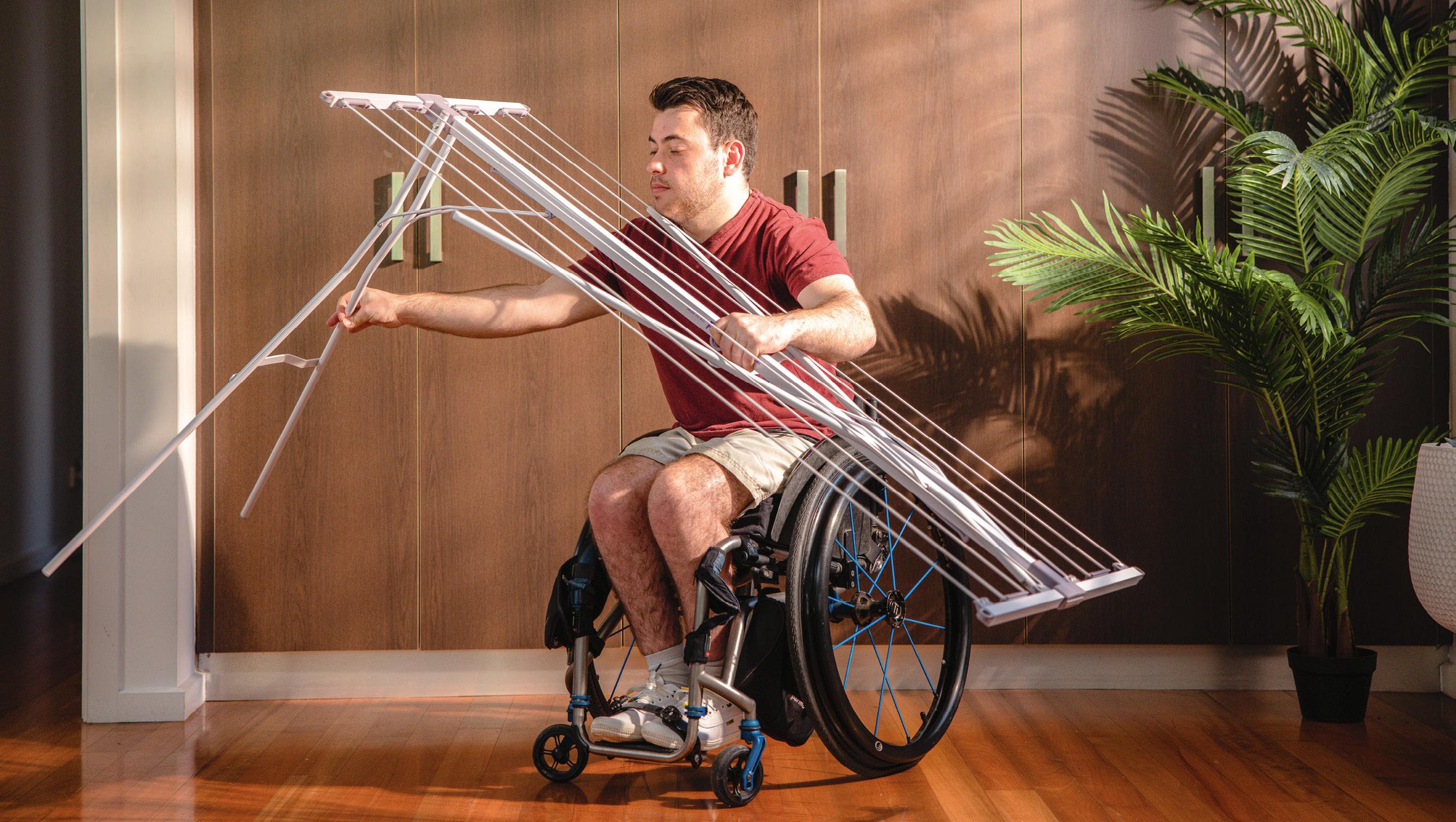
Chat with us or demo our Handy Line® Range at the Brisbane ATSA Expo.
Caleb Crowden
Para Table Tennis Champion
LEARN MORE www.peggs.com.au Freecall : 1800 111 811 NDIS Registered Provider
Harnessing the power of assistive technology

Assistive technology (AT) is advancing at an incredible pace, with devices that not only keep up with our digital lives but also enrich the daily experiences for people living with cognitive challenges.
Among these AT innovations, are Bella Linda smart displays that can organise daily tasks such as to do lists, medication management, event reminders and more.
Developed in Brisbane by Martin Viera and powered by DAKboard software, these large smart displays work over Wi-Fi and offer a plethora of fully customisable features, from the incorporation of weather, clocks, custom text to sizing options, and more. There is also an optional touch screen feature for easy interaction and response.
Lee Anderson is a busy man with a young family, a fast-paced lifestyle and
a love for camping and the outdoors. In 2018, he sustained an acquired brain injury (ABI) affecting, among many things, his short-term memory and his ability to adequately manage the daily schedule at home.
After years of trialling varied strategies to compensate for his memory, he turned to, and now heavily relies on the use of digital calendars such as Google to prioritise and capture the details of his family’s day-to-day agendas as well as household needs.
“My calendar, to-do lists, as well as other important information are displayed in a prime location in my house, enabling not only me but my family and others who assist in the house to see, at a glance, the vital detail of the way our household is running,“ he said. “Our Bella Linda smart display is framed in sustainable wood and is placed in the central hub
area of our house.” Display sizes are available from 24”- 32”.
Since installing the technology Anderson has noticed a dramatic improvement in his ability to manage and process the vast amount of information contained within the family calendar. The feature that has really appealed to him and his family is the ability to create and switch between different displays using “widgets“ within the software.
On the main display, he was able to create an interactive countdown timer for family milestone events such as birthdays, display the weather forecasts for the coming days, and display information contained in supported apps such as Google Tasks.
Family information can be hidden away at the touch of a button behind a new screen linked to Google Photos.
Link to... Assistive Technology LeeAndersonandMartin Viera 78 April/May 2024
Vision Australia podcast collects award
Vision Australia Radio’s employment podcast series The Career Path has won an Excellence in Innovative Programming and Content award from the Community Broadcasting Association of Australia (CBAA).
The Career Path is focussed on employment and job seeking from a blindness and low vision perspective, Vision Australia Radio network manager, Conrad Browne cited the network’s commitment to providing a voice to unrepresented people in the community and the power of collaboration within Vision Australia.
“Winning is an acknowledgment of the network and organisation’s ability to collaborate with people who understand particular issues within our community of interest and who, alongside this, can bring a diverse skillset to the project.“
He thanked Vision Australia program producer Belinda Wilson, host
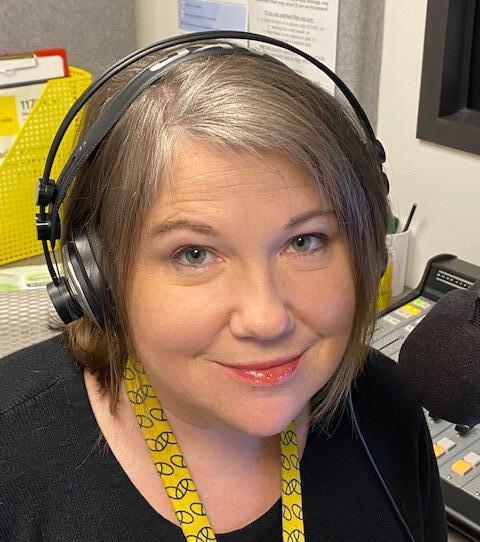
Shane Kendal for audio production support, and project coordinator Jason Gipps.
“The Career Path was created due to a passion for addressing inequality in employment. This podcast would not exist without our wonderful guests, who volunteered their time to share their experiences to show to other
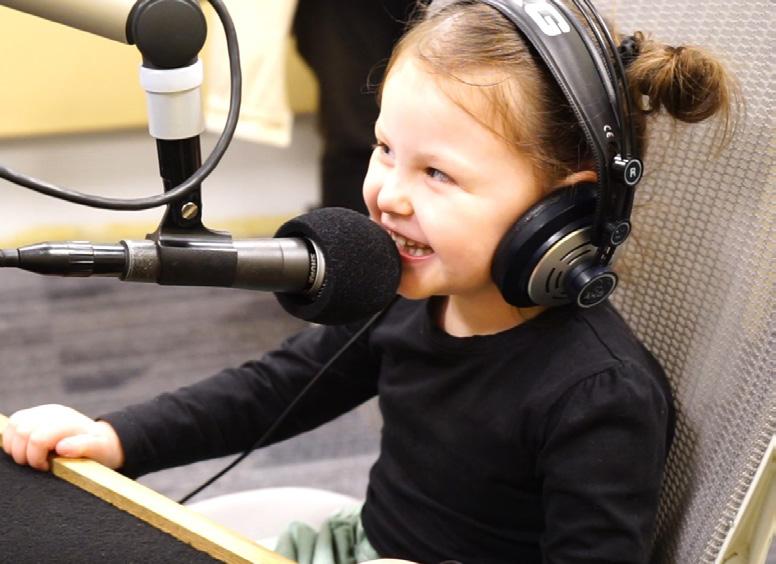
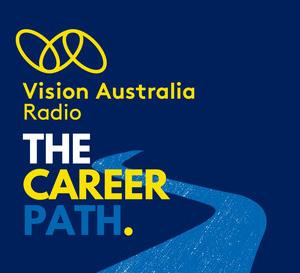
people what is possible,” Belinda Wilson said.
The award recognises an innovative programming or content initiative that gives platform to music, ideas, or concepts not normally addressed by traditional media outlets and connects with its audience.
Listen to The Career Path podcast at radio.visionaustralia.org/podcasts/ podcast-series/the-career-path.

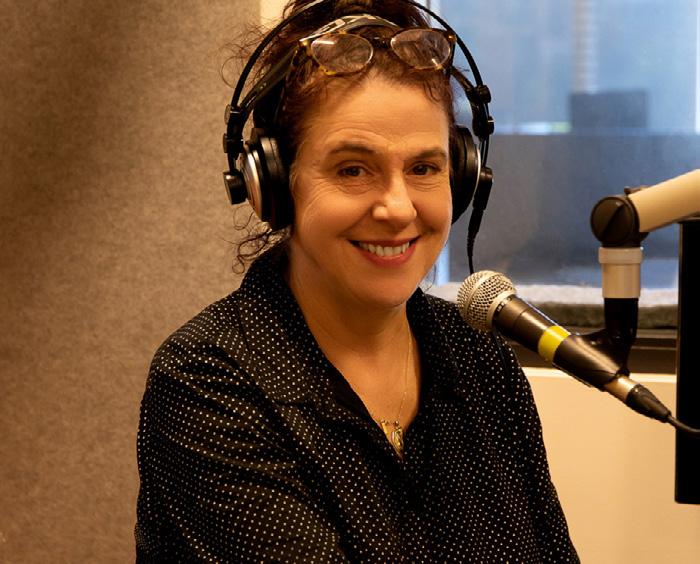
Vision Australia Radio is a national print disability audio content provider, offering accessible news and information via radio and podcast.
Stream our live radio services on your smart device or via varadio.org. Check out our range of disability focused podcasts on your favourite podcast app.
Link to... News
linkonline.com.au 79
Belinda Wilson
Adelaide shines at ATSA Expo
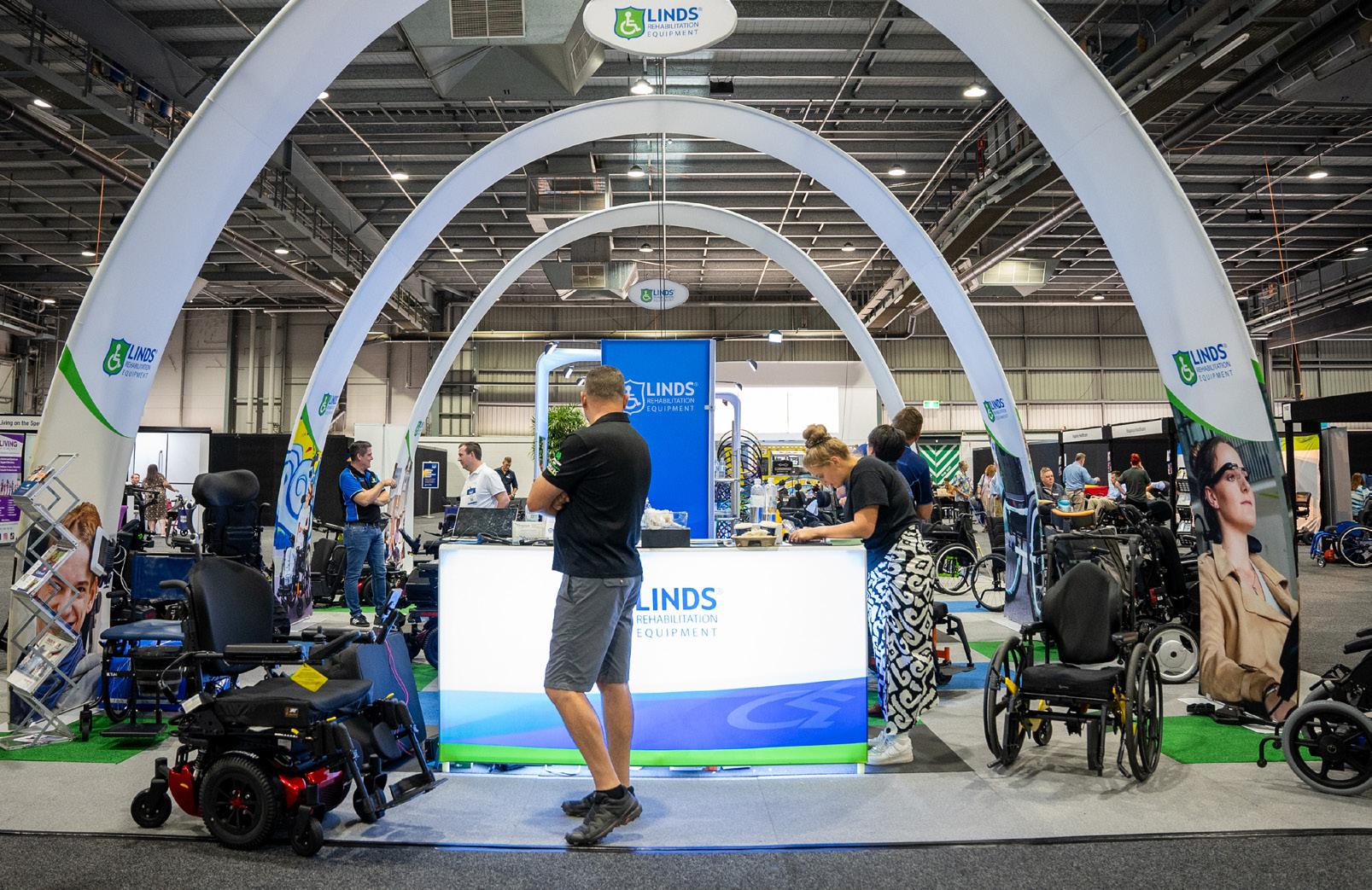
In warm sunny conditions, Adelaide hosted South Australia’s first ATSA Independent Living Expo in March. More than 70 exhibitors participated, and new features included a large group of micro disability businesses and a disability sports demonstration zone.
The ATSA Awards were presented by Mayor Michael Hewitson who officially opened the event.
Winners for the most attended seminar were, Kim Vien, senior occupational therapist, Royal Melbourne Hospital, Wheelchair and Seating Clinic and Lois Brown, national clinical education manager, ILS - for ‘Improving outcomes by strengthening the collaboration of the AT supplier and therapist’.
The best marketing campaign went to April Hobbs, publisher of Innovate Adelaide who was recently nominated for ‘South Australian Woman of the Year’. The best large stand award went to Linds Rehabilitation Equipment and Tab Timer collected the best small stand award.
Not only was there was a wide array of AT products on display, but the
event received strong support from political attendees.
ATSA CEO, Serena Ovens thanked Ministers Natalie Cook and Emily Bourke, Leader of the Opposition, David Spiers and Shadow Disability Minister Heidi Girolamo for taking time to visit the expo, meet exhibitors and hear of the benefits and challenges faced by both the industry and people with disability in acquiring much needed assistive technology.
Mayor Hewitson pointed out when opening the expo, the innovations in AT displayed at the ATSA Expo were: “incredible and the importance of providing a space for both allied health professionals and those who use AT to test and ask questions of manufacturers and suppliers unparalleled.”

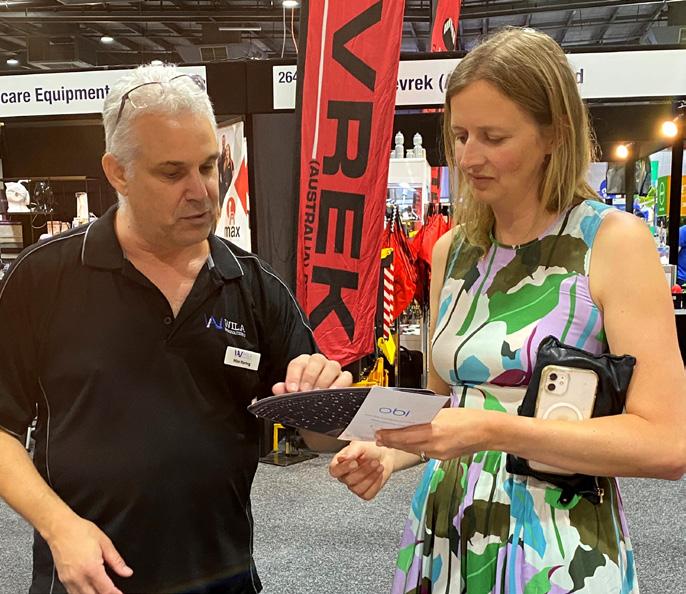
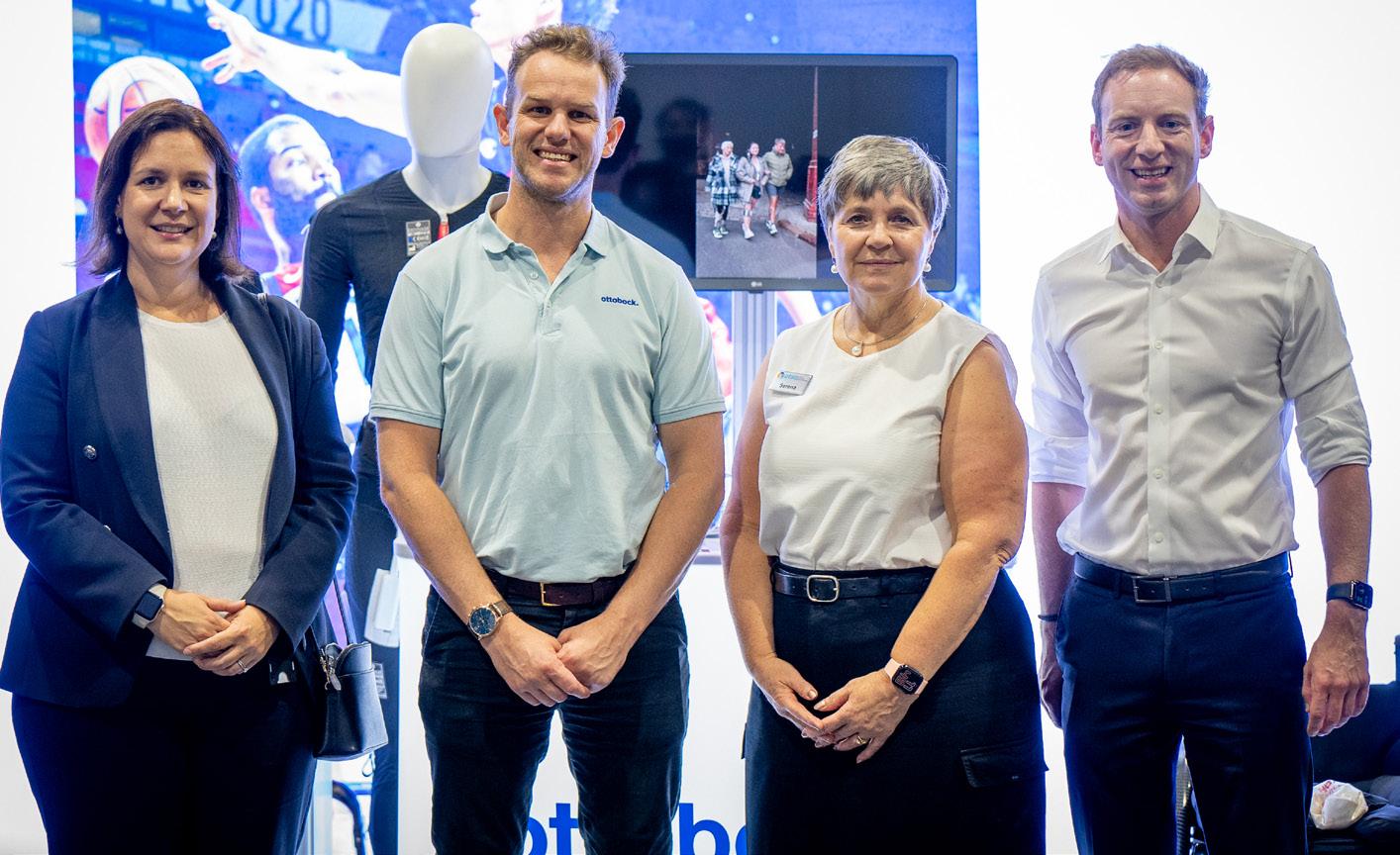
Link to... Happenings
Linds Rehabilitation Equipment winner of the best large stand award
ATSA CEO Serena Ovens with Minister for Human Services Natalie Cook
SA Assistant Minister for Autism, Emily Bourke and Wim Hartog (WILA Innovations)
80 April/May 2024
Shadow Disability Minister Heidi Girolamo, Luke Gordon (Ottobock), ATSA CEO Serena Ovens and SA Opposition Leader David Speirs
new book (Oxley is 1andwouldn’t
HAPPENINGS Book giveaway winners
The Goddard family from NSW were one of the winners in our recent braille book giveaway courtesy of Vision Australia. The family had a braille Lego set to try and learn some of the letter formations as the 6-year-old and 4-year-old were interested in making their names in braille, their mother Aja told Link, and thrilled to be introduced to the printed form. “We have all loved learning Craig’s story and exploring the braille with our eyes closed,” she said.
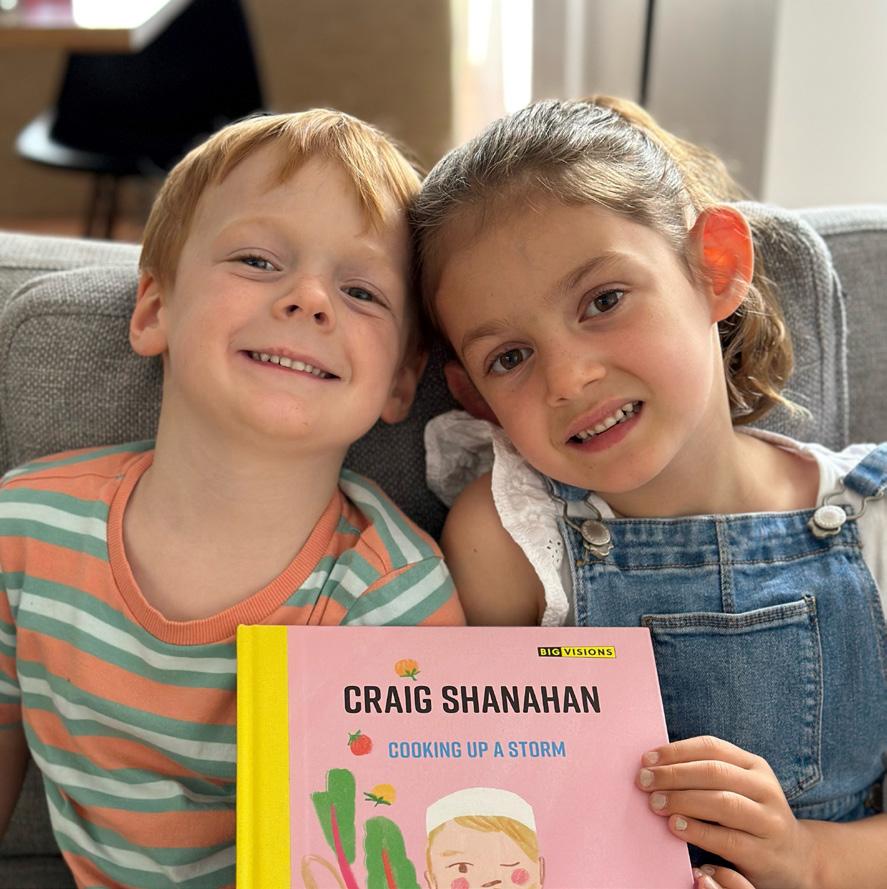
Junior wheelchair champion turned ballkid
A s Australia was gearing up for the Australian Open, Mastercard unveiled the first wheelchair ballkid pilot program that demonstrated the potential for wheelchair users to be ballkids in tennis tournaments. And 11-yearold Wheelchair Tennis champion Sonny Rennison, pictured, was the inaugural participant, providing feedback on the initial design sketches.
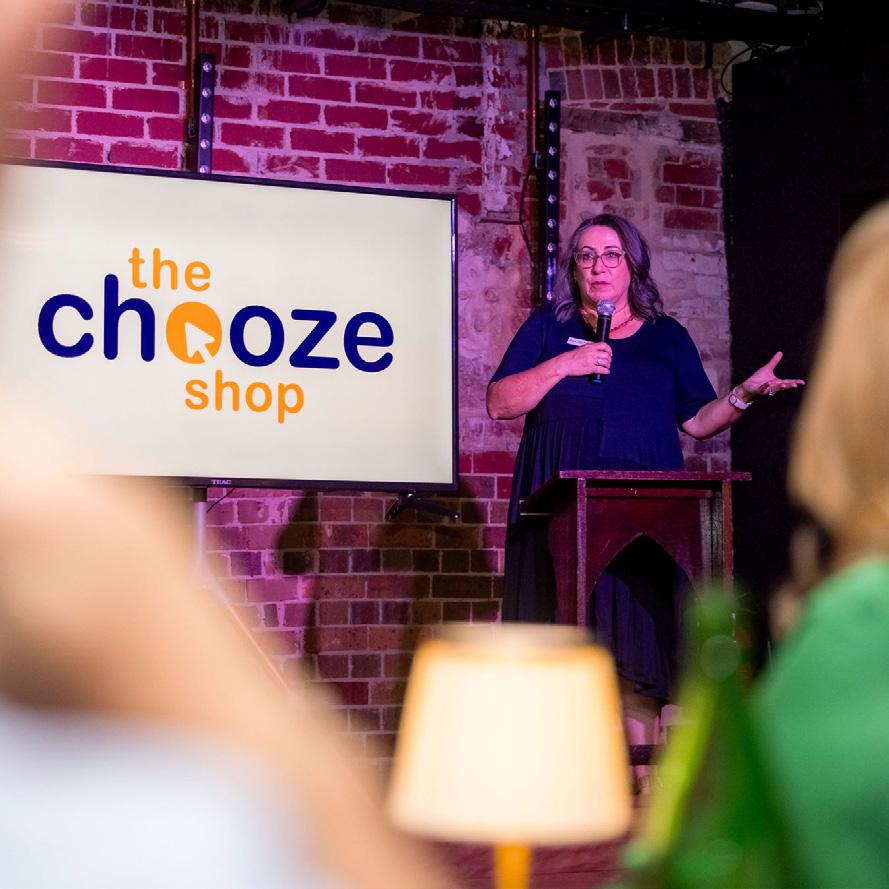
Chooze Shop launches online market place
A n online store for assistive technology, the Chooze Shop, opened at Adelaide’s first full accessible nightclub, Confessions, to a full house.
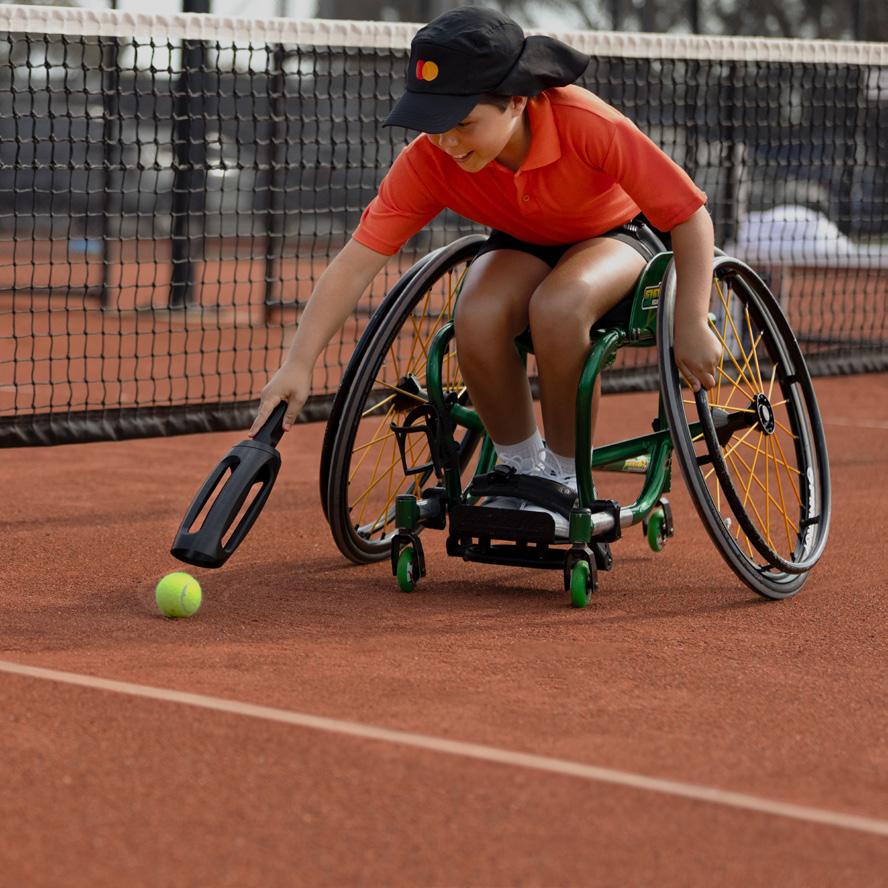
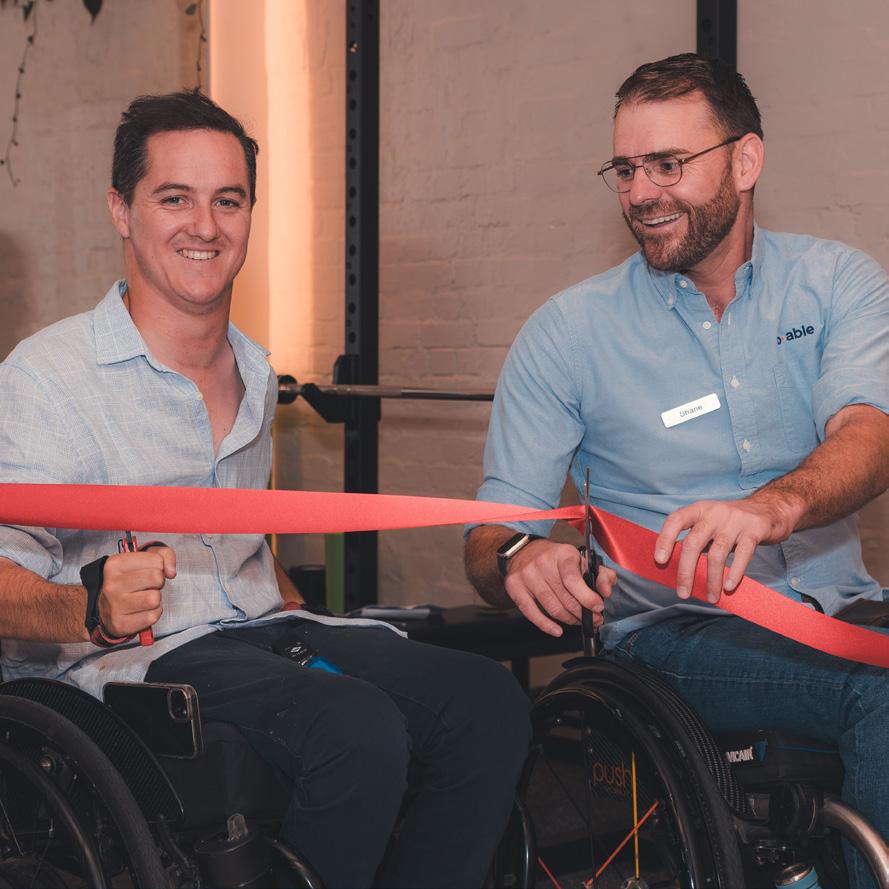
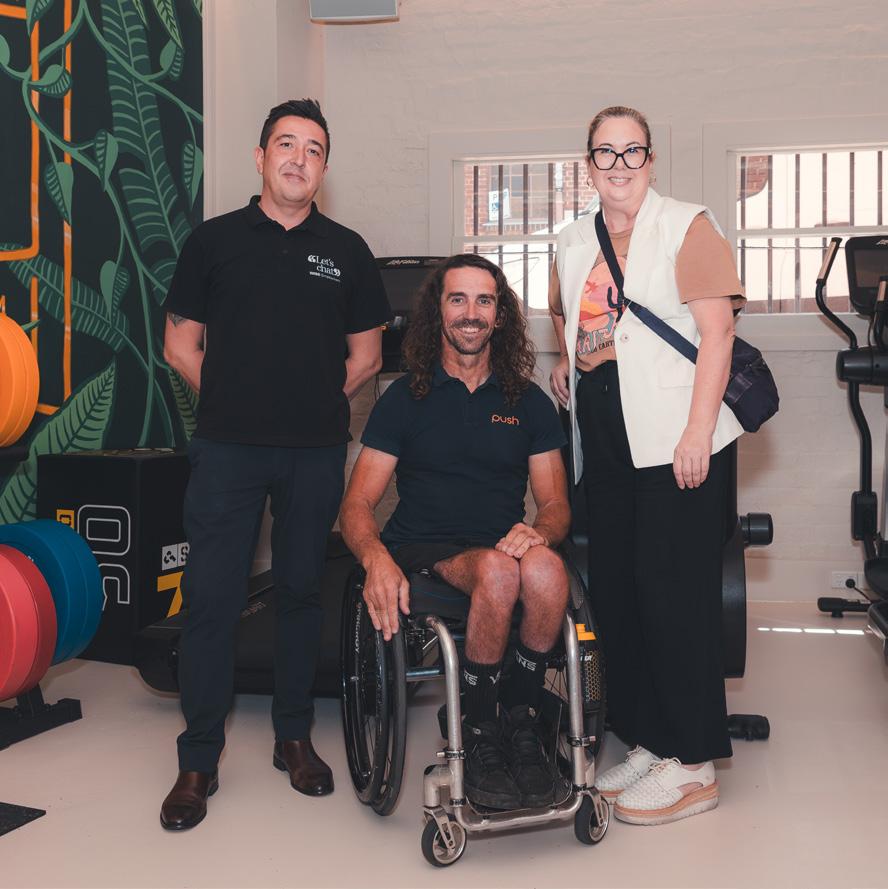
“I hope we can show other kids in wheelchairs that nothing is impossible and to keep pursuing their dreams,” he said.
Co-able Fitness opens all doors
Australia’s first membershipbased, all-accessible gym has opened in Port Adelaide. Co-able Fitness features state-of-the-art adaptive equipment, spacious layout, boutique facilities and in-house training.
Pictured from left are ABC journalist Charles Brice and Co-able director Shane Hryhorec. Both men have disabilities. Brice severed his spinal cord in a motor bike accident and Hryhorec is a quadriplegic following a swimming pool accident.
Also, at the Co-able launch were from left, Horacio Toledo (WISE Employment), Grant Allen (Push Mobility) and Vicky Ansin (WISE Employment.)
linkonline.com.au 81
P i tc u r e d a r e Vae andGriffwiththeir
coo perat e f o r t eh )!otoph
K i n gh a m
Pictured on the opening nightwasCEOKerry
Central Coast NSW leads the way for ParaGolfing
Gosford Golf Club is leading the region in making golf an all-inclusive and accessible sport; its all-terrain ParaGolfer raises the user into a standing position to allow a more conventional golf swing, and its low-pressure tyres and wide stance allow it to be used in all areas of the golf course, including greens and appropriately designed bunkers.
There are only five paragolfers available for public use in NSW, and only one outside Sydney, at Gosford Golf Club.
The ParaGolfer is regularly used by people with high level spinal cord injuries but can also be used by anyone with mobility or stability issues.
Meg MacIntyre who travels from Port Macquarie for lessons in the ParaGolfer said, “playing golf again is wonderful. And finding something to do, where I can actually improve, is also exciting.”
Meg was a regular golfer, before MS made it too hard to continue.

That was five years ago. “It’s not all about the golf. Since my mobility has deteriorated, my world has shrunk significantly. Returning to golf with the ParaGolfer, has enabled me to get back amongst people, to rekindle old friendships, and be part of ‘normal life’”, she said.
What’s On Calendar
APRIL
April 9-10: NDS Regional & Remote Conference – Cairns www.nds-org.au/events-and-training/conference
MAY
May 9: Australian Disability Network Impact Conference https://events.humantix.com/australian-network-on-disabilityimpact-2024-conference
May 10-11: Hunter Disability Expo hunterdisabilityexpo.com.au
“Golf is an excellent sport, and we are pleased that the ParaGolfer makes it possible for people of all abilities to play,” Gosford head professional Tom Ballard said. “We offer a full range of coaching on the ParaGolfer and oneon-one coaching is a great way to get started.”
May 13-14: International Web 4 Al Conference – Singapore www2024.thewebconf.org/
May 16: All Abilities Expo - Darwin https://idainc.org.au/all-abilities-expo
May 22-23: ATSA Sydney Expo www.atsaindependentlivingexpo.com.au
May 24-25: Disability Connection Expo – Sydney www.developingcommunities.com.au
May 29-30: ATSA Brisbane Expo www.atsaindendentlivingexpo.com.au
Link to... Happenings
82 April/May 2024
Gosford MP Leisl Tesch and ParaGolfer Meg MacIntyre

Browse over 25,000 products and equipment, including helpful information and advice.
Click to buy selected items.
Filter items by brand, price, measurements and more.
Receive support and advice from our team of Occupational Therapists and professional staff.
And so much more!

FOCUS ABILITY ON















































































































































































































































































































































































































